









































































































































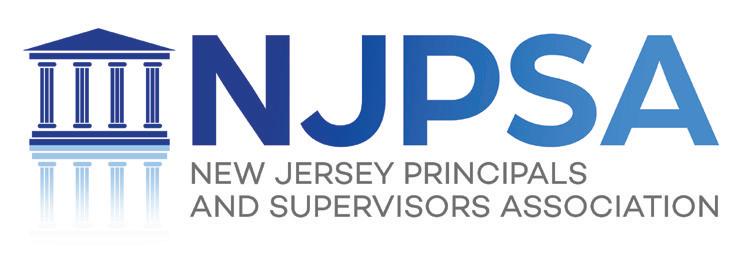

Celebrating 40 Years of Supporting NJ School Leaders! Founded in 1981
“The members ARE the association. They are the reason we exist. Their leadership has a huge impact on the staff and students with whom they interact on a daily basis. They are strong, resilient, innovative, and motivated by a strong desire that every student succeeds.”

 Pat Wright NJPSA Executive Director 2012 - 2021
Pat Wright NJPSA Executive Director 2012 - 2021
WELCOME

to a Celebration of 40 Years of Supporting NJ School Leaders!
As we look back over four decades of service, there are countless people who have helped make the New Jersey Principals and Supervisors Association the premier membership organization for New Jersey’s educational leaders that it is today – far too many to name individually. The success and growth that NJPSA has sustained since its founding is a direct result of the collective efforts of its staff, board of directors, council, volunteers, field representatives, mentors, coaches, and certainly the NJPSA members.
To all of you who have contributed your talents and efforts over the years, we say a heartfelt thank you for all you have done for the Association and for making New Jersey’s schools the very best in the nation.

While the NJPSA formally began in 1981, there was a lot that happened leading up to its formation. Here is a review of what led to the creation of NJPSA and a summary of its milestones over the past 40 years.
THE STORY BEHIND THE STORY
1960s
Until the passage of the New Jersey Employer-Employee Relations Act in 1968, public sector collective bargaining in New Jersey did not exist. As a result, nothing stood in the way for all educators to belong to the same organization. Superintendents, principals, supervisors, and teachers all belonged to the NJEA.
However, once collective bargaining came to the publicsector, school employees, fell into different categories. Superintendents, assistant superintendents, and school business administrators didn’t have bargaining rights. They were management. Principals, vice principals, most directors, and supervisors, were also part of management, but the law provided them with the same collective bargaining rights that belonged to teachers and, more generally, to school staff.
It became readily apparent that the interests among school staff, always distinct, now diverged even more because of the potential conflicts between teachers and the staff members who supervised them. Organizations representing the distinct categories of school employees were formed. School business officials formed their own organization, as did superintendents and assistant superintendents. Principals, vice principals, and supervisors formed their own organizations as well.
1970s
Until the formation of the NJPSA in 1981, New Jersey’s secondary principals and supervisors were represented by the New Jersey Association of Secondary School Principals and Supervisors. The elementary principals were represented by the New Jersey Elementary Principals Association.
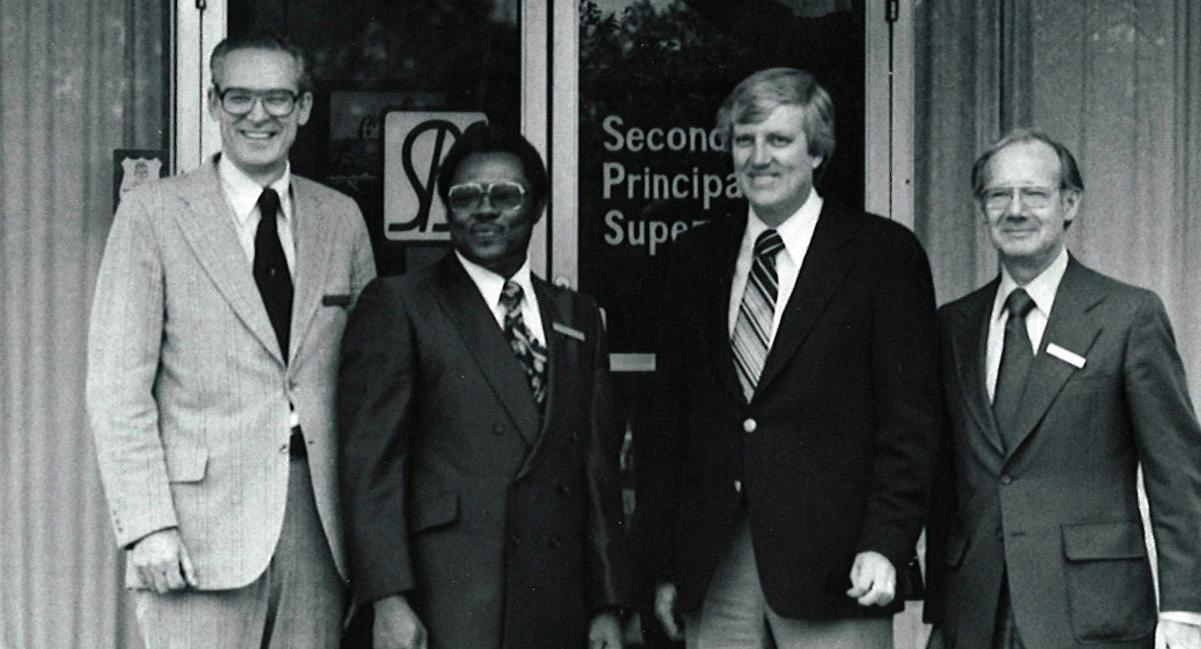
For much of the 1970s both the secondary and elementary principals associations were housed in the same building on West State Street in Trenton, NJ. That’s the way things remained until 1980 when the secondary principals association bought their own building, a former funeral home, on Greenwood Avenue in Trenton.
Combining the elementary and secondary principals associations into one organization had been a topic of discussion over the years because elementary and secondary school administrators realized that they had more in common than not, and that there would be strength in numbers. So, when the opportunity presented itself in 1980 for the two organizations to form one larger organization, the leaders of both organizations voted to begin the process by merging their respective staffs. They also formed a constitution committee whose purpose was to create an organizational structure that would insure equal elementary and secondary representation.
For the year preceding the formal creation of the NJPSA, the then Executive Director of the secondary association, Henry Miller, became the executive director of both the elementary and secondary associations.
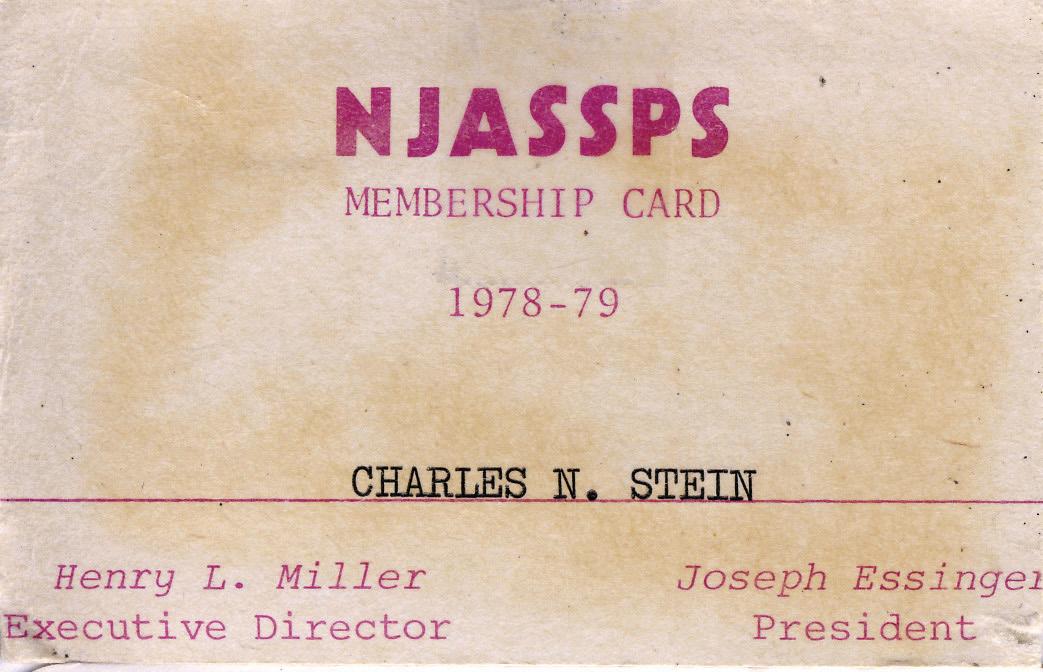
A BRIEF HISTORY OF THE NJPSA


1981
After deliberating for nearly a year, the constitution committee that had been formed to create the New Jersey Principals and Supervisors Association completed its work. The constitution required a rotation of officers to ensure equal representation of administrators at both the elementary and secondary levels. Its first president was Ron Watson, then the principal of West Windsor-Plainsboro High School.
During those early years, Henry Miller and a rotating set of staff members crisscrossed the state meeting with members and local associations to listen to their needs and to urge them to join the new NJPSA. As membership grew, the need for services did too. Legal services were expanded. A communications department was created to help the NJPSA get its message out to members and to stakeholders. A government relations department was added to advocate on behalf of the interests of school leaders on issues from preserving tenure for school building and non-confidential administrators, to advocating for greater funding for New Jersey’s public schools, protecting members’ pension rights, and advocating for workable core curriculum standards. And in 1985 the NJPSA created the FEA – the Foundation for Educational Administration – as the vehicle through which professional development would be provided for New Jersey’s school leaders.
In 1991, Henry Miller retired. In the 10 years since he had become Executive Director of the NJPSA, he helped to build the organization from the ground up. Under his leadership and the leadership of the boards of directors during this time, membership grew dramatically, as did the influence and reach of the NJPSA.
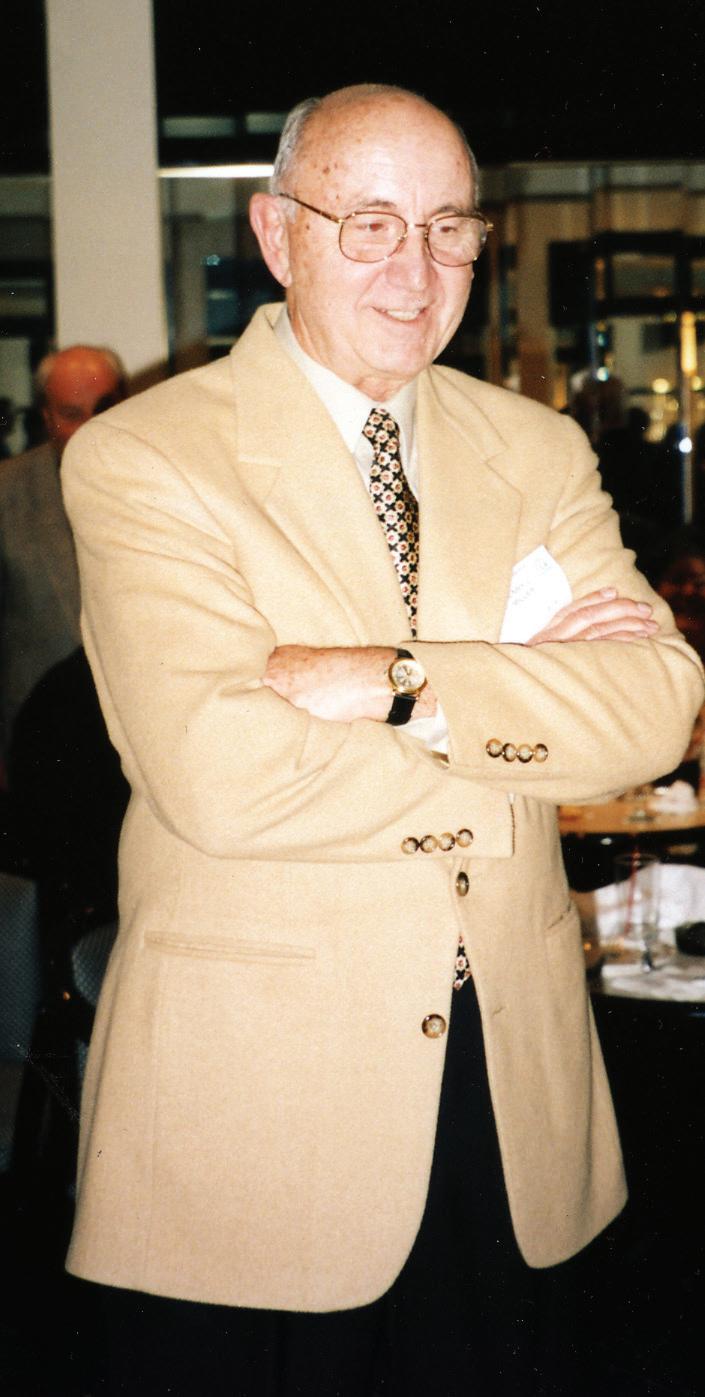
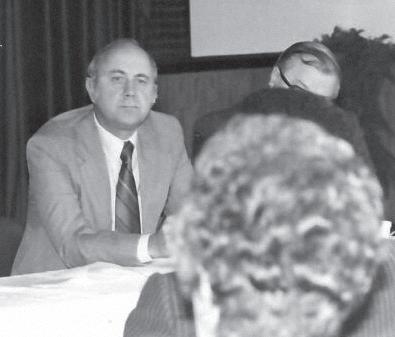
1990s
In 1991, JoAnn Bartoletti, who was the Principal of West Windsor-Plainsboro High School, became the second Executive Director of NJPSA. JoAnn led the NJPSA for the next 20 years, until 2011.

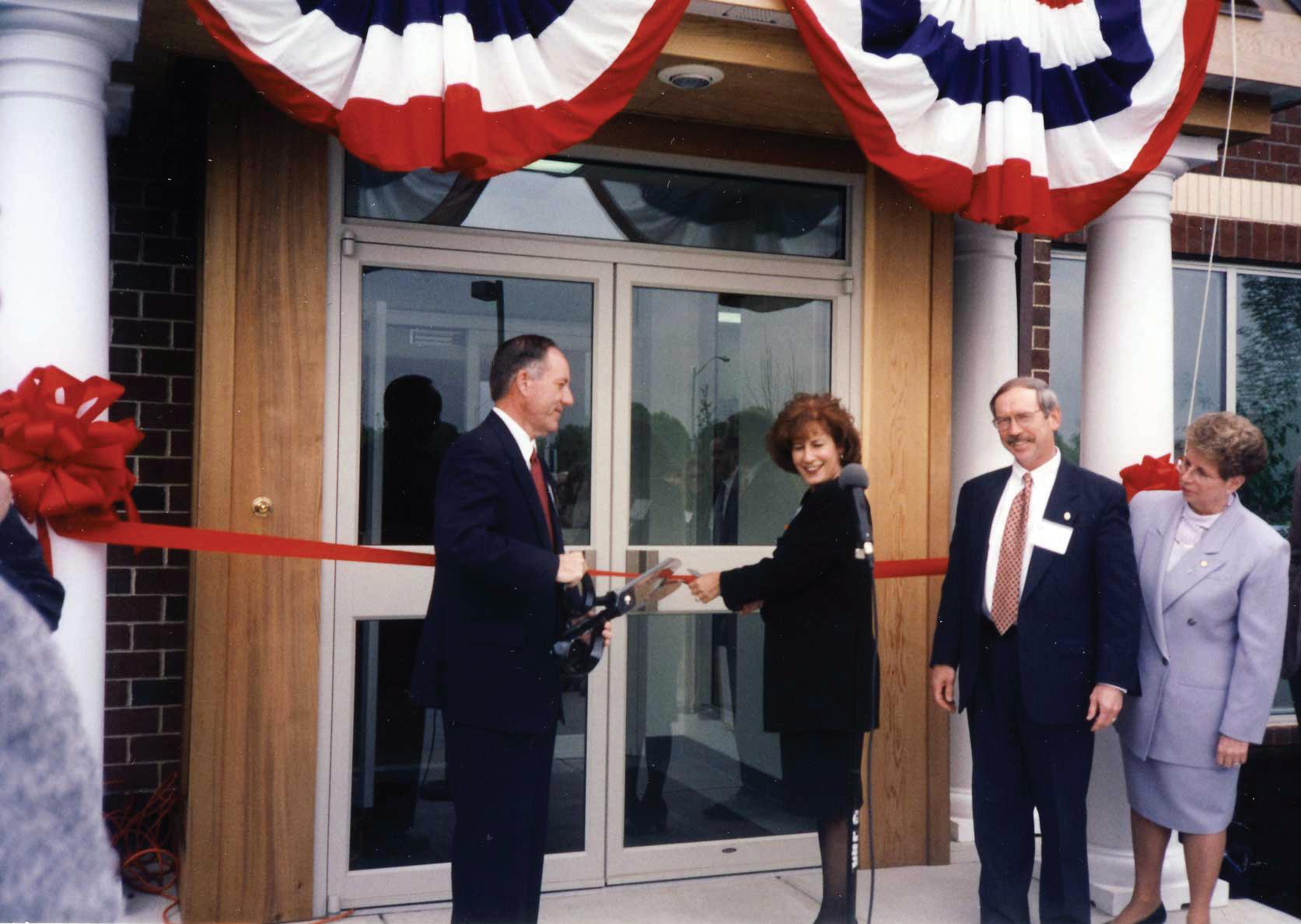
Recognizing that the need for professional development would only grow going forward, resources were put into the FEA to expand its professional development programs. This was before Zoom and when the internet was only in its infancy. So, because the NJPSA offices at the time did not have a conference area where programs could be offered, professional development had to be offered either in-district or at off-site facilities.
With the goal of being able to provide professional development at its own offices, the NJPSA began a two-year search for new headquarters that could offer a conference facility. The search included areas outside the City of Trenton. After much discussion, the decision was made to build its current headquarters in Monroe with easy access from the New Jersey Turnpike, where the NJPSA has been located since 1996.
Over this period, in addition to the communications and government relations departments, the FEA now had its own full-fledged professional development staff. Its professional development offerings grew from workshops meant to bring the latest information and best practices to school leaders, to creating ongoing programs such NJEXCEL, an accelerated degree program for school leaders, which had the stamp of approval from the NJDOE. The FEA also became the exclusive provider of the NJ Leaders to Leaders program, a two-year principal residency program, which school leaders must complete in order to earn a standard administrative certificate with a principal endorsement. Still later, it added the LEGAL ONE program designed to keep New Jersey’s school leaders current with the ever-changing legal landscape affecting New Jersey’s schools and their staff.
2000s
Nothing stands still. During these last 20 years, the professional development offered by the FEA has only expanded its reach. NJEXCEL has continued to grow as has the Leaders to Leaders program. Started as a partnership with Rutgers Law School in Newark and the Monmouth Ed. Services Commission, the Rutgers/FEA Law Institute became the foundation that led to the creation of LEGAL ONE, which today is recognized by many as the premier professional development program on legal issues affecting our schools and their staff.
Pat Wright, who served as the third executive director of the NJPSA from 2012 until her retirement in 2021, helped to make the NJPSA a trusted partner with other stakeholders and educational associations, as well as the NJDOE, while initiating trailblazing programs on best practices connecting standards with student learning.
Many people have had a hand in making the organization what it is today – an association of nearly 7,000 premier active members, which represents and advocates on behalf the interests of its members, and, more generally, advocates for what it sees as being in the best interest of New Jersey’s schools. Naming everyone is not possible, but here are a few people who merit honorable mention:
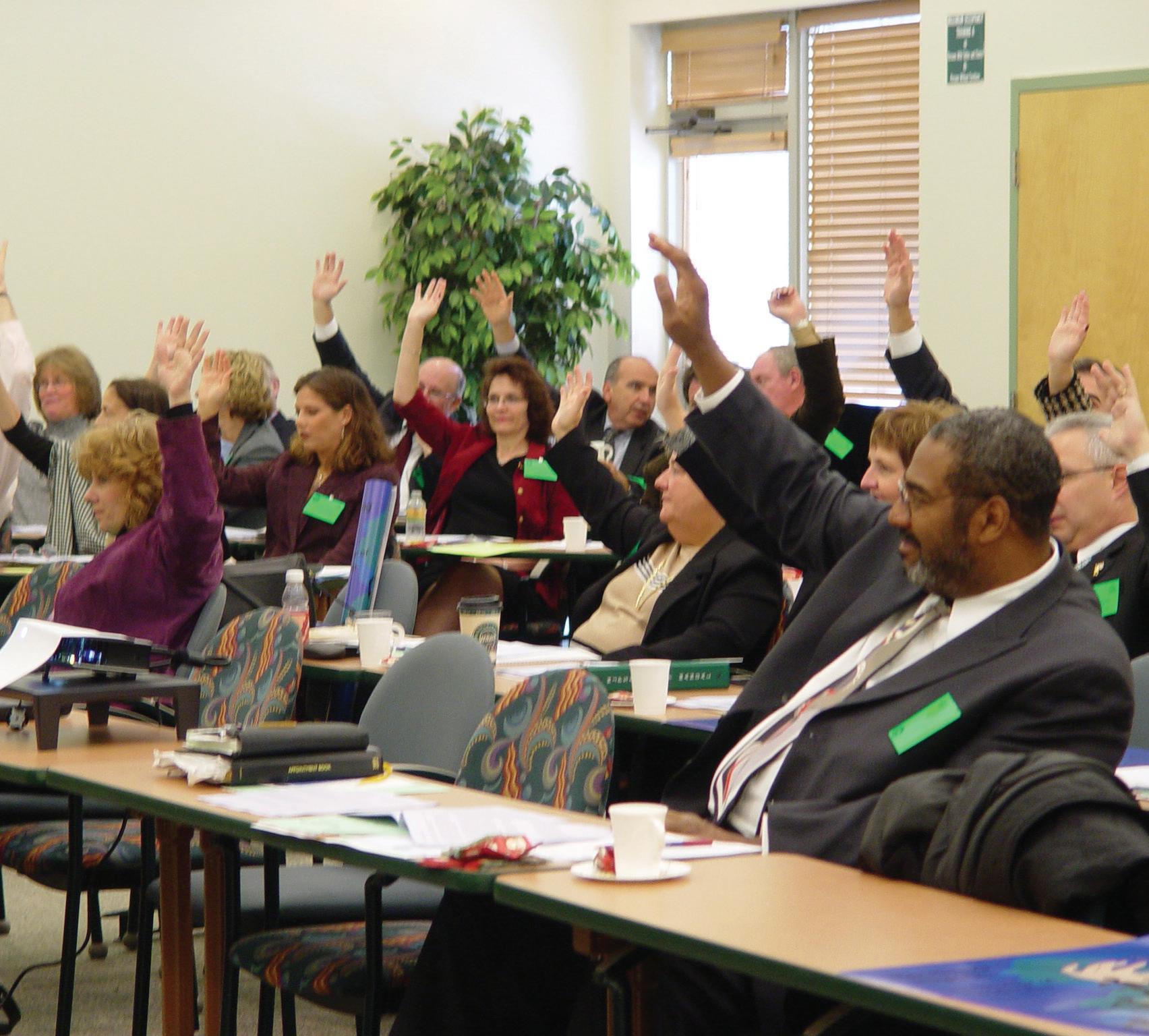
Henry Miller, the first Executive Director of the NJPSA, who had the vision to see what the NJPSA could become and who helped build the organization’s foundation.
Walter Chesner, who helped to create the field program we have today assisting members and bargaining units across the state.
Terry Evanko, who reminded all of us that we are a membership organization and that we should never forget that. Terry, who held the title of Assistant Executive Director, really was the NJPSA’s membership ambassador.
JoAnn Bartoletti, who served as the NJPSA’s second executive director for 20 years. In recognizing the ever-growing need for professional development, she helped to expand the programs offered by the FEA, moved the NJPSA to its present headquarters, and helped to create and design the FEA Conference Center.
Pat Wright, the third Executive Director of the NJPSA, who brought with her an education practitioner’s commitment to improving learning and best practices in New Jersey. In the process, she helped to make the FEA a professional learning powerhouse and, through her skills at relationship-building, helped to make the NJPSA a much soughtafter resource by the NJDOE, State Legislature, and other educational stakeholders.
While the NJPSA has had many milestones over the last 40 years, the core purpose of the organization has not changed.
We advocate on behalf of the interests of New Jersey’s school leaders.
Leading NJPSA for Two Decades of Growth and New Opportunities
From 1991 to 2011, the New Jersey Principals and Supervisors Association was led by Executive Director JoAnn Bartoletti, who had been very active with the organization while she was an assistant principal and principal in the West WindsorPlainsboro School District. In fact, Bartoletti had served on the NJPSA Board of Directors and was its president in 1985-86, and when Hank Miller announced his intention to retire, she threw her hat into the ring to be his successor.
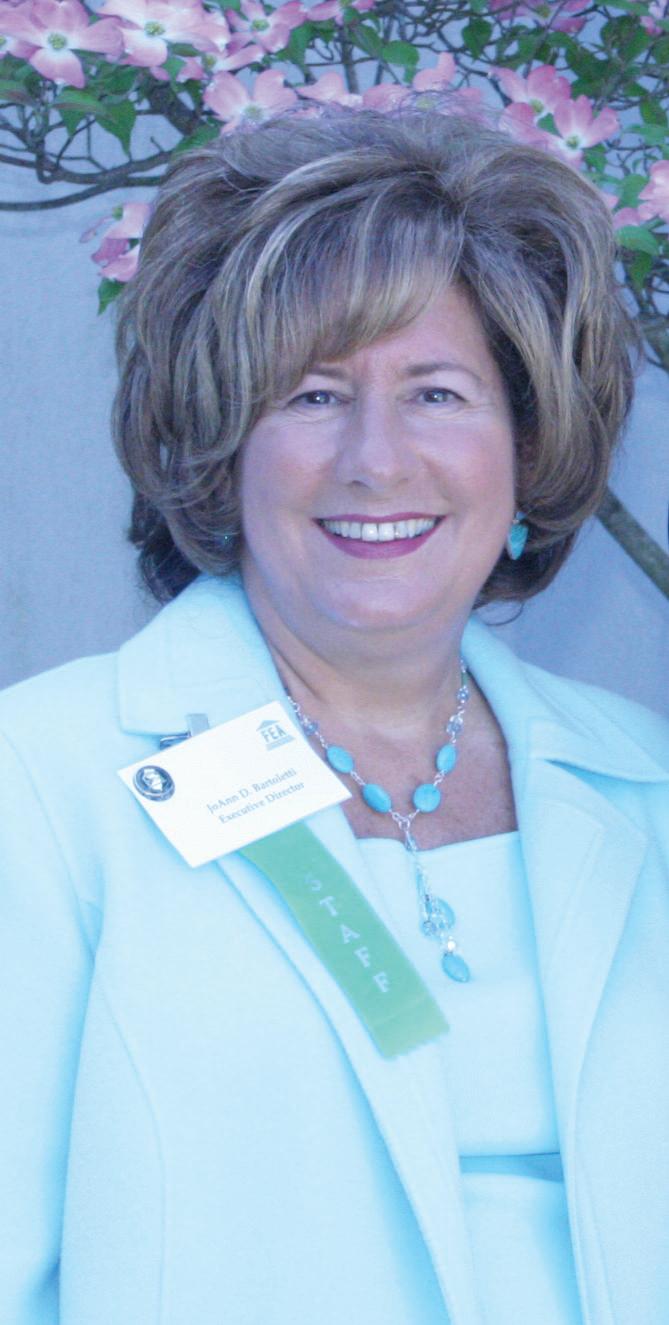
NJPSA grew in numerous ways during Bartoletti’s tenure, as new programs were introduced, new staff members were hired, and a new building was erected and later expanded to house the organization and its offerings.
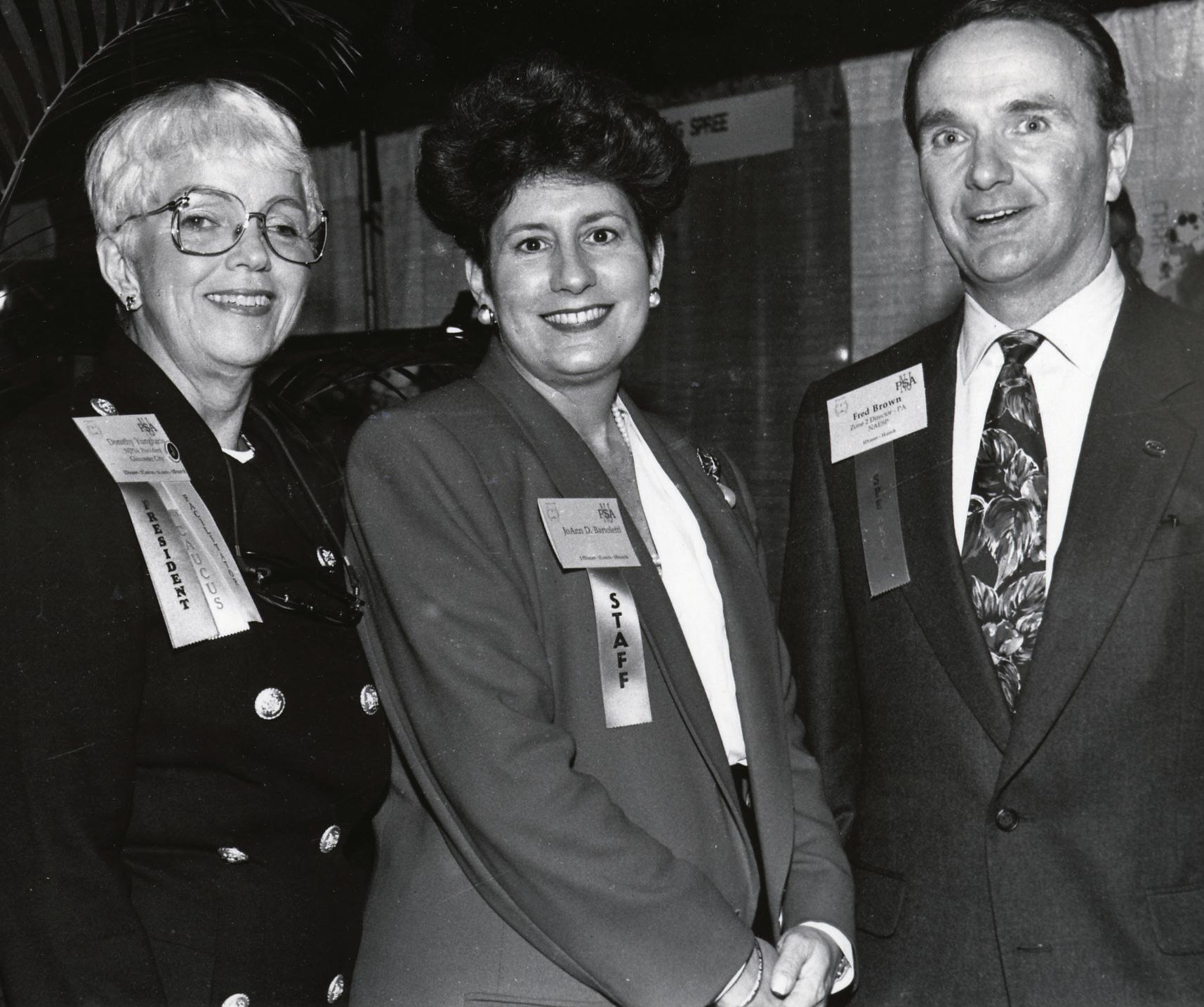
Professional Development: FEA

While FEA was established in 1985, its original purpose as a 501(c)(3) was to allow the organization to be eligible for
certain grants that NJPSA, as a 501(c)(6), would not be. It was not until 1993 that NJPSA began to focus on professional development opportunities for its members through FEA, and Bartoletti turned to a former district colleague to lead the charge. “I knew Tony Scannella, because Tony had been with me at West Windsor-Plainsboro High School,” Bartoletti said. “Tony had been doing all kinds of training for years, and I knew him to be very dynamic and innovative. So, when I decided we were going to start doing our own professional development, I brought him on board.
“One of the big programs that Tony developed and worked on was about Communication: How are principals communicating with teachers, how are they working with teachers who are underperforming, how are principals communicating with their communities, how are you communicating effectively in all of these different arenas?” Bartoletti said. “Tony also did a ton of programs on poverty and wellness.”
“I have wonderful memories of working at NJPSA,” Bartoletti said. “It was a lot of fun working with people who had such great personalities. I enjoyed working with Tony Scannella, Gerry Schaller, Jay Doolan, Denise Hecht, Chuck Stein, Bob Schwartz, David Nash, Wayne Oppitto, and so many others.”
JOANN BARTOLETTI
Executive Director 1991 - 2011
A Move to Monroe
As NJPSA was growing in size and scope, Bartoletti set out to find a new home, more centrally situated and easier for members from all over the state to visit than its former location in Hopewell. She also wanted to ensure that the building could accommodate Council meetings, committee meetings, and other programs that were being held at more costly locations such as Forsgate Country Club. In fact, it was during a meeting at Forsgate that Hank Miller, who was on the Monroe Township Planning Board and Town Council, suggested that the Board Committee look at an available lot across the street that could meet all of NJPSA’s needs. Shortly thereafter, NJPSA purchased the land and began construction on its new headquarters at 12 Centre Drive. The building opened in 1996, and a dedication ceremony was held in 1997.
In addition to offices for NJPSA/FEA staff, the building included meeting rooms that could not only house Council meetings and smaller professional development opportunities, but also the many outside groups that began to request use of the building to run programs as well. In particular, the Department of Education rented space in 12 Centre Drive for many of its training programs. Unfortunately, the building did not wholly accommodate all of the professional development that FEA intended to offer, with multiple programs running at the same time. “So that was when we decided to put the addition on the building and created the FEA Conference Center, which could do so much on-site professional development,” Bartoletti said.
Relationships and Credibility
Bartoletti looks back on her time at NJPSA with great fondness and points to a few highlights of her 20-year stint as Executive Director, before she moved on to become the Executive Director of the National Association of Secondary School Principals.
“I am proud of the relationship I was able to build with the Department of Education. That relationship had been contentious for years. When William Librera became the Commissioner under Governor Jim McGreevey, a really positive relationship with the Department of Education began and then continued with Commissioner Lucille Davy in the Codey and Corzine Administrations. There were too many years in the past when people weren’t paying enough attention to the principals, and we were just as important if not more so than the superintendents and school boards,” Bartoletti said. “I also think that the Legislature always viewed NJPSA as the reasonable organization. This was one of Debbie’s Bradley’s great strengths. She was able to express the concerns, express the criticism, but then offer opportunities for solutions. She would provide options for the Legislature to consider. So, I think we had as good of a reputation as you could have because of Debbie and her team throughout the years.”
Responding to Member Needs
Meeting the needs of the members was always the most important factor in guiding Bartoletti’s decisions, and it is what gives her the most satisfaction today. One example was NJPSA’s response to its members’ criticism about the need to earn a master’s degree in educational administration, a master’s degree in leadership, or a master’s in public administration in order to be certified as a principal. The members also said that they did not want to be taught by professors in higher education who had never been in a school, who had never been a principal, or had never been a supervisor.
“So, I went to the Commissioner of the NJDOE with a proposal for NJEXCEL, a non-traditional program for those who want to be certified as principals and supervisors,” Bartoletti said. “He shook my hand and said ‘Let’s do it.’ Ellie Forster was hired to write the curriculum for NJEXCEL and all its permutations. She was brilliant. She knew how to write curriculum and how to organize it. At the time nobody was doing what we were doing with the online portfolios. We were the only ones doing it.”
“More important, we had business administrators, we had principals, we had supervisors, we had superintendents, we had people who really were practitioners in the field doing the instruction in NJEXCEL,” she said. “That’s why I think it is as successful as it is.”
Similarly, NJ Leaders to Leaders was created because principals called and said that they were having difficulty getting their standard principal certificate because their year did not officially begin until the day they were assigned a mentor. But the Department was telling them they didn’t have enough mentors and that nobody wanted to be a mentor.
“So I, along with Mary Reece and Ellie Forster, took a look at NAESP’s mentoring program and found it was not that great. So we said, ‘Why don’t we do our own mentoring?’” Bartoletti said. “And it was David Nash who came up with the name Leaders to Leaders. Again, this was created in response to what our members were telling us. They said, ‘We don’t like this. We don’t want to have to wait for the department.’ I hear that all the time from principals. How much the association listened to them and responded to them.”
Bartoletti said she is proud of her time at NJPSA and has nothing but wonderful memories of helping principals, supervisors, and all members throughout their careers. “Principals are the glue that makes a school stick together and the gears that move a school forward,” she said. “We have to be sure that they get their money’s worth as a member, and I always felt that the members felt they were getting that from us in terms of professional learning and in the areas of legal service, field service, negotiations, and advocacy.”
FOUNDATION FOR EDUCATIONAL ADMINISTRATION (FEA)
NJPSA provides its members with the most comprehensive, relevant, and important professional learning opportunities through the Foundation for Educational Administration (FEA), an independent nonprofit 501 (c)(3) corporation. Founded in 1985, FEA is recognized as the premier organization for providing high quality professional learning to educators.
Through workshops conducted at the FEA Conference Center and regional locations, in-district workshops, online courses, virtual workshops, summits, conferences, the New Jersey Leadership Academy, the Equity in Action Leadership Academy, and other professional learning programs, FEA addresses critical and emerging issues in educational leadership and provides the training administrators need to excel and grow in their profession.
FEA also houses four important NJPSA programs: LEGAL ONE, the leading provider of school law training for educators; NJEXCEL, the state-approved, innovative, non-traditional program leading to certification for Supervisor, Principal, Director of School Counseling Services, and School Administrator; NJ Leaders to Leaders (NJL2L), a stateapproved comprehensive mentoring and induction program that provides trained mentors and services to support new school leaders in the completion of the state-required twoyear Residency for Standard Principal Certification; and New Jersey Teacher Leader Certification (NJTLC), a state-approved program leading to the new teacher leader endorsement.
Many FEA programs and long-term partnerships with schools and districts have deepened extensively over the years. Today, FEA is able to leverage tech tools to more effectively meet the needs of NJPSA members and to offer flexible learning pathways that promote collaboration, inquiry, and a continuous cycle of improvement.
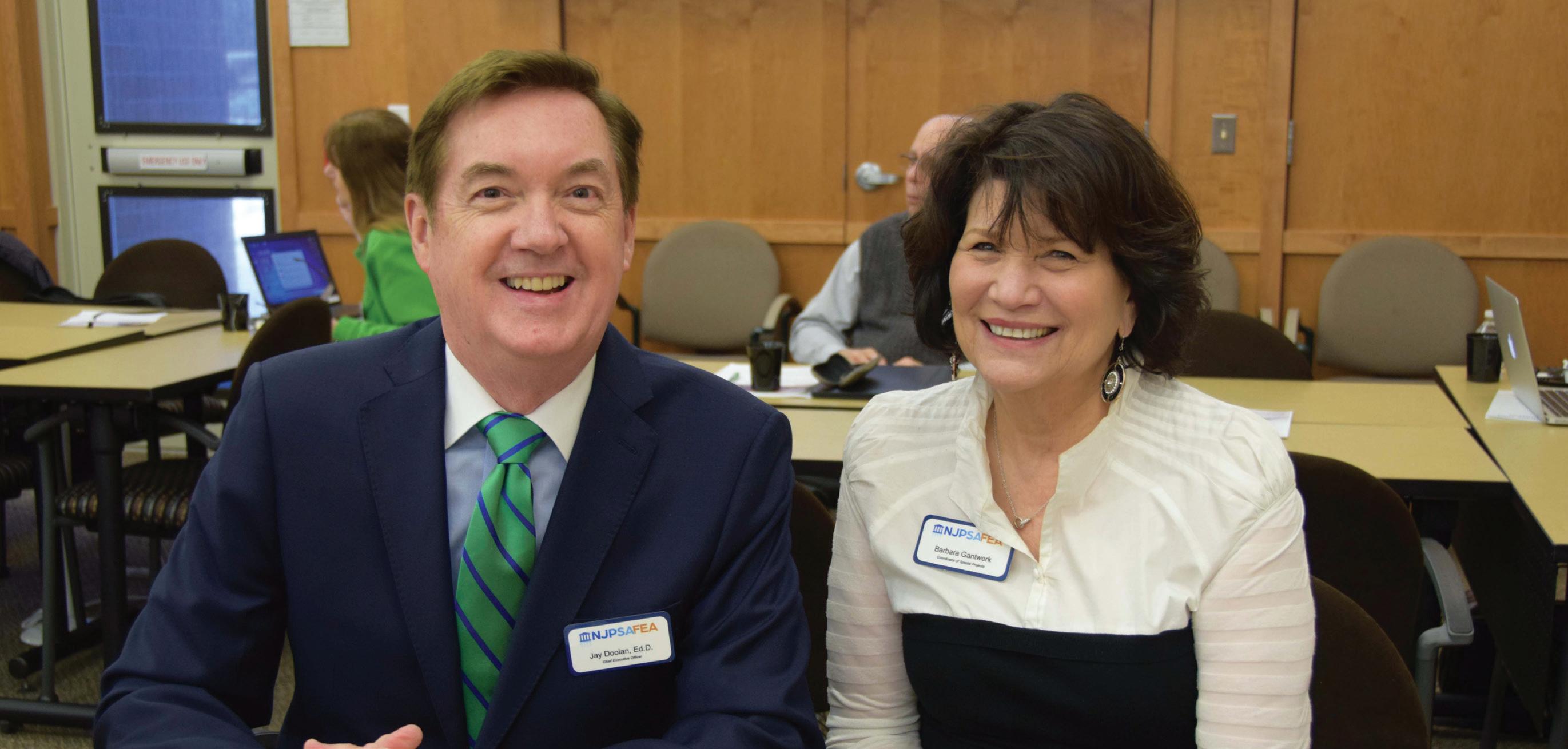
While FEA was created in 1985, it was in 1993, when Dr. Anthony Scannella was hired as the Director of Professional Development and later as CEO, that FEA began to focus its efforts on professional development for school leaders. Tony developed many programs through the years and grew a cadre of FEA presenters for workshops, in-district programs, and numerous leadership conferences, including the Principals Center in Princeton, the NJ Exemplary Leadership Institute for Technology in Education (NJ ELITE) Conference in Wildwood, and the annual Fall Conference. These programs not only drew educational leaders throughout New Jersey, but also from as far away as Australia, New Zealand, several countries in South America, and Cameroon. Some of the noteworthy presenters and keynote speakers at these conferences included Michael Fullan, Theodore Sizer, Alfie Kohn, Heidi Hayes Jacobs, Ruby Payne, Roland Barth, Art Costa, and Bena Kallick, among others. In addition to the learning was an emphasis on having fun and creating lasting memories for those in attendance, whether it was listening to live music (sometimes performed by Tony himself on the saxophone), dancing through the night, or vying for amazing prizes, including one conference that had a few lucky members grabbing all the blowing cash they could handle in a money booth and one driving away with the grand prize of a lease on a new Ford Mustang.
As a 501(c)(3), FEA is eligible to apply for and secure government and nonprofit foundation grants that would fund special projects and pilot programs to empower school leaders in New Jersey and address areas of critical need, such as Chronic Absenteeism, Arts Integration, HealingCentered Engagement, Connected Action Roadmap, Early Childhood Leadership, Youth Entrepreneurship, School Leadership, Educational Technology, Alternative Performance Assessments, Multi-tiered System of Supports, and TwentyFirst Century Community Learning Centers. Funders, over
the years, have included the Rockefeller Foundation, Bill and Melinda Gates Foundation, Geraldine R. Dodge Foundation, USDE, NJDOE, Overdeck Family Foundation, Princeton Area Community Foundation, Nicholson Foundation, George H. and Estelle M. Sands Foundation, Burke Foundation, Charles Mott Foundation, Henry and Marilyn Taub Foundation, Met Life Resources, Washington Mutual, NJ Health Initiatives, and the NJ Pandemic Relief Fund, among others.
Major grants won by NJPSA/FEA include a $5.1 million grant from the Bill and Melinda Gates Foundation in 2000 to enhance the skills of school leaders to integrate technology into the classrooms and curricula of New Jersey. This grant resulted in the creation of NJ ELITE and enabled principals to gain an understanding of how technology and instructional best practices can improve teaching and learning. In 2013, FEA was awarded a $5 million USDOE school leadership grant to support the high-needs districts of Millville, Bridgeton, and Trenton over five years. Under the direction of Dr. Mary Reece, Director of Special Projects, who wrote the grant proposal and directed its implementation, this project helped FEA build relationships with school leaders in these three districts, providing numerous professional learning programs, coaching, and the opportunity to participate in NJEXCEL for principal and supervisory certification.
When Tony Scannella retired in 2013, he was succeeded by Dr. Jay Doolan, who had been Assistant Commissioner of NJ Department of Education for many years before joining FEA as Director of Professional Development. Jay continued to expand FEA’s outreach and led the transition effort from professional development, which can be characterized by a singular, one-size-fits all approach that “happens to” educators, to professional learning, which emphasizes collaborative, sustained, inquiry-based learning. One of the signature FEA programs developed during Dr. Doolan’s tenure was the New Jersey Leadership Academy (NJLA), in partnership with the NJ Association of School Administrators (NJASA). Now in its eighth year, NJLA provides professional learning for teams of educators over three sessions that encourages the sharing of expertise across leadership roles and responsibilities and provides a process for continuous improvement. The content

connects actionable steps to the core attributes within the Professional Standards for Educational Leaders and the Teacher Leader Model Standards to strengthen leadership skills.

FEA is now led by Dr. Donna McInerney, who succeeded Doolan as CEO in 2018. Under Donna’s leadership, FEA has been expanding its offerings to include the Equity in Action Leadership Academy and the FEA Online Learning Suite, which includes asynchronous courses designed to give the users flexibility to take courses whenever and wherever they choose. Donna has also led FEA through the COVID-19 pandemic, shifting all professional learning, NJEXCEL and NJTLC classes, and NJL2L peer group and mentoring meetings to remote, online platforms. In fact, it was during the pandemic that FEA launched the new Teacher Leader endorsement program, NJTLC, to further develop an educational leadership pipeline that prepares educators as teacher leaders by providing highly qualified teachers with the leadership, knowledge, skills, competencies, and opportunities to significantly impact the continuous improvement of schools, teaching, and student learning. Donna has also led FEA to strengthen partnerships with more than 275 NJ school districts over the past three years, providing professional learning through in-person, virtual, and blended learning programs.
McInerney says she is humbled and honored to serve as CEO of FEA, particularly during these exciting, transformational times. “I am inspired each and every day by the commitment of our NJPSA members to the students of New Jersey,” McInerney said. “Meaningful and relevant professional learning provides us with opportunities and pathways to ensure equitable access to a high-quality education and high-quality outcomes for each and every student. In order to do that, professional learning must be collaborative, job-embedded, sustained, data-driven, and interactive. Educator agency – the power of educators to have a voice and take responsibility for their own professional growth – is essential to this learning process. The commitment of the FEA staff to our members is nothing short of extraordinary, and it is this commitment of which I am most proud.”
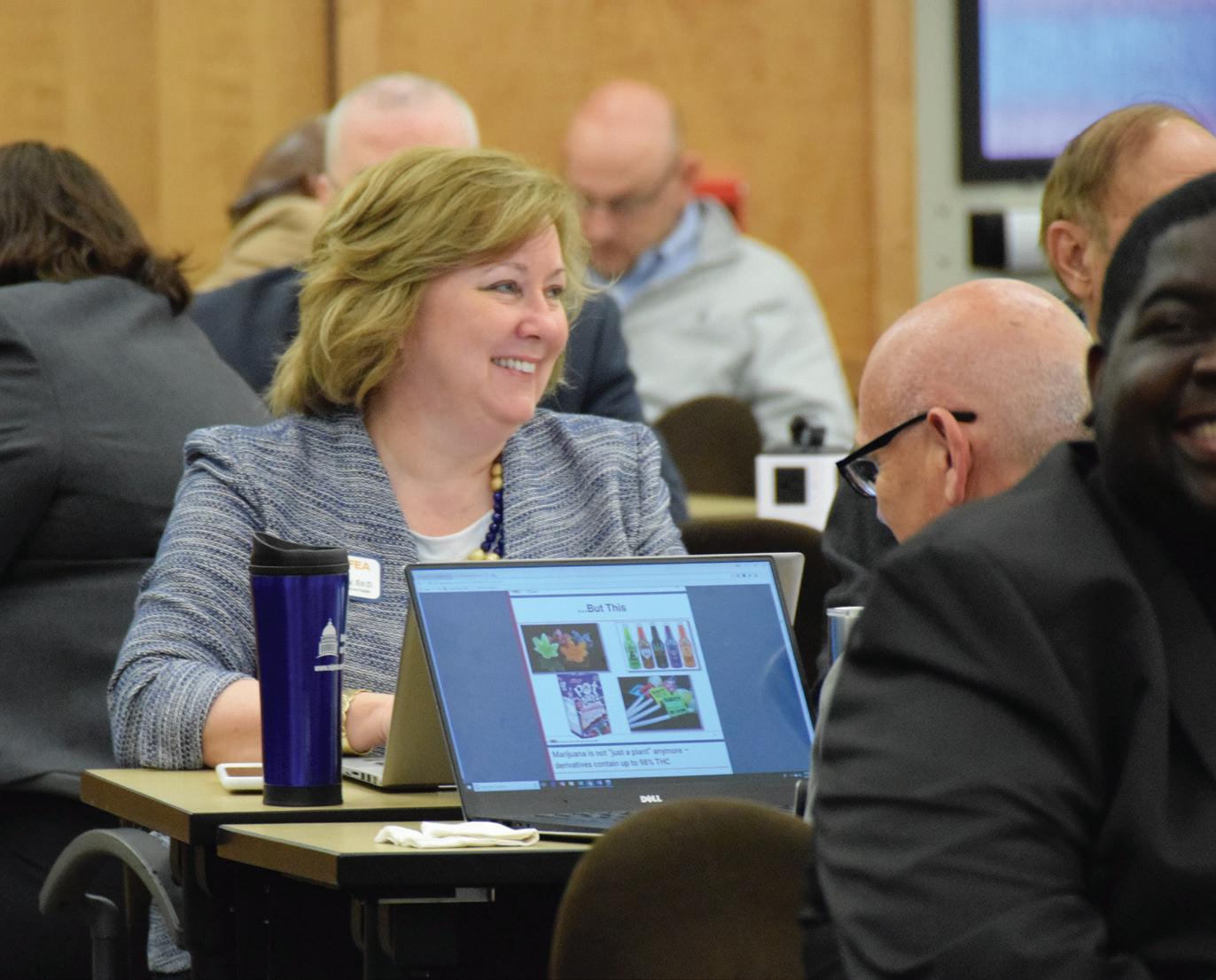
A HISTORY OF LEGAL ONE
LEGAL ONE (Law, Ethics and Governance for All Leaders, including an Overview of New and Emerging Issues) has become the leading provider of school law professional learning in the State of New Jersey and continues to establish a growing national presence.
LEGAL ONE was created in 2008, as part of the Foundation for Educational Administration (FEA), with the mission of empowering school leaders to confidently navigate the legal maze of state and federal law impacting our schools. It quickly expanded to meet the legal training needs of all stakeholders, including teachers, school counselors, school administrative assistants, support personnel and maintenance staff, board members, and parents. To date, LEGAL ONE has served, (both virtually and in-person), thousands of school leaders and other stakeholders from nearly every New Jersey school district, and has expanded its reach from coast to coast.
The legal representation of school leaders has been a core aspect of NJPSA since its founding. As an extension of this legal representation, educating school leaders about our everchanging state and federal laws has been an important aspect of member services. For many years, NJPSA Chief Legal Counsel Robert Schwartz and NJPSA Legal Counsel Wayne Oppito would provide regular updates for NJPSA members on the latest developments in school law, including lessons learned from case law involving school leaders.
In 2005, NJPSA/FEA took an important step forward in the school law arena with the creation of the Rutgers/FEA Education Law and Policy Institute, in partnership with Rutgers Law School. This partnership provided the opportunity to collaborate with Professor Paul Tractenberg, a leader in the decades-long fight for educational equity for our state’s poorest
children that culminated in the groundbreaking Abbott v. Burke decisions. The Institute, formed through the efforts of Chief Counsel Robert Schwartz and Legal Counsel David Nash, working closely with Rutgers Law School, provided a means for school leaders to engage in deeper, sustained professional learning regarding the legal responsibilities of school leaders in all aspects of school district operations.
In 2007, the New Jersey Legislature passed a new requirement for all school leaders to engage in professional development related to school law, ethics and governance. That requirement was later expanded to include required training on harassment, intimidation, and bullying. In 2008, the State Board of Education approved implementing regulations outlining the details of required school law training for school leaders.
As the professional organization representing the vast majority of school leaders in the State of New Jersey, NJPSA committed to taking a leadership role in meeting this new requirement, to ensure that school leaders had access to timely, comprehensive, relevant, and sustained professional learning related to school law, ethics, and governance.
Seeking to build on the successful Education Law and Policy Institute, NJPSA partnered once again with Rutgers Law School in meeting this new requirement. Recognizing the need to be able to efficiently reach thousands of school leaders across the state, NJPSA then sought to extend that partnership to include the Monmouth Ocean Educational Services Commission, which had established itself as a leading provider of online professional learning.
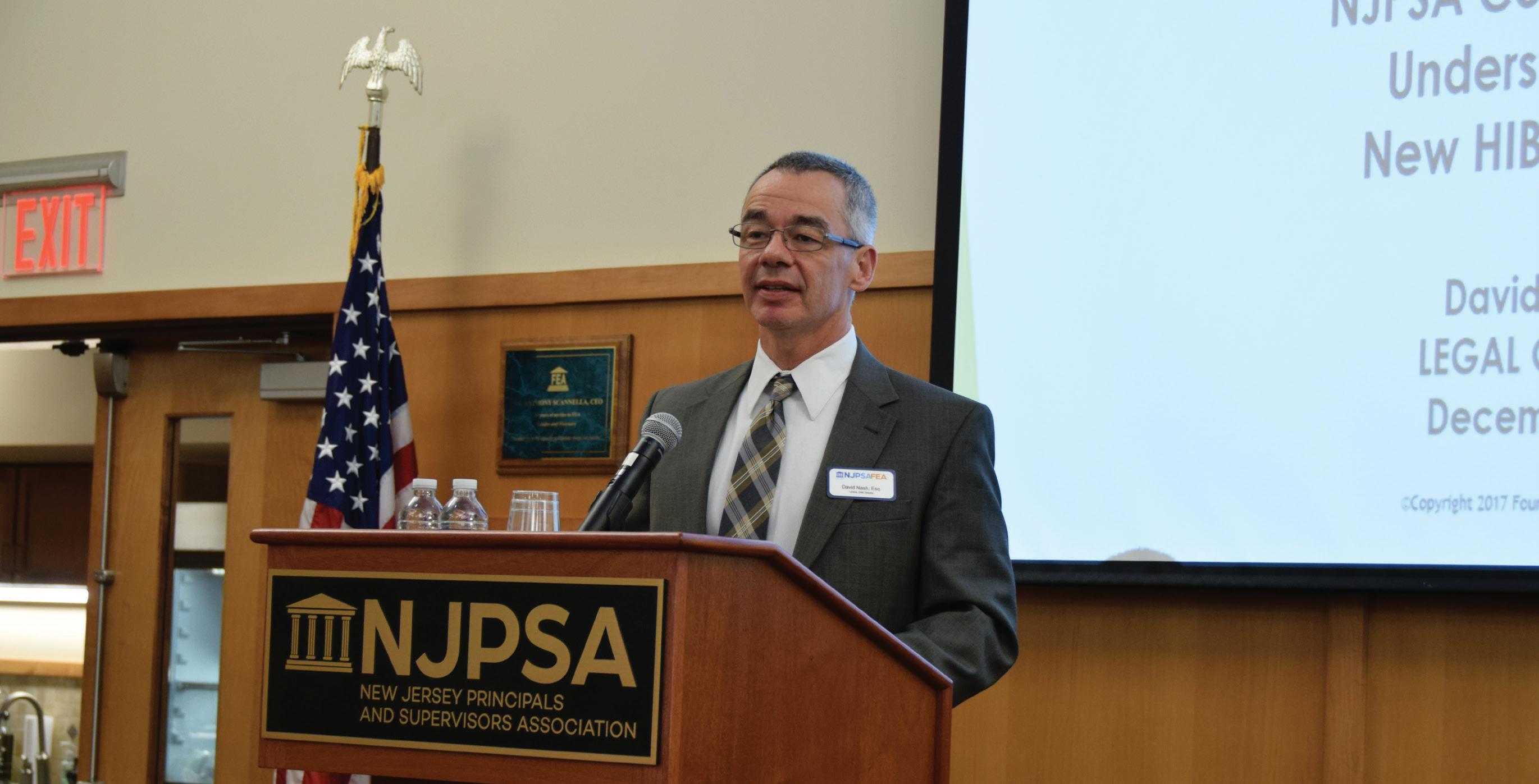
And so was born LEGAL ONE!
THROUGH THE YEARS
From the beginning, LEGAL ONE sought to go beyond simply lecturing about School Law, and to find innovative ways to engage and educate.
By the Spring of 2009, LEGAL ONE had launched a series of four comprehensive online courses to complement its in-person training. These online courses included real-world scenarios, acted out (often by NJPSA and FEA staff!) in order to dramatize key legal principles. Scenario-based learning has been a hallmark of LEGAL ONE ever since, while LEGAL ONE’s library of online course offerings has grown from the four original courses to dozens of courses today.
In 2011, following the adoption of New Jersey’s AntiBullying Bill of Rights, the New Jersey Department of Education reached out to LEGAL ONE, along with the New Jersey State Police, to develop a training program on how to effectively conduct investigations of bullying allegations.
In 2012, with the demand for LEGAL ONE services growing exponentially, NJPSA Legal Counsel David Nash moved from part-time LEGAL ONE Coordinator to full-time LEGAL ONE Director, a role that has since expanded to include Director of National Outreach. Sandra Jacques, Esq., LL.M., who had been a LEGAL ONE Consultant since 2011, became a LEGAL ONE Staff Attorney/ Supervisor of Legal Research and Content Development in 2014.
In 2017, Ameena Terrell took over as LEGAL ONE’s Administrative Coordinator and has since been promoted to LEGAL ONE Program Coordinator/ Analyst.
In recent years, LEGAL ONE has developed numerous courses, programs, and series to address the most critical issues affecting school leaders, educators, students, and communities. Here are just a few examples:
In 2013, seeing the need for school staff to understand and address the growing phenomenon of student suicide, LEGAL ONE partnered with the American Foundation for Suicide Prevention and Rutgers University to create Signs Matter, an online course intended to assist school employees in identifying the signs that a student may be experiencing suicidal ideation, and/or other mental health needs.
In 2015, LEGAL ONE launched its first multi-day Certificate Program for Anti-Bullying Specialists and Coordinators. Since then, more than a thousand school-level professionals have completed this program, which evolved in early 2020 to become a self-paced online program.
In 2016, LEGAL ONE launched its monthly onehour webinar series, providing yet another way for members to get the latest information on quickly evolving legal issues.
In 2018, through the efforts of Michael Kaelber, Esq., LEGAL ONE once again expanded its offerings to include webinars for school attorneys.
In 2020, LEGAL ONE launched the fully self-paced ABS Online Certificate Program, which allowed participants to complete the equivalent of more than three days of in-person training through a selfpaced format, while still providing opportunities for interaction with LEGAL ONE attorneys.
In 2021, LEGAL ONE created The LEGAL ONE Podcast as another means to reach our members. LEGAL ONE also launched its Anti-Bullying Professional Advanced Certificate of Mastery, which builds on the ABS Certificate Program.

GOVERNMENT RELATIONS Your Voice on Legislation and Policy
NJPSA members count on the professionalism, talent, and diligence of the Government Relations team to best represent their interests before the U.S. Congress, State Legislature, Governor’s Office, State Board of Education, and other federal and state agencies on all issues affecting the quality of public education in the state. NJPSA’s Government Relations (GR) staff analyzes, monitors, and participates in the legislative and regulatory process advocating on proposed legislation, code provisions, and policies affecting public schools and school leaders.
The GR staff develops association positions and advocacy priorities through direct interaction with NJPSA members via NJPSA committees, member surveys, and meetings. By developing trusting relationships with the decision makers at all levels of government, the GR staff has access to those who ultimately write, pass, and uphold legislation that affects all NJPSA members and their schools and districts. NJPSA’s GR Team communicates these views formally through official testimony during legislative committee hearings and Board meetings, as well as informally through direct conversations with state and federal lawmakers. They also work closely with NJPSA’s communications team to craft editorials, member alerts, and legislative updates to keep NJPSA members’ perspectives at the forefront of education policy discussions in New Jersey.
For the past 30 years, Debra Bradley, Esq. has led the government relations efforts for NJPSA. She prides herself on building strong bipartisan working relationships with

many legislators, including legislative leadership, education committee chairs, NJ Department of Education and legislative staff, the Governor’s office, administration personnel, and her peers in our partnering education organizations. In 2018, Jennie Lamon, former Chief of Staff for Senator Diane Allen, joined the team as Assistant Director, bringing her direct legislative experience, connections and perspective to the work.
Member Engagement
The GR Team strives to engage members in developing the advocacy positions of the association through the extensive NJPSA committee structure, including its active and engaged Legislative Committee. Members are also encouraged to present the perspective of principals and supervisors by opening their schools for legislator “principal-shadowing” visits during National Principals Month each October, joining GR staff for lobbying visits in local legislator offices and on Capitol Hill, and by member service on numerous legislative, agency-led or executive branch task forces, focus groups, and commissions that have been established over the years.
To ensure member input on issues in real time and to promote member networking and collegial learning, the GR Team also initiates NJPSA Member Roundtable Discussions on “hot” topics, including those that were held regularly throughout the pandemic to bring members’ needs, challenges, and perspectives to key decision-makers in the Governor’s Office,
TASK FORCES FOCUS GROUPS & COMMISSIONSSome Examples
• Every Anti-Bullying Task Force established by law in our state
• Numerous school funding task forces, work groups and coalitions
• Teacher Leader Advisory Board
• High School Redesign Committee
• Dual Enrollment Study Commission
• Education and Law Enforcement Working Group
• N.J. School Security Task Force
• Education Transformation Task Force
• Transition Teams of successive Governors prior to their term in office
• No Child Left Behind (NCLB) and successor Every Student Succeeds Act (ESSA) Stakeholder Groups focused on field implementation of these federal laws in New Jersey
• NJ Human Relations Council
• NJ Food for Thought Coalition
• Special Education Advisory Council
• Each issue-based task force exploring education policy changes such as those discussing educator evaluation and tenure, New Jersey’s Student Learning Standards, assessment, later start times for students, gifted and talented education, school security issues, college and career readiness, and the wide spectrum of health and operational issues related to the COVID-19 pandemic through NJDOE Focus Groups with the Commissioner of Education and staff
State Legislature, NJDOE, and NJ Department of Health. Member Roundtables during the pandemic discussed how to handle school life in a pandemic world with social distancing requirements and health policies that changed on a dime! These included conducting high school graduation, safely conducting lunch at school, learning strategies to address interrupted learning, health and safety guidelines, school bus transportation, contact tracing and other health services in schools, and student mental health needs.
The NJPSA Critical Issues Committee, also led by the GR Team, seeks to study a current policy issue impacting NJPSA members with a more detailed-eye, examining the research, operational impacts, and developing recommendations on the issue. Past work of the Critical Issues Committee resulted in a joint report and policy recommendations by NJPSA and NJASA on the topics of Educator Evaluation and High School Graduation Requirements, which was submitted to Governor Phil Murphy upon his initial election to office. Currently, the Critical Issues Committee is exploring the issues of interrupted learning, learning acceleration, and strategies for recouping learning following school closures during the pandemic. In all of these areas, the GR team seeks to be your bridge to, and voice at, the many, ongoing education policy table discussions in New Jersey and in Washington D.C.
In the political sphere, the GR Team regularly develops an Election section on the NJPSA website, which includes a survey soliciting the views of political candidates on issues of interest to NJPSA members in key New Jersey election cycles. Government Relations also provides staffing to the NJPSA-PAC, the association’s political action committee established to support legislative candidates who support public education and the legislative goals of school leaders. By founding and providing technical support to NJPSAPAC, the GR Team helps NJPSA members foster stronger relationships with legislators in the political world that they must work within.
Drilling Down: NJPSA Advocacy at the State Legislature
Once NJPSA’s policy position is developed on a bill, advocacy efforts often take the form of presenting live testimony before the Senate or Assembly Education Committee, where legislation is considered, debated, and often amended before moving to the entire legislative body for a full vote. Sometimes, it is the subtlest change in language that can mean a big difference in how our members will be affected by new laws. NJPSA regularly leads the way in obtaining significant amendments to legislation among the education community before a new law is enacted, always seeking to improve legislation so it works for our members, our students, and our schools.
In the 2020-2021 legislative session for example, NJPSA obtained amendments to legislation that did the following:
• Significantly revamped a proposed overhaul of the AntiBullying Bill of Rights which would have had School Resource Offices (SROs) investigating HIB allegations, Executive County Superintendents determining the consequences of HIB cases, and removed a principal’s authority in HIB cases.
• Modified proposed legislation that would have mandated depression screening of all students grades 7 through 12, via computer, on an annual basis; instead, promoting a grant program for interested school districts to participate in such a program, which was enacted into law.
• Obtained significant amendments to legislation that would have obligated principals and superintendents to honor a parent’s request to retain their student in a current grade level based solely upon the parents’ perception of their child’s learning levels as a result of the pandemic. The ultimate legislation that passed retained the school’s authority to make the final decision on parental retention requests after consultation with the student’s teacher, guidance counselor, parents and relevant professional staff.
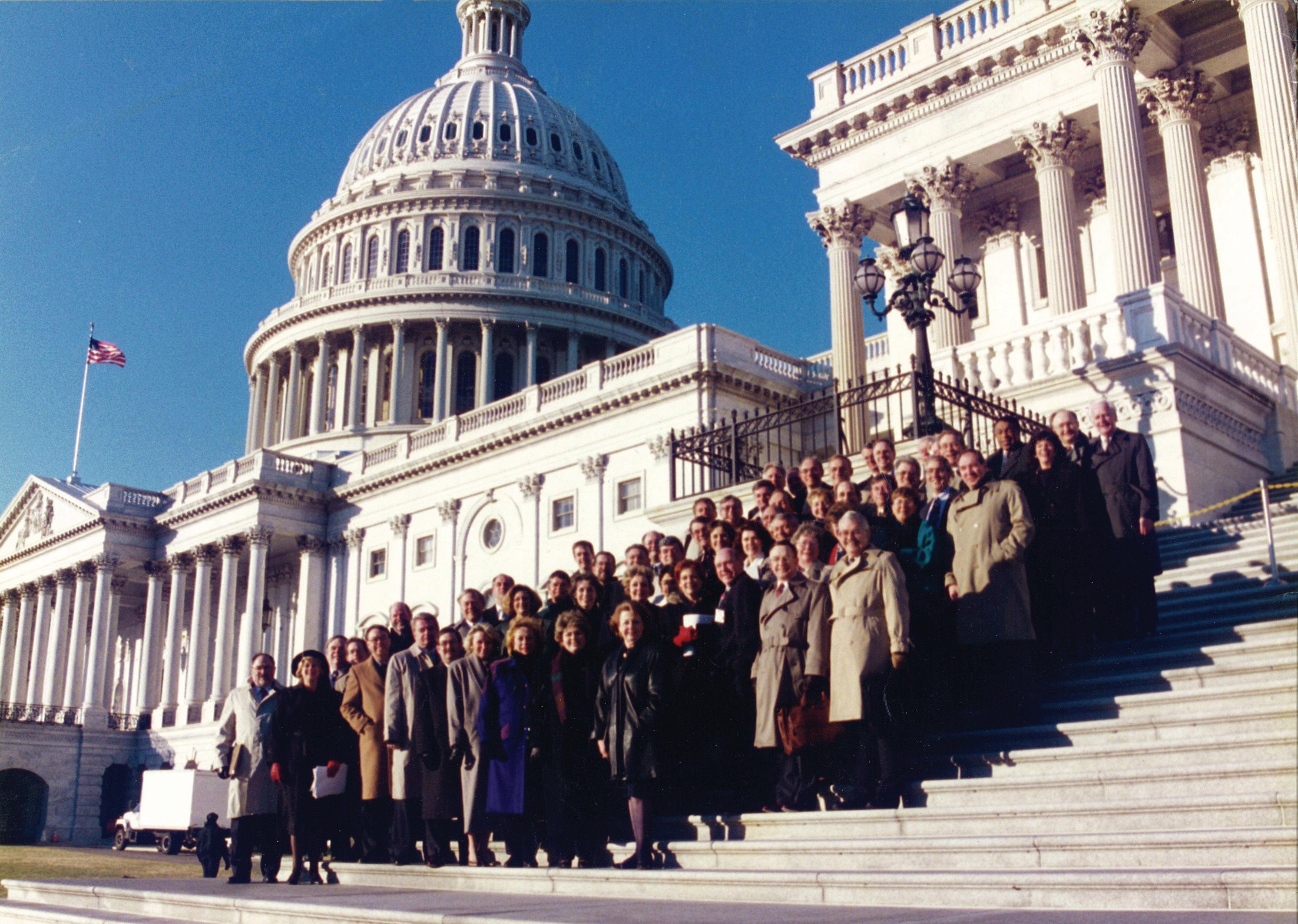
• Amended proposed legislation that would have required principals to annually report the number of disciplinary warnings issued in school each year, disaggregated by race, ethnicity, gender, and socioeconomic status.
• Successfully stopped legislation that would have required NJPSA members to produce a burdensome amount of data on student learning outcomes during the pandemic; instead proactively advocated for a waiver of certain student academic assessment requirements from the federal government.
• Continued a multi-legislative-session battle over student journalists rights on school-sponsored publications and media all the way to the Governor’s desk, ultimately convincing the Governor to issue a conditional veto to legislation unanimously passed by the Legislature. In the end, the Legislature voted to restore language recognizing our position and the school principal’s right to exercise editorial control under certain circumstances.
• Obtained waiver language for school districts from a bill creating a requirement that all districts offer mandatory summer schools for the 2020, 2021, and 2022 school years, ultimately working with colleagues to convince legislators not to enact any mandate due to staffing and funding concerns.
• Convinced the Legislature that a proposed requirement to have educators physically apply suntan lotion to students’ bodies did not make any sense!
• Promoted amendments to legislation to loosen the state’s residency requirements, permit retired teachers and school nurses to return to work without risking their pensions during the pandemic, and worked to provide some flexibilities within certification restrictions for certain staffing groups in order to assist our members in staffing their schools during the pandemic.
• Secured critical amendments in a heightened political environment to a legislative package endorsed by Governor Murphy and sponsored by a beloved and retiring Senate Majority Leader concerning gun safety and school security drills. NJPSA led the legislative negotiations to strike the right balance in the conduct of school security drills between trauma-informed practices and mandated requirements that would have compromised school security, best practices in school security drills, and the actual practice of conducting those drills in schools.
These examples illustrate how the issues and recommendations our members share with the GR Team translate into positive action on legislation that has meaningful results for NJPSA members statewide on issues impacting their day to day professional lives.
NJPSA has also initiated legislation and code to assist our members and their families. Many years ago, when higher education programs were not meeting our members’ needs, we initiated modifications to the NJ administrative code to pave the way for the accelerated certification program, NJEXCEL. We initiated and lobbied for the enactment of legislation establishing certification for Athletic Directors in the 1990s, thus elevating that role in our schools. Recently, we initiated and lobbied for accidental death benefits legislation to support the families of members who died from serving their school communities during the COVID-19 pandemic.
The Big Issues
Over the years, Government Relations has also grappled with the “Big issues” impacting our members and public schools in general. Equitable and adequate school funding within the context of the never-ending debate on New Jersey’s highest in the nation property taxes is one recurrent battle. Others include legislative campaigns:
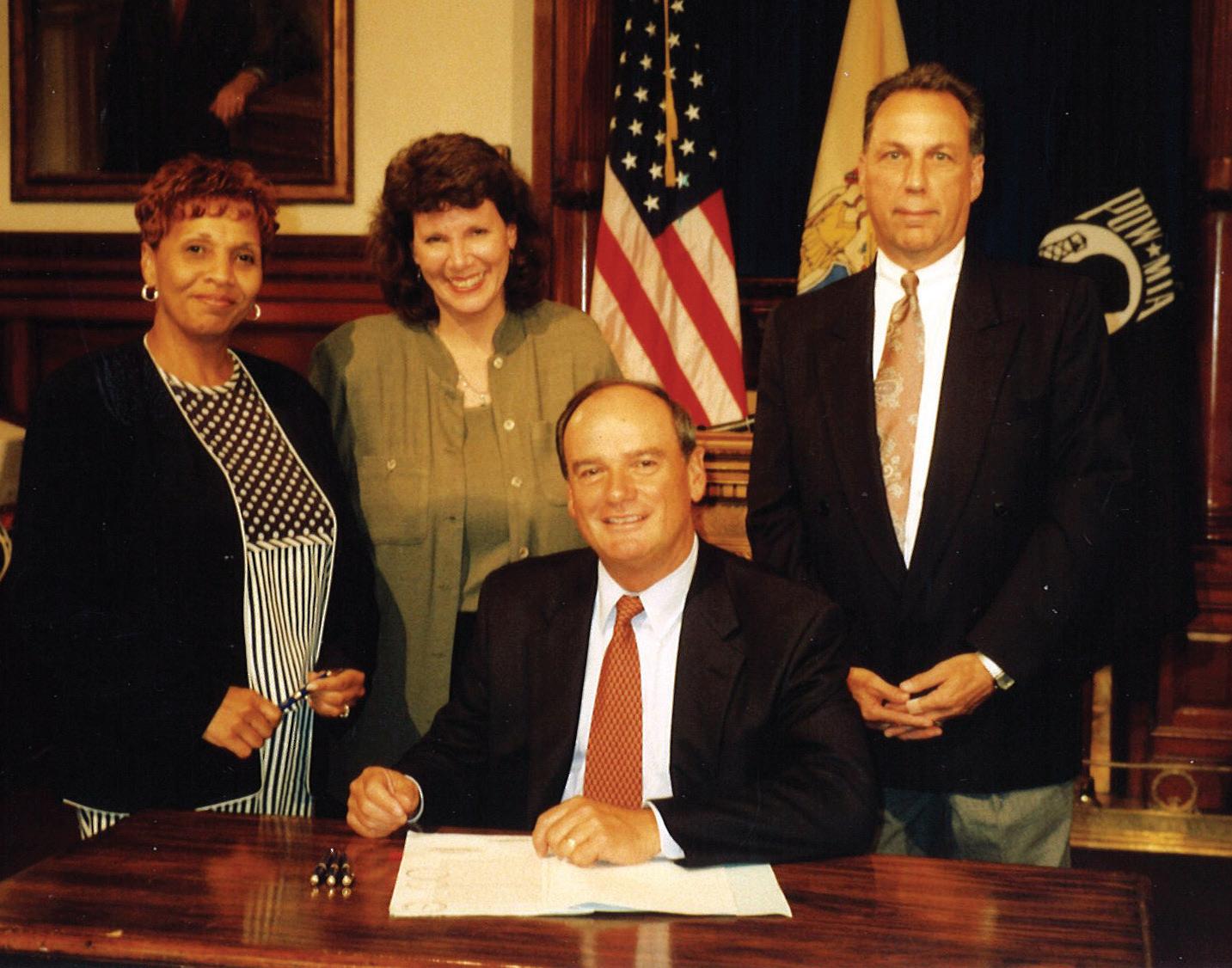
• to enact private school vouchers or educational tax credit scholarship programs,
• to privatize and/or regionalize educational services,
• to provide some level of parental “choice” within the public school system where local schools are not meeting student needs through options like charter or renaissance “public” schools or an interdistrict public school choice plan,
• over what should be taught in our schools (sex education, “abstinence only,” critical race theory),
• focused on the qualifications and performance of those who teach our students (Pass the Trash legislation, certification issues, tenure reforms, teacher/principal evaluation systems, residency laws), and
• how New Jersey should measure school and student success (assessment, NJQSAC, high school graduation requirements).
These debates are timeless, ongoing conversations that have taken multiple forms over the decades. School infrastructure, desegregation, diversity, inclusion, and the needs and rights of all populations of students manifest themselves in law or policy in one form or another. And of course, the rights of NJPSA members as public employees (think pensions and health benefits!) who collectively bargain and who also serve as management always adds an interesting twist to our association’s goals and perspective.
Issues our members share translate into positive legislative action.
NJPSA has been part of all of these conversations and has participated in the legislative process and the policy development world of the NJDOE and State Board of Education on behalf of NJPSA members. Consider the following to be a written slideshow of our advocacy work over the decades:
1. School Funding - Abbott v. Burke Begins the 1990s with “Equity and Adequacy” – Ripple Effects Continue Today
In the spring of 1990, during an economic recession, the landmark New Jersey Supreme Court case of Abbott v. Burke issued, finding the state’s school funding statute to be unconstitutional as applied to students attending school in 28 largely urban school districts in our state. The Court’s remedy ordered the State Legislature to enact a new school funding formula by the 1991-92 school year that would ensure a “foundational level” of funding that was “substantially equivalent to” the funding levels in the suburban school districts in the state AND that was “adequate” in the sense that it provided for supplemental programs needed to address the extreme disadvantages experienced by poor, urban children in the 28 Abbott districts.

By the June 1990 budget (FY 1991), Governor Jim Florio and the Democratic Majority Legislature had enacted the Quality Education Act (QEA), a new school funding formula to comply with the edicts of Abbott, and a comprehensive $2.8 billion

statewide tax increase to pay for it. The QEA redistributed millions in state aid from over 200 school districts that would see the loss of most if not all their state aid to poor urban districts and about 350 districts that would see state aid increases.
What followed was a public uproar where the sales tax, cigarette, and “toilet paper taxes” became the symbol of a government that had simply gone too far (and perhaps gotten too personal?). It should be noted that Governor Florio and the Legislature also enacted the strongest assault weapon ban in the nation at the same time, so public controversy was evident on more than one front. Grassroots taxpayer revolts organically sprouted across the state led by “Hands Across New Jersey.” As the new tax package supported our public schools, NJPSA was on the side of the angels or the devils, depending upon your perspective. In the 1991 midterm elections, the State Legislature would flip from Democratic majorities in both houses to veto-proof Republican majorities in both houses.
In this battle, as in all discussions of school funding, NJPSA represented all New Jersey school districts and their interests. It is our mission to present the needs of all members’ districts, so legislators understand the complexity of school district costs, budgets, local fair share contributions under New Jersey’s taxing structures, the needs of all students, and the school costs associated with meeting them. On funding issues, NJPSA has worked in coalition with our partners in public education from public education groups like the NJEA,
NJ School Boards Association, NJ Association of School Business Officials, NJ Association of School Administrators, NJPTA, to groups representing special populations of students including the Statewide Parent Advocacy Network (SPAN), the NAACP, the Association for Children of New Jersey, and the Education Law Center. We also have brought our members, the best advocates for their students and schools, to the doors of the legislative chambers to lobby for their students’ needs directly to those occupying the voting seats of the Legislature.
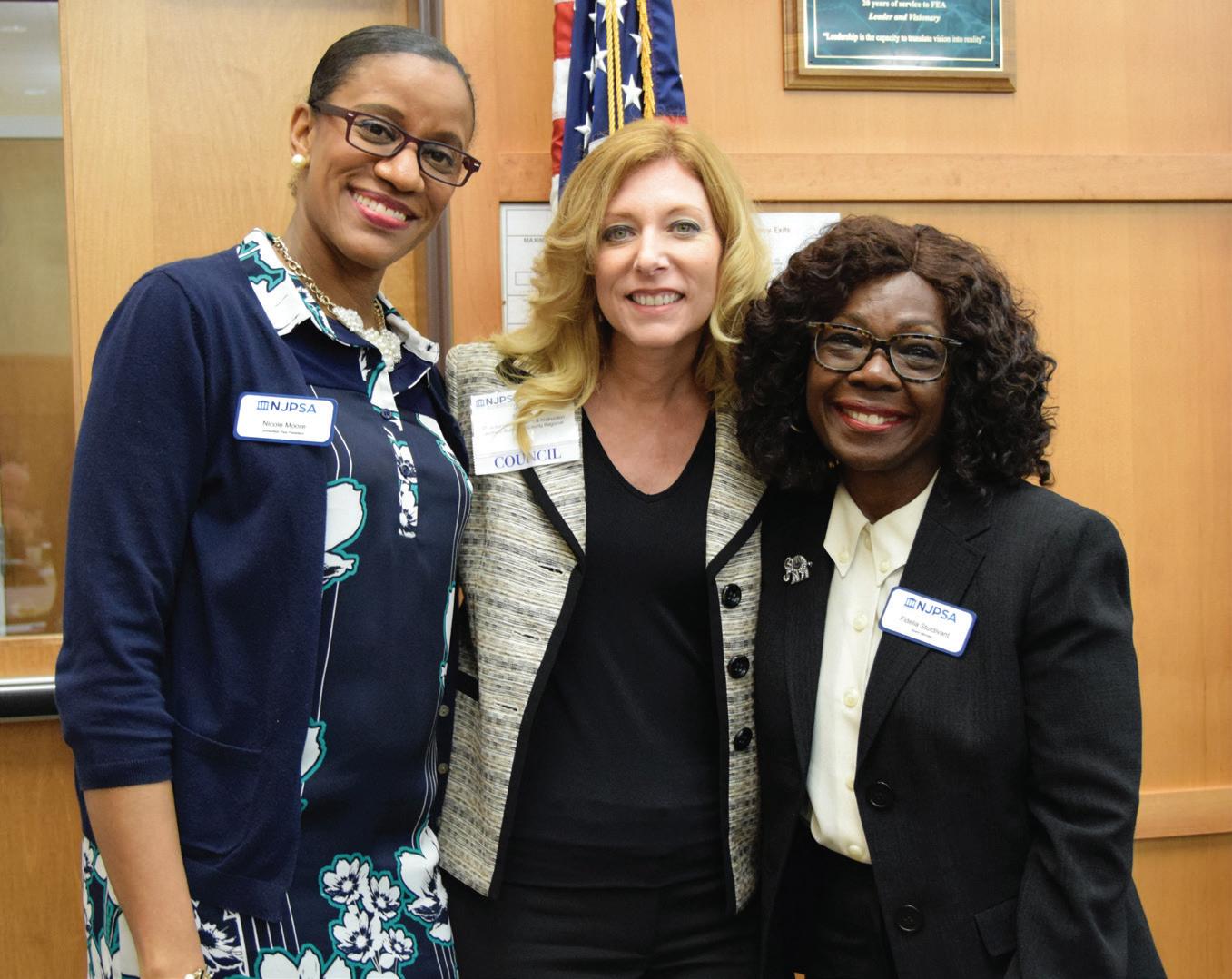
Just two years later, the Abbott plaintiffs returned to the NJ Supreme Court on the issue of whether the QEA had met the Court’s requirements in its remedy. Following a remand to a trial judge to develop a record, the Supreme Court affirmed the trial judge’s conclusion in 1994, finding the QEA to be unconstitutional and sending the Legislature back to the school funding formula drawing board.

A similar cycle occurred for the next school funding formula. The Legislature enacted the Comprehensive Education Improvement and Financing Act (CEIFA) in 1996, and by January 1997 the Abbott plaintiffs filed a challenge to the NJ Supreme Court claiming the statute was unconstitutional. This time, the Supreme Court, losing its patience with the legislative remedies provided, detailed their own remedy. The Court ordered parity in foundation funding for the 1997-98 school year and beyond at the level of the wealthiest school districts. This funding parity was to continue until the Legislature could demonstrate that a lower level of resources would allow poor urban students to achieve the academic standards of the state. Lastly, the Court again remanded the case to a trial judge to develop a record on the issues of supplemental programs and school facilities. This record ultimately resulted in Supreme Court orders requiring high quality preschool programs (starting at age 3 for at-risk students), supplemental programs based upon the needs of “at-risk” students, and a comprehensive school facilities program in the Abbott districts to meet the constitutional requirement of a “thorough and efficient education” in the now 30 Abbott districts.
These court rulings resulted in untold hours of legislative hearings on school funding, facilities, and corollary legislation and regulations focused on the related issues of the physical and educational components of high quality early childhood education, the appropriate qualifications of early childhood teachers and staff, the curriculum, and funding levels required to provide it all. It also resulted in a statewide school construction plan with an initial investment of $6 billion dollars and subsequent investment of $2.8 billion dollars for Abbott and non-Abbott construction projects. Yet, this was only one stage in the school funding battles that unsurprisingly continue to this day.
2. Administrator Tenure at Risk, but Principal Tenure Rights Ultimately Protected!
In the latter-1990s, Governor Christine Todd Whitman proposed a significant “reform” that would have negatively and permanently transformed the principalship in New Jersey, which required swift action by the GR Team and NJPSA members.
In her State of the State address on January 13, 1998, Governor Whitman announced her intention to sign a bill to be developed by the Republican-majority Legislature that would eliminate tenure for all school principals. NJPSA immediately set out to pressure legislators to oppose this bill, urging its members, through a statewide campaign, to send personal letters to Senate President Donald DiFransesco, Assembly Speaker Jack Collins and other Senators and Assembly members.
Most importantly, we developed an alternative choice for legislators to retain principal tenure, yet reform the tenure hearing process itself! By working closely with key legislators, including former principal, Senator Joseph Palaia, and Assemblyman Louis Romano, a school business official, Debra Bradley was able to draft alternative legislation to streamline the tenure hearing process, reducing timelines and costs, clarifying the extended tenure filing process, and ultimately meeting Governor Whitman’s goal of enhancing accountability at the principal level. Previous efforts to “reform” tenure and due process rights often included the assistance of NJEA advocacy, yet, this particular fight was initially waged as our own, as the bill specifically targeted our members. Through sustained association pressure, plus meetings with the Senate President and other legislators, we were ultimately able to build a strong coalition of legislators and other organizations to advocate for our vision of tenure reform, which retains principals’ tenure rights to this day. Without the hard fought efforts of past members, legislative leaders who heard us, and your GR advocacy team, principals would not have tenure rights today.
Tenure rights for principals protected!
1981-82
NJPSA is Established - The New Jersey Association of Secondary School Principals and Supervisors and the New Jersey Elementary Principals Association officially merged and became the New Jersey Principals and Supervisors Association with 3,500 original members.

NJPSA holds its first Legislative Conference. Guest speakers include then-Assemblymen Joseph Doria and William Pascrell.
Groundbreaking ceremony is held in the Centre Drive complex in Monroe, NJ, for the new NJPSA headquarters. Building opens in November 1996.
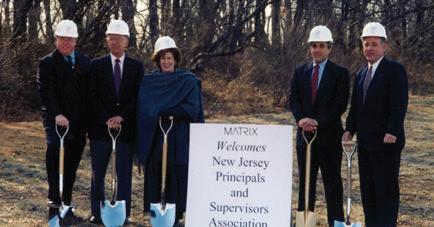
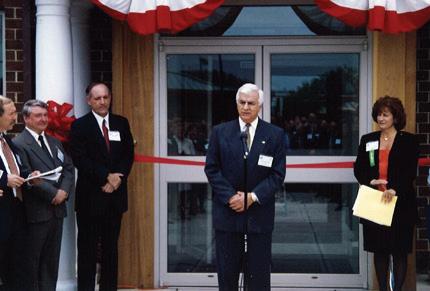
JoAnn Bartoletti is named NJ Society of Association Executives Executive Director of the Year
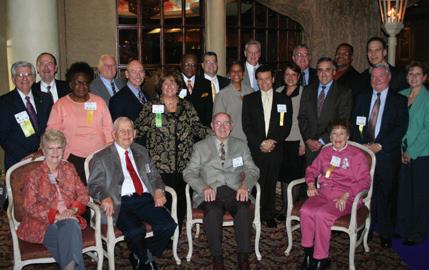
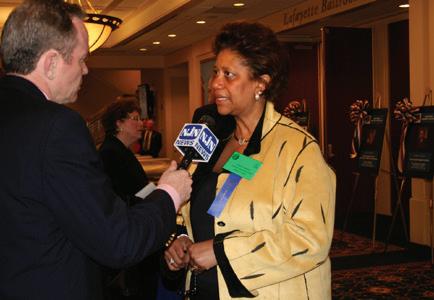

1990

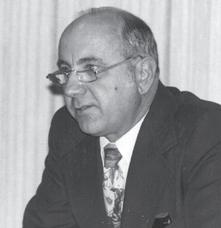
After five years of working as a summer intern and part-time, Stacy Barksdale-Jones joins the staff of NJPSA and is still active today as Assistant to the Executive Director.

NJ enacts the Quality Education Act (QEA) as its new school funding formula.
1991
Among the original staff are attorneys Robert Schwartz and Wayne Oppito, Assistant Executive Director Walt Chesner, and Terry Evanko, who would go on to become Assistant Executive Director in 1987.
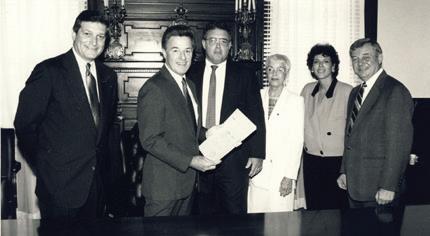
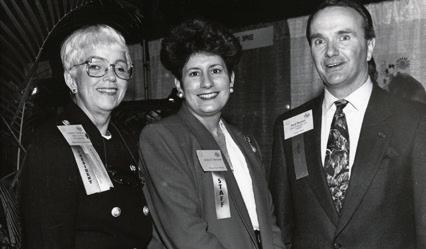


The Foundation for Educational Administration (FEA) is created, which allows NJPSA to obtain grants for major research projects and, later, to provide school leaders with professional development opportunities.
NJPSA reaches its goal of 4,000 members. 1982
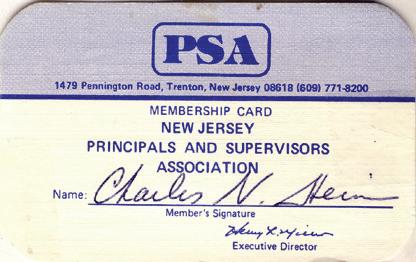
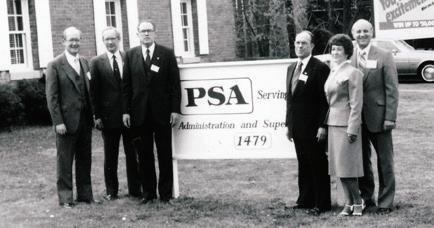
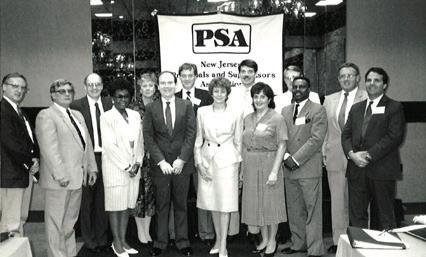
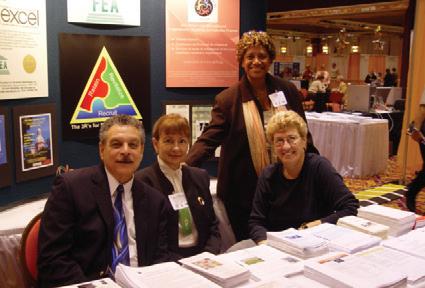

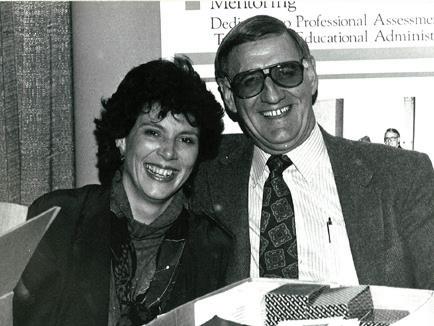



Henry Miller retires and JoAnn Bartoletti is named Executive Director of NJPSA, a position she will hold for 20 years.
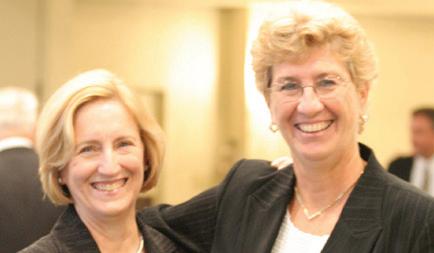
NJPSA holds a dedication ceremony for its new headquarters at 12 Centre Drive in Monroe, NJ. Attendees include Monroe Mayor Richard Pucci and Assemblywoman Barbara Wright.
NJPSA’s Government Relations team successfully defeats an effort announced by Governor Christine Todd Whitman in the State of the State Address that would have eliminated tenure for all principals.
NJEXCEL is approved by the New Jersey Department of Education as a provider of principal certification for candidates with master’s degrees, supervisor certification, and supervisory experience. More than 2,000 administrators will complete this FEA program in the following 20 years.
NJPSA Executive Council votes to form a Political Action Committee (PAC).
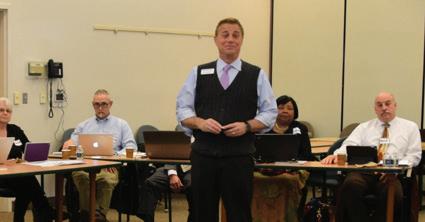
Sweeping changes are made to the principal certification process, including the need to pass a state-administered examination, to complete a residency, and to earn a master’s degree in a field of leadership/management.
1989
Virginia August, vice principal in the Deptford Township School District, becomes the 5,000th member of NJPSA.
Tony Scannella is hired as the NJPSA Director of Professional Development. He would later be named as the CEO of FEA.

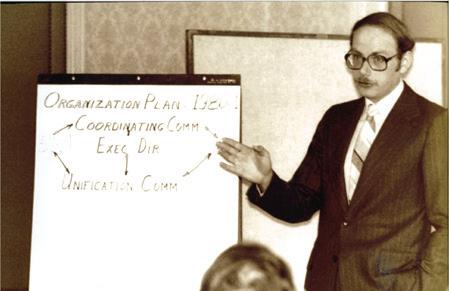
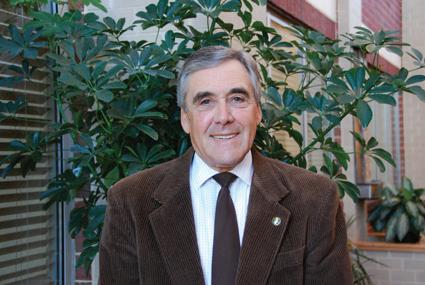
NJPSA collaborates with Senator Joseph Palaia and Assemblyman Louis Romano on legislation that reformed tenure and protected all due process rights. The bill passed both Legislative Houses and was signed by the Governor.
FEA holds the first ELITE summer institute at the Wildwood Convention Center.
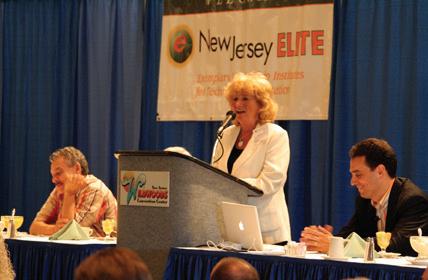
2003

The first cohort of 41 NJEXCEL candidates begins its journey toward principal certification.
FEA was awarded “The 3Rs for School Leadership: Recruit, Retain and Revitalize” SLP Grant to improve student achievement in nine high-need LEAs in New Jersey.
2005
NJPSA offers its members professional development through the Center for Principals and Supervisors. Sixty administrators (capacity) enroll in the Center for leadership seminars over five days.
Debra (Cosgrove) Bradley, Esq. is hired as Director of Government Relations.
NJPSA holds its first Principals Center for Educational Leadership at Princeton University. David Nash, Esq. is hired as Assistant Director of Government Relations. He would later go on to create LEGAL ONE in 2008 and currently serves as its director.
NJPSA receives a $5.1 million grant from the Bill and Melissa Gates Foundation to enhance the skills of school leaders to integrate technology into the classrooms and curricula of New Jersey. This grant results in the creation of the New Jersey Exemplary Leadership Institute for Technology in Education (NJ ELITE).
Denise Hecht is hired as NJPSA Assistant Executive Director.
New Jersey Leaders to Leaders (NJL2L) is established as New Jersey’s official mentoring program for new administrators.
The NJ Supreme Court issues its ruling in the case of Abbott v. Burke.
Chuck Stein is hired as NJPSA Assistant Executive Director.
Henry Miller is named Executive Director of NJPSA. Ronald Watson is named the first President.
2002 2001 2000 1998 1997
1996 1993
1988 1985 1984
NJPSA moves its headquarters to 1479 Pennington Road in Trenton.
1983
2014
NJPSA expands its headquarters at 12 Centre Drive by completing an addition with multiple office spaces, meeting rooms, and classrooms. The complex is now called the FEA Conference Center.
Pension and benefits reforms raise the retirement age for new enrollees from 60 to 62 and limited sick leave payouts at retirement to $15,000.
LEGAL ONE is created as an FEA program to deliver high-quality legal training to New Jersey school leaders, as required by recently passed legislation.
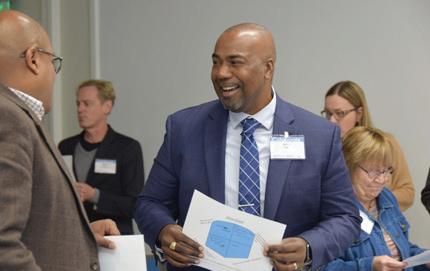
New Jersey adopts the School Funding Reform Act (SFRA).
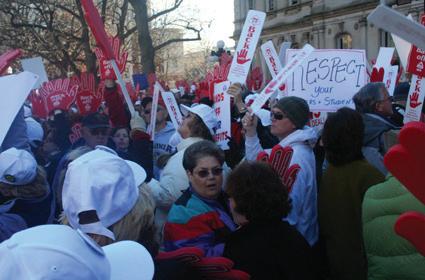
2010
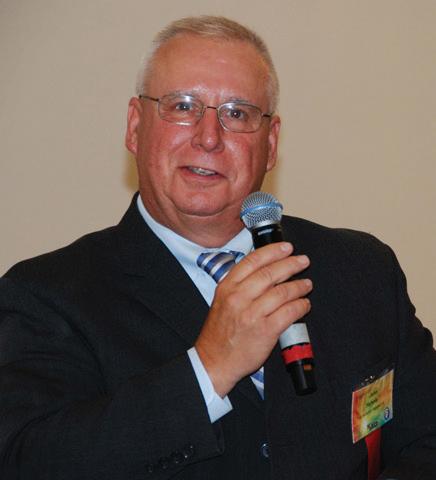
Common Core State Standards are officially adopted detailing what K–12 students throughout the United States should know in English language arts and mathematics at the conclusion of each school grade.
2011
The Anti-Bullying Task Force is established, and chaired by NJPSA Executive Director Pat Wright, to provide guidance to school districts and to present recommendations regarding the implementation of ABR.
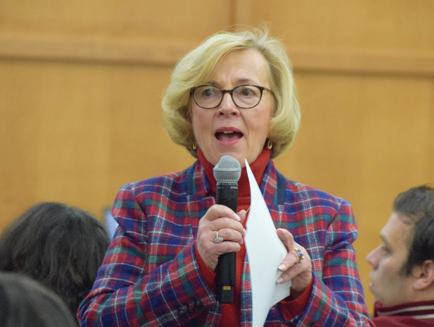
2019
NJPSA partners with NJASA to create the New Jersey Leadership Academy, a professional learning opportunity that encourages the sharing of expertise across leadership roles and responsibilities. NJLA provides sustained professional learning over three sessions and ensures a process for continuous improvement.
and is named Executive Director of the National Association of Secondary School Principals.
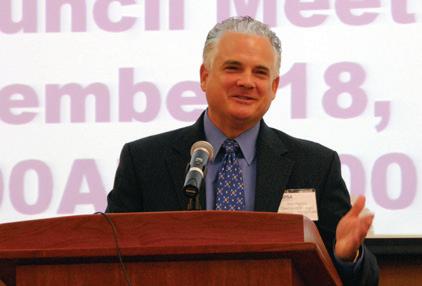
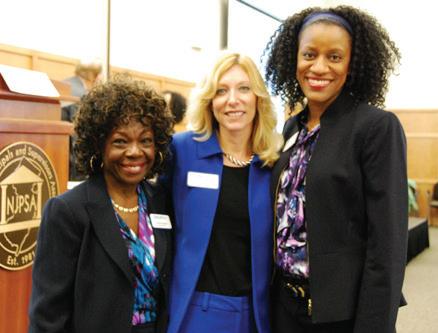
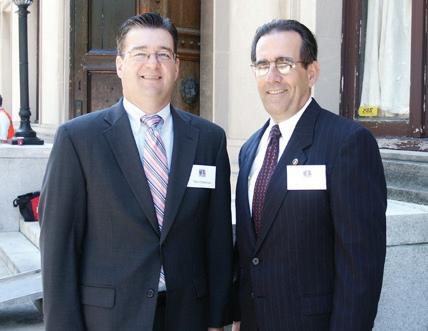
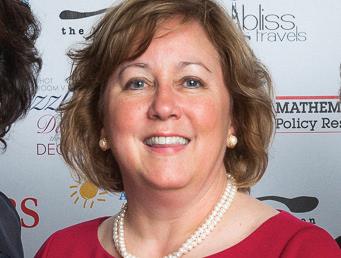
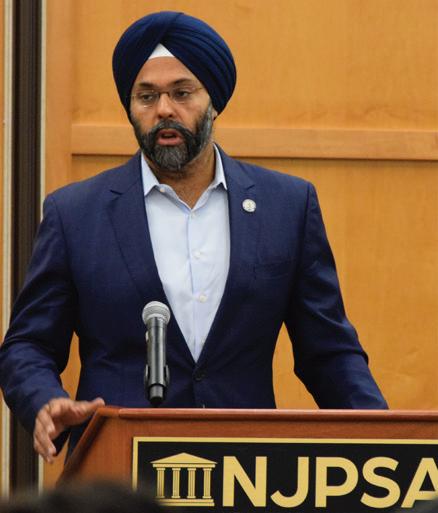
2012
The NJPSA/FEA/NJASCD Fall Conference moves to the Ocean Place Resort in Long Branch.

NJPSA reaches more than 6,000 premier active members.
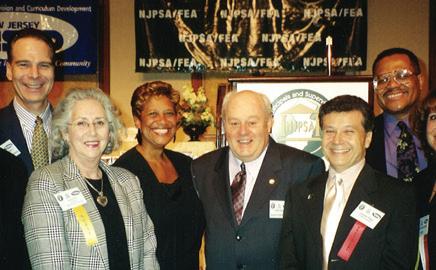
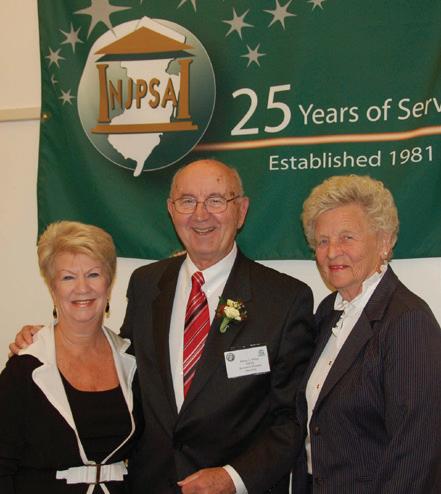
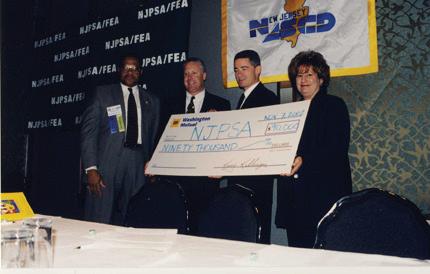
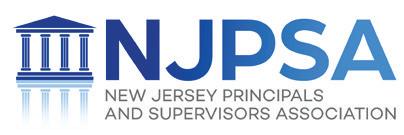
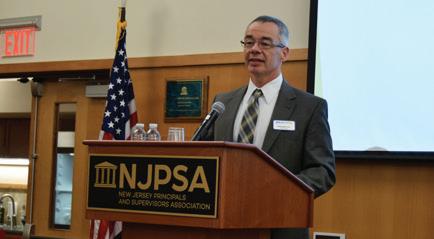
2020
The COVID-19 pandemic forces school buildings to close and learning to be conducted remotely. NJPSA/FEA staff shift to remote working, and all professional learning, NJEXCEL classes, and NJL2L peer/mentoring sessions are now held online.

Pat Wright announces her intention to retire, but remains in her role to lead the organization through the pandemic.

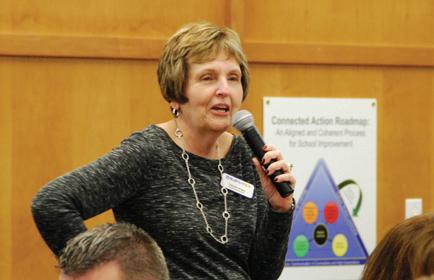
2013
2015
Tony Scannella retires, and Jay Doolan is named CEO of FEA. AchieveNJ is adopted by the State Board of Education, changing the educator evaluation and support system.

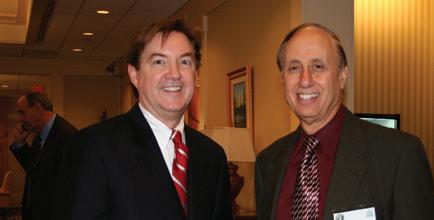
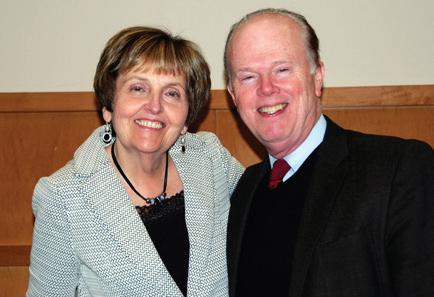
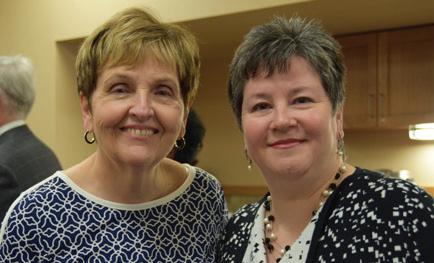
FEA is awarded a $5 million USDOE school leadership grant to support the high-needs districts of Millville, Bridgeton, and Trenton over five years.
The first cohort of NJTLC begins its journey to achieve the NJDOE-approved Teacher Leader Endorsement.

2021-22
NJPSA performs a communications audit and develops new logos, branding, web site presence, and social media, and renews its commitment to focus all energies on its members as trusted partners.
Pat Wright introduces the Connected Action Roadmap (CAR), a process that empowers PLCs to operate more effectively and connects standards with student learning. CAR will become the vision of the NJDOE for teaching and learning in New Jersey schools.
NJPSA joins other leading educational organizations to form the NJ Public School Labor-Management Collaborative to facilitate greater collaboration among unions and management.
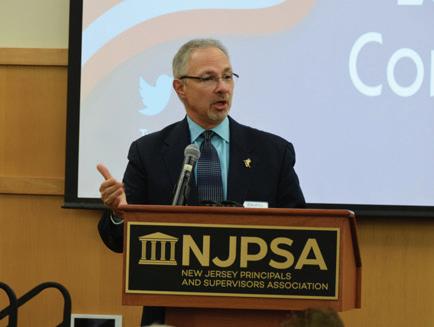
New Jersey schools administer PARCC for the first time. The controversial assessments were criticized for being too difficult and time consuming, and were ended in 2019.
2016
The New Jersey State Board of Education adopts the New Jersey Student Learning Standards.
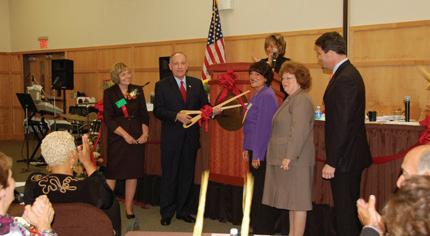
NJPSA adopts its Guiding Beliefs for Learning Leaders.
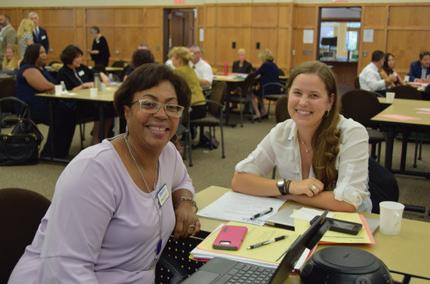
NJPSA members gather at Borgata in Atlantic City to celebrate the 40th Anniversary of the association.
 Pat Wright retires, and Karen Bingert is named Executive Director of NJPSA. Rooms A,B,C,D of the FEA Conference Center are renamed The Pat Wright Center for Leadership and Learning.
Patricia Wright is named Executive Director of NJPSA.
Bob Murphy joins NJPSA as Director of Retirement Services, and now also serves as Assistant Executive Director.
NJDOE adopts Teacher Leader Endorsement Regulations.
Jay Doolan retires, and Donna McInerney is named CEO of FEA.
JoAnn Bartoletti retires from NJPSA
Pat Wright retires, and Karen Bingert is named Executive Director of NJPSA. Rooms A,B,C,D of the FEA Conference Center are renamed The Pat Wright Center for Leadership and Learning.
Patricia Wright is named Executive Director of NJPSA.
Bob Murphy joins NJPSA as Director of Retirement Services, and now also serves as Assistant Executive Director.
NJDOE adopts Teacher Leader Endorsement Regulations.
Jay Doolan retires, and Donna McInerney is named CEO of FEA.
JoAnn Bartoletti retires from NJPSA
NJPSA members joined 35,000 educators and other stakeholders in Trenton to protest Governor Chris Christie’s proposed education cuts, which ranged from salary freezes to pension cuts to school tax caps. Our statewide campaign featured a large band aid with the saying “Cuts Hurt Kids.” 2008
Celebrating 40 Years of Supporting NJ School Leaders!
3. Property Taxes and The Special Legislative Session - 2006

Over time, our state leaders changed both in the Executive and Legislative branches, as did our state’s economic fortunes. With each cycle, the public’s perspectives and our politicians’ priorities shifted.
In the Christine Todd Whitman years (1994-2001), the focus was on tax relief including income tax reductions, that Republican majorities in the State Legislature enacted. The subsequent state revenue deficits impacted state coffers and its ability to meet state obligations, including its obligation to fully fund the schools. Whitman’s husband, a Wall Street entrepreneur, developed a plan to borrow against the then well-funded assets of the public pension systems. This $2.8 billion pension bond legislation passed the Legislature despite the concerns raised by NJPSA and other members of the public pension systems. To offset these concerns, a major benefit was enacted for public pension members, the changing of the pension formula itself to the number of years of service over age 55. Naturally, NJPSA supported this member pension enhancement, but its availability to members was relatively short-lived as future pension reforms would eliminate it for future generations of public employees.
During the McGreevey/Codey years (2002-2006), attention turned to rising property tax issues, as the impact of the Whitman tax cuts grew. On June 6, 2006, with newly-elected Governor Jon Corzine in office, Senate President Dick Codey and Assembly Speaker Joe Roberts announced “an unprecedented special legislative session” to grapple with New Jersey’s highest in the nation property taxes. At the close of that month, the first government shut-down occurred when Governor Corzine and the State Legislature could not agree on a State Budget that contained a one percent sales tax increase by the July 1 statutory deadline. The proposed sales tax was a thorn in the side of the Legislature seeking to cut costs instead. Ultimately dedicating half of the sales tax revenue to property tax relief and half to state expenditures, the shutdown ended. However, the fervor for property tax relief efforts only intensified.
On July 28, 2006, via legislative resolution, four specific joint legislative committees were established to grapple with the underlying components of the property tax issue: public school funding reform, government consolidation and shared services, public employee benefits reform, and constitutional reform with a potential for a Citizens’ Property Tax Constitutional Convention. These committees had four months to meet, study a complex state issue, take testimony from witnesses statewide, and develop recommendations for legislative
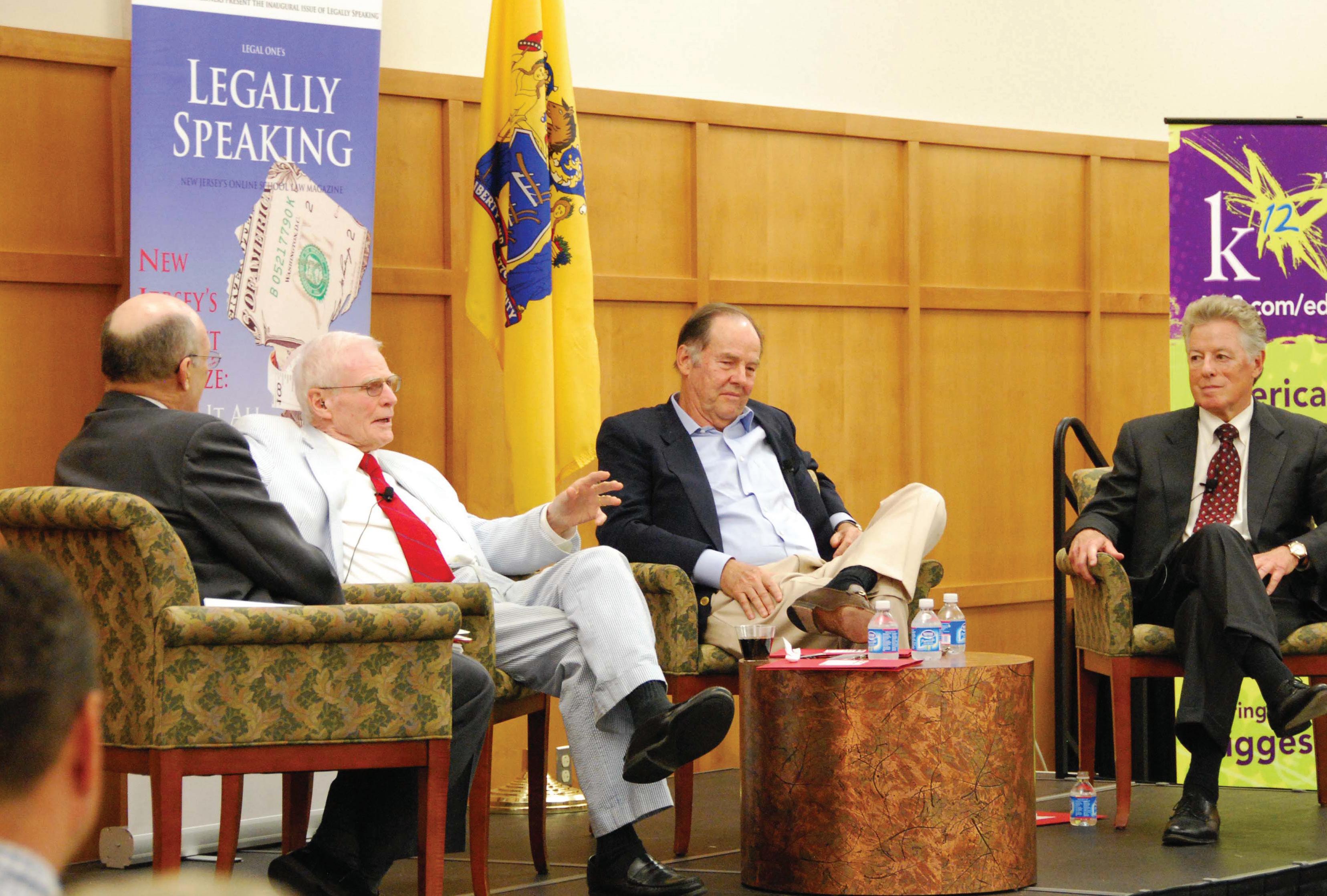
action including potential changes to the NJ Constitution. For NJPSA members, this was a time of great risk, since all four committees had potential adverse consequences to their personal and professional welfare:
• The School Funding Reform Joint Legislative Committee was specifically charged with developing a new school funding formula, including proposals to control school district spending, particularly administrative spending.
• The Joint Legislative Committee on Government Consolidation and Shared Services was specifically charged with examining proposals put forth by Speaker Joe Roberts to consolidate oversight of administrative spending at the Executive County Superintendent level, to consider forced consolidations of school districts in some cases, and to create county based school districts.
• The Joint Committee on Public Employee Benefits Reform was to review abuses of the system of benefits provided to NJPSA members and other public employees shortly after a State Committee on Investigation (SCI) Report had notoriously revealed some lavish salaries, perks and benefits abuses of some school superintendents, and a Benefits Review Task Force Report (2005) had recommended significant changes to the types and levels of pensions and health benefits afforded public employees.
• The Constitutional Reform Committee posed the threat of direct and permanent changes to the State Constitution, emanating from the other three committees and moving directly to New Jersey citizens for a vote!
NJPSA’s GR Team attended the vast majority of the 32 public hearings held by the four legislative committees, testified through NJPSA members or Debra Bradley at each separate committee to present the association’s perspectives/ recommendations, and subsequently developed positions and lobbying efforts on the 233 pieces of legislation, including 63 proposed constitutional amendments, that were subsequently introduced as a result of this Special Session!
In the area of consolidation, NJPSA fought legislation that would have required county-based collective bargaining, established countywide school districts, and required small school districts (less than 500 students) to share/consolidate administrative services.
The pension and benefits reforms that resulted were just the tip of the iceberg for the next 15 years of proposed pension and benefits reductions and our battles against them. This initial round did result in 112 proposed pension and health benefits reform bills, which included proposals to raise the retirement age for new enrollees, modify the pension formula calculations, eliminate pension abuses such
as double-dipping, limit sick leave payouts at retirement to $15,000, introduce 401(k)-type programs for new public employees, and introduce concepts of cost sharing in health benefits by employees. During the Corzine years, the retirement age was raised from 60 to 62, pension eligibility standards for part-time workers were increased, and legislation permitting the state/local boards to offer employees waivers not to take health insurance was enacted.
In the area of school funding, NJPSA and its membership became actively engaged in the development of the third funding formula since the 1990 Abbott decision. A key recommendation of education finance researchers and the Joint Committee was the use of Professional Judgment Panels (PJPs) of educators in the development of a new funding formula. These educator PJPs would analyze the real-world costs of providing an education to students with specific characteristics at each grade level according to New Jersey’s learning standards. NJPSA organized such PJP discussions with over 100 NJPSA members to assess the costs of staffing a preschool, elementary, middle and high school classroom, specialty classrooms (labs, gyms, libraries, etc.), as well as the additional needs and associated costs for the services needed by students with special characteristics at these grade levels (ELL, special education, low socioeconomic, etc.) in the different regions of the state.
NJPSA’s GR staff compiled and submitted this input to the NJDOE, which was working with national school finance expert John Augenblich to develop New Jersey’s foundation funding levels and special per pupil weights for the next iteration of the school funding law, the School Funding Reform Act (SFRA). In this way, the principals and supervisors who actually led New Jersey’s schools had a direct voice in establishing the foundation funding levels that were ultimately adopted in that 2008 statute.
Fortunately, New Jersey did not hold a Citizens’ Constitutional Convention, choosing instead to work through the legislative process and our elected officials to make reforms. The Special Session was a significant period of intensive legislative activity that NJPSA fully participated in. Many of the bills developed during that time period have been considered, some enacted into law and others are still re-filed for future consideration by future Legislatures as the political winds continue to change.
As the Corzine era came to its close, in a preemptive move, the State filed a motion (2008) seeking a declaration that the SFRA was constitutional. After a month-long trial, the NJ Supreme Court found the new formula constitutional so long as it was fully funded for the first three years and was reviewed and accordingly adjusted as needed (2009). The Court also lifted the parity and supplemental program remedies that had been in effect for many years.
4. Upheaval for Schools in the Chris Christie Years (2010-2018)
On January 19, 2010, Governor Chris Christie was sworn in as the 55th Governor of New Jersey, and so the pendulum took a dramatic turn for our schools in ways many could not anticipate. With an aggressive, bare-knuckles style and an unanticipated strategy of partnering with Democratic political bosses out of the chute, Republican Governor Chris Christie threw politics as usual in Trenton upside down.

Taking office at the time of the global banking crisis, Christie immediately faced his first state budget challenge and an $11 billion budget deficit. In FY 2010, Governor Corzine had spent all of a one-time Obama federal stimulus package to stabilize schools and other government functions. Christie did not have this option.
Instead, he immediately took back $400 million in FY 2010 direct state aid from school districts across the board, leading to program cuts and layoffs in some districts mid-year. For FY 2011, he proposed an $820 million reduction in state aid for public schools, which led thousands of students statewide to stage walkouts protesting the cuts to their education. In May 2010, NJPSA members joined 35,000 educators and other stakeholders in Trenton to protest Christie’s proposed education cuts and proposed “solutions,” which ranged from salary freezes to pension cuts to school tax caps. Our statewide campaign featured a large band aid with the saying “Cuts Hurt Kids.” The GR Team organized public testimony
from members, outreach to legislators, and legislative speakers at county meetings to protest the devastation to schools.
By this point in time, Governor Christie had settled upon his public relations strategy, utilizing the NJEA, teachers, and education as his perfect foil upon which to blame the economic woes of the state budget. He began this attack in his now infamous statewide, well-staged Town Hall meetings and the attacks did not stop during his two terms in office. The alleged “greed and failures” of the education system became his mantra, and it played well on primetime. No one in education was spared, as even his own Education Commissioner, Bret Schundler, received the proverbial “ax” after an early dispute with Governor Christie over figures for a failed Race to the Top grant application.
Shortly after passing that first devastating state budget, Christie proposed a series of education “reforms” that in substance, speed, and manner of enactment rocked the education community yet aligned with the Christie storyline. In November 2010, superintendent salary caps based upon student enrollment were enacted through rules and the authority of the Commissioner of Education, not a duly passed bill by the Legislature. A 2% property tax levy cap had been enacted to hold down spending with the state budget. And, a series of education reform legislation (over 30 bills) was proposed in the Christie “Toolkit” the following fall and winter, to hold down school spending, free children from “failing” schools, improve school performance, and provide parental choice in education. The Toolkit proposals included legislation that did the following:
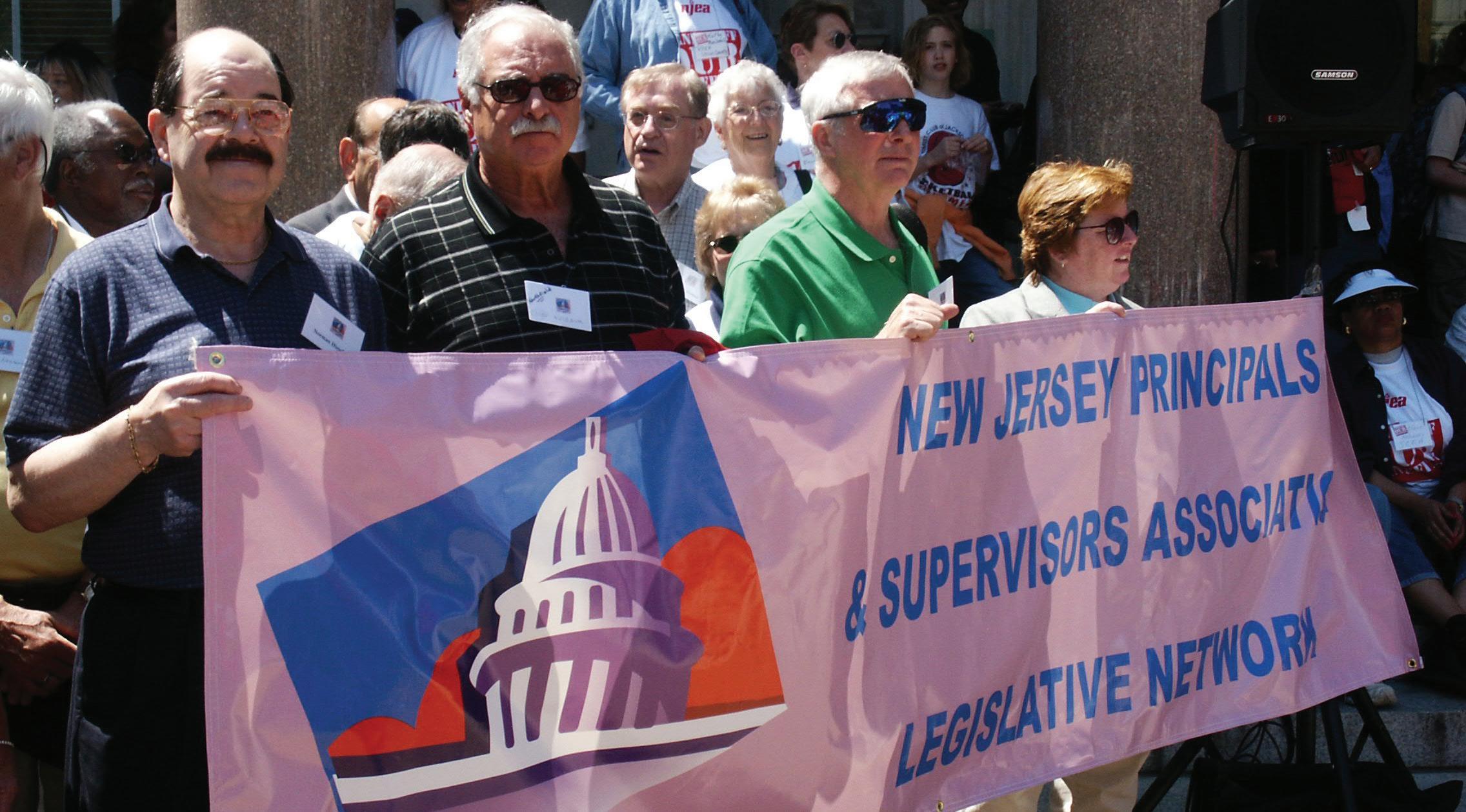
THE DEVASTATING CHRISTIE TOOLKIT
• A corporate tax scholarship program whereby corporations would subsidize a private school voucher type program in exchange for corporate tax breaks;
• An expansion of charter schools and the creations of an interdistrict public school choice plan;
• Proposed changes to existing collective bargaining laws to permit wage caps, imposed “last best offers” and merit pay;
• Legislation granting Executive County Superintendents the authority to hold contracted compensation (salaries and benefits) within the 2% property tax cap, set work rule requirements for teachers, eliminate seniority as the sole basis for salary increases, and eliminate any clauses that prevent subcontracting;
• Statutory limits on sick and vacation leave payouts at retirement despite existing contracts;
• Significant reductions to public employee pensions and health benefits for new employees entering public employment and existing employees where the law permitted which included:
• higher eligibility standards for pensions, providing a 401(K) plan for those working less than 32 hours a week;
• a less generous pension formula at retirement;
• repeal of critical statutory language NJPSA, NJEA, and other public employee unions had achieved in recent legislation that provided a nonforfeitable right to receive the pension benefits in place at a public employee’s five year point of service, even if future reductions were enacted in law;
• A higher retirement age;
• Mandatory premium sharing for active employees in the School Employees Health Benefits Plan;
• Imposition of negotiated changes to the SHBP by state employees to school employees;
• Significant changes to the existing evaluation and tenure laws for teachers and principals, tying educator evaluation to student performance;
• New accountability systems for schools and ways to measure school success as recommended by an Educator Transformation Task Force established by Executive Order 58 (2011), which reviewed all education statutes on the books to determine what was working, what was not, and recommended changes to the education laws;
• Eventually, further recommendations on policy topics at the Legislature and NJDOE/ State Board of Education that included tenure, educator evaluation, student learning standards, the adoption of a controversial new state assessment system through PARCC (the Partnership for Assessment of Readiness for College and Careers), NJQSAC reforms, and changes to staff certification/qualifications seeking to create new career ladders for teachers and principals (Master level positions), and the implementation of the recommendations of the College and Career Readiness Task Force concerning high school graduation requirements; and
• Proposed legislation to privatize educational services in our public schools.
Pension and Health Benefits Reforms, Tenure Resurfaces and Strange Alliances
The topic of pension and health benefit reform was a particular focus of the time. Christie merged a unique alliance with Senate President Steve Sweeney, a union official representing Ironworkers, who also supported pension and benefits reforms for public employees. By June 28, 2011, Sweeney had shepherded through the Legislature and Christie had signed major pension and health benefit reforms including Chapter 78, which provided for employee contributions to health insurance premiums based upon a percentage of the premium linked to salary ranges that would be phased in over four years. The reform package also eliminated the Cost of Living Adjustment (COLA) moving forward, increased the retirement age for future employees while reducing their pension benefit, and established a phased-in, seven-year state repayment schedule of the unfunded liabilities of the pension funds, which New Jersey has since extended several times. A new School Employees Health Benefits Plan was established. NJPSA worked in alliance with NJEA and our colleagues in the public employment sector throughout this controversy.
Previously unheard of alliances between a Republican Governor and Democratic political bosses led to unusual pieces of legislation, which included bills and policy decisions that expanded the number and scope of charter schools in New Jersey and our interdistrict public school choice program. New legislation established a Renaissance school in Camden County to ensure that the South Jersey political boss received equal treatment in education as the Essex County boss.
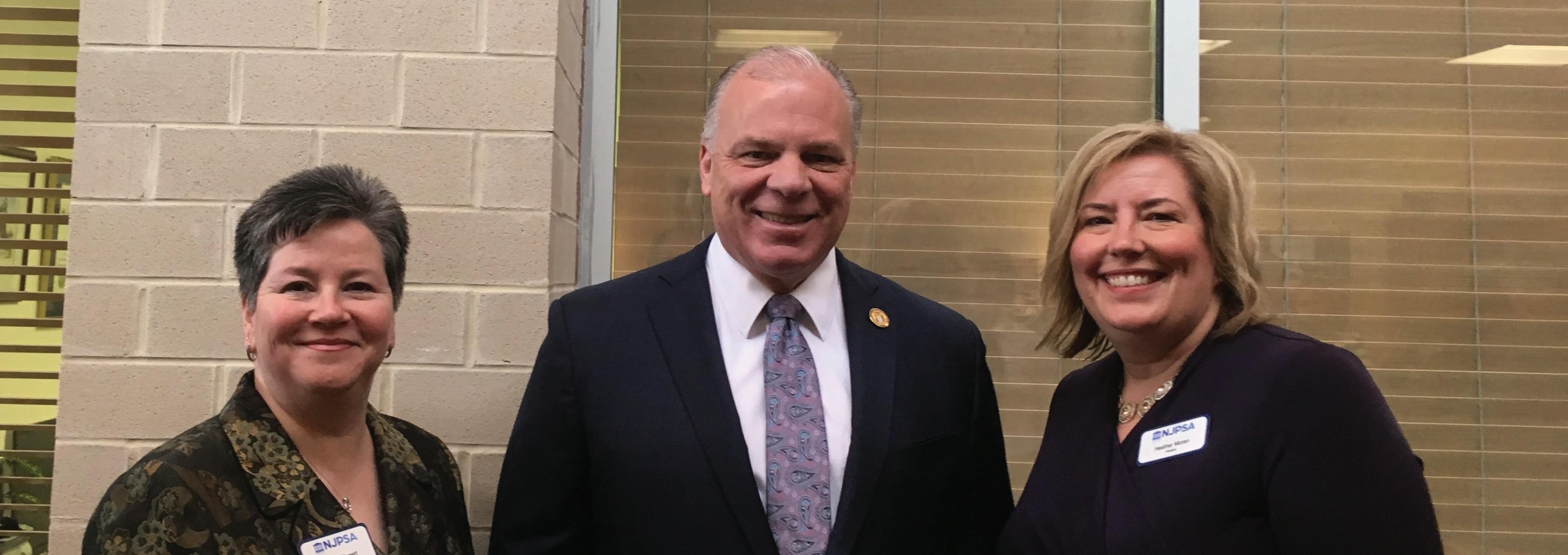
And, the issue of tenure, never asleep for long, resurfaced with both Democrats and Republicans looking for a bill they could vote for. Senator Teresa Ruiz of Essex County, a relative newcomer to the State House, was charged with developing a solution. NJPSA, in collaboration with the NJEA, worked out complex legislation with the bill sponsors that once again, maintained our members’ due process rights, yet further
reformed process issues in tenure cases by agreeing to arbitration, not the Office of Administrative Law as the final arbiter of these cases. NJPSA fought hard to ensure that the evaluation requirements of the bill, which would apply to teachers and principals, were fair and based upon national principals’ standards and research-based evaluation models. We also fought to the bitter end, actually relying on a final floor amendment to the bill, to ensure that certified supervisors, not outside vendors, would perform all evaluations of teachers and NJPSA members.
The passage of this bill was just the beginning, since the State Board of Education and the Christie DOE needed to “put the meat on the bones” of the law through administrative code. Often, this is where a new law can be misinterpreted before implementation, but NJPSA’s GR Team did not permit this to happen. NJDOE staff did attempt to permit the bypassing of the hard fought language requiring certified supervisors to do teacher and principal evaluations, but we fought back. Additionally, we testified on all proposed rules regarding educator evaluation and participated in every work group established. NJPSA staff met with NJDOE staff to develop compromise approaches that would ultimately be fair to all when implemented. We even drafted the matrix, with NJPSA member input, for the mandatory principal practice component of the evaluation tools. The association’s expertise in leadership and evaluation helped define these conversations and regulations to safeguard our members’ rights to a fair and relevant evaluation system in practice.
Another educational issue of great controversy during this time was the state assessment system under PARCC. Endof-course assessments in multiple grade levels in ELA and mathematics, plus science subjects, taken on a computer were mandated on a short timeline for schools. Principals and supervisors took the brunt of the public outcry as parents began an opt-out movement refusing to have their children participate in the assessments. The NJDOE’s stubborn insistence upon the assessment system and its link to educator evaluations continued the public outcry eventually leading to future court actions on graduation requirements and new legislation establishing an 11th grade test to go into effect
for this year’s juniors. NJPSA members have been engaged in every step of this controversy and continue to be today.

As Governor Christie’s term came to its close, his popularity had been dimmed by several controversies, including Bridgegate, his constant battering of public education, and his frequent absences as he pursued his presidential ambitions. The once popular hero of Hurricane Sandy (80% approval rating), left office on January 16, 2018 as the least popular governor in New Jersey history (14% approval rating).
Phil Murphy and the Pandemic
January 2018 began when a new sheriff came to Trenton, as another former Goldman Sachs executive, Phil Murphy, took office as New Jersey’s 56th Governor. With a broad grin and inclusive approach to all, particularly teachers, Murphy literally leapt across the stage to take office. His term can be characterized by enthusiastic partnerships with NJPSA and other education groups. His transition team was made up of over 500 people (!) including NJPSA Executive Director Pat Wright.
Surprisingly, Murphy had issues within his own political party in the Legislature. Disputes with Senate President Steve Sweeney and Speaker Craig Coughlin marked the early days when issues of fully funding the School Funding Reform Act resulted in S-3, compromise legislation that actually redistributed funds under the SFRA according to Sweeney’s priorities. NJPSA supported many of Governor Murphy’s early priorities to invest in early childhood education and ramp up state payments of the unfunded pension liabilities.
Yet Governor Murphy’s first term has been largely defined by his response to the public health emergency of COVID-19 and
its impact on our state. With the closing of schools on March 20, 2020, Murphy had to lead the state, its schools, institutions, businesses, and economy through uncharted waters. NJPSA’s GR Team worked directly with the Administration through both the NJDOE and NJ Department of Health, sharing our members’ questions, concerns and input as rules, regulations, priorities, and Education Plans (The Road Back) were developed. The GR Team organized committees of members to sit on Commissioner of Education work groups to organize the emergency work that needed to be done. We worked as a coalition with other statewide education associations, LEE (Leadership for Educational Excellence), to share the voice of the field with key decision makers throughout the pandemic.
The GR Team also served as the bridge between the field and legislators seeking to help, sponsoring member discussions on key issues throughout the pandemic to hear their issues and concerns. We served on Senator Teresa Ruiz’s work group during the pandemic to then share this input on such key issues as school operations, student learning gaps, summer school, graduation, assessment data, student mental health needs, staff health and welfare and so much more. When legislation was ultimately introduced, the GR Team provided important input and amendments.
As NJPSA leaders struggle to perform their roles in a pandemic and endemic world, the environments of our schools have changed dramatically. Staffing shortages have led the GR Team to seek legislation expanding the staff candidate pools for hiring through certification flexibility, bills allowing retired teachers and nurses to return to work without threatening their pensions, and a waiver of the residency requirement for school hires for the next three years. Additionally, we successfully campaigned for flexibilities in federal testing requirements in the spring of 2021 when these rules simply made no sense for students.
Active Members and Active Communication Make the Government Relations Advocacy Program Succeed

As this review of NJPSA’s advocacy shows, school leaders live in a world that is greatly influenced by our government in its many forms. Whether walking the halls of Capitol Hill or the State House, Zooming in on a State Board of Education meeting, or participating in the multitude of venues NJPSA provides for members to participate, NJPSA members must participate for us to succeed in our advocacy goals!
The Government Relations Team of Debra Bradley and Jennie Lamon represent your interests and do it well on so many fronts, but they need your voice, your ideas, and your active engagement in the process! Be part of the conversation and part of the solutions for your students, schools, and profession - engage in Government Relations advocacy today! You will be glad you did.
An Interview with Pat Wright
In 2011, JoAnn Bartoletti announced that after leading the NJPSA for 20 years, she would be resigning to take on a new role as Executive Director of the National Association of Secondary School Principals. After a lengthy search for new leadership, the executive director hiring committee recommended and the NJPSA Board of Directors selected Patricia Wright to serve in the role. Pat Wright had previously served on the Board of Directors and was the Board President in 2008-09. A lifelong educator, Pat had held the positions of teacher, reading specialist, assistant principal, principal, and superintendent. While leading NJPSA, she served as a member of the New Jersey Professional Learning Committee. She also served as the chair of the New Jersey Anti-Bullying Task Force and co-authored the New Jersey Bar Foundation’s Anti-Bullying Curriculum. She is the developer of the Connected Action Roadmap (CAR), a comprehensive and coherent model of school improvement, which has been endorsed by the Partnership on Collaborative Professional Learning. For all of her outstanding achievements, Pat was awarded the prestigious NJASCD Dr. Ernest L. Boyer Outstanding Educator Award in 2018.
We asked Pat to reflect on her tenure as Executive Director of NJPSA and the contributions that she made to the organization, to its members, and to the educational community:
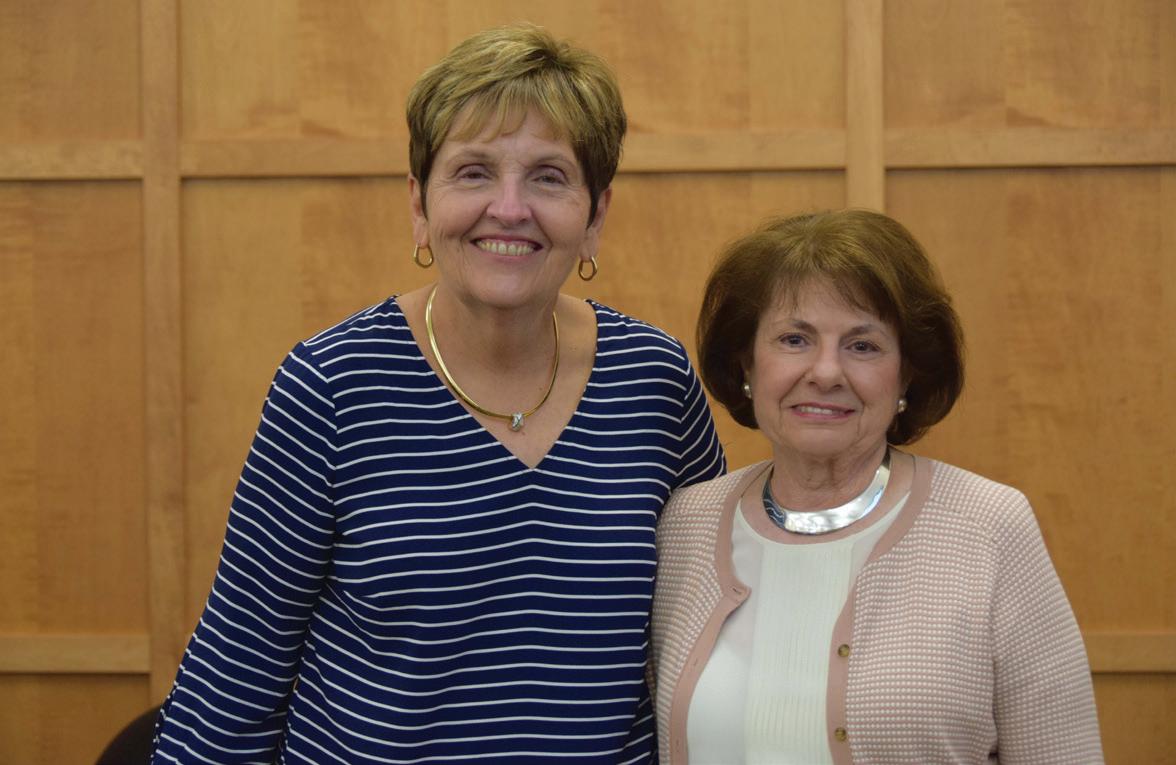
What are the most significant achievements of your tenure as executive director?
As Executive Director, my primary goals were to increase membership by providing relevant and meaningful resources to our members. The only way this could happen was by forming strong collaborative relationships both within the organization and outside of the organization. We have built a true collegial climate at NJPSA/FEA, where every member of the staff shares their knowledge, abilities, and innovative ideas to keep us always moving forward in ways that support the needs of our members. Our partnerships with the other major educational organizations, including the NJDOE, have allowed us to advocate from a position of strength and influence decisions that directly impact the work of our school leaders.
Partnerships and collaboration led to the development of the NJ Leadership Academy, the Teacher Leader Certification program, and the implementation of several state-wide grants. Internal collaboration led to a transformation in how professional learning is developed and delivered. Engaging our talented members has resulted in the high quality, timely, and relevant learning opportunities for our members and their schools and districts.
What were some of the biggest challenges NJPSA faced? How did you handle or overcome these challenges?
During my tenure, NJ experienced “School Reform.” How can we forget the days when everyone felt they were drowning in a sea of initiatives? Common core, the PARCC assessments, teacher and leader evaluation - and the list goes on. The association met the challenge by providing the resources our members needed through guidance and professional learning, while also advocating on several fronts. Members testified at key legislative hearings and played an active role on many state committees. Our partnerships with other educational organizations allowed us to, whenever possible, advocate with one voice.
The impact of collaboration, both internal and external, was certainly evident during the pandemic, the biggest challenge of my tenure. As members tackled the challenges, NJPSA/FEA was also forced to completely change its mode of operation, while at the same time keeping our focus on meeting member needs. NJPSA/FEA was able to build a strong online presence, continue to deliver high quality timely and targeted professional learning, provide much needed guidance, and ensure the voice and the needs of our members drove our advocacy efforts. I believe the pandemic highlighted just how strong our organization is and how much it truly does benefit not only our members, but the students they serve.
The organization also faced fiscal challenges during the pandemic. But thanks to the collaboration of our financial office and our Board, we not only kept our entire staff employed, but we actually added staff to meet the growing needs of our members.
What are your favorite memories of leading NJPSA?

I have so many wonderful memories; it is difficult to choose one. My memories center around the life-long relationships that I have established with staff, with members, and with the larger educational community. Each person that I have had the pleasure to work with has touched my life in some way. Trips with senior staff and Board members to Washington or to national conferences were joy-filled opportunities.
I also cherish the times I would meet members at meetings or while I was presenting a professional learning session. I loved talking to them and encouraging them to become more involved in the association. After all, that is how I became involved beyond just joining. As a principal, a colleague invited me to join the Elementary Education Committee, and I was hooked. I realized that I could do more for our profession and by doing so, I became a stronger leader. And so when one of those members I encouraged to get more involved joined a committee or became a Council member, I knew they would reach out to others and the cycle of strong leadership would continue to grow our association.


What makes you most proud of this organization?
I am most proud when a member says we made a difference in their professional life.
What do you want to say about the members?
The members ARE the association. They are the reason we exist. Their leadership has a huge impact on the staff and students with whom they interact on a daily basis. They are strong, resilient, innovative, and motivated by a strong desire that every student succeeds. The Association needs their leadership. The Association needs them to be actively engaged with us as we strive to support their work. NJPSA has the ability to influence decisions that can impact all school leaders, but it can only do so if the leaders lend their voices, their support, their time, and their talent to the collective work of the Association. The members themselves have always been and will continue to be what makes NJPSA great.
LEGAL AND FIELD SERVICES
Two of the most important services NJPSA members have been able to count on since the organization’s founding are the legal representation from a full staff of attorneys who specialize in education law and field services that provide members with support, guidance, and representation in contract negotiations, grievances, and, when needed, representation before boards of education.
Affiliated bargaining units with 100% of its members belonging to NJPSA are eligible for NJPSA legal services in labor management disputes such as grievances, arbitrations, contract disputes, unfair practice complaints, and representation petitions.
NJPSA’s legal team advises members on a variety of issues including but not limited to negotiations, contract interpretation and/or review, contract violations, contractual grievances, changes in terms and conditions of employment, evaluations, rebuttals to evaluations, affirmative action, hostile or unhealthy workplace claims, claims of discrimination, claims of harassment, tenure acquisition, seniority, tenure charges, transfers, workplace retaliation, and, more generally, advising members on how to address and/or respond to every day controversies or issues that are presented. More recently, we have dealt with a whole host of pandemic-related issues such as the vaccine requirements, testing, and mask mandates.

The legal services that are provided to members serve as a form of legal “insurance.” Being an NJPSA member allows the member to receive legal advice to assist the member in keeping out of trouble, or, if there already is a problem, how to proceed going forward. NJPSA membership entitles the member to assistance on contract issues and representation on civil and/or administrative employment related matters. NJPSA Chief Counsel Robert Schwartz estimates that approximately 10 percent of the membership requires the assistance of the legal team each year.
Some of the more recent cases that were successfully handled by the NJPSA Legal team involved preserving the employment of a number of administrators against whom tenure charges of inefficiency were filed; successfully litigating tenure and seniority claims resulting in the reinstatement of five individuals in their former positions; defeating an Order to Show Cause that had sought the revocation of the teaching and administrative certifications of two members after 12 years of litigation; reinstating one of our members who claimed that his dismissal violated the “just cause” provision of the contract; obtaining the dismissal of tenure charges that had been brought against a number of our members resulting in their reinstatement with all back-pay; and arbitrating a mid-year termination resulting in an award requiring the district to pay our member the balance of his annual salary.
In addition to individual legal protection, NJPSA’s legal team also provides information about new laws and regulations and how they affect our members. Here are a few examples of articles your team has written or legal analysis they have provided over the years that have helped members understand issues and the legal impact:
• Gun Violence in Schools
• Frequently Asked Questions on COVID-19 Related School Policies

• Understanding the U.S. Supreme Court Decision Addressing “Off Campus” Speech
• Open Letter to NJ School Adm. on the Passage of the Legalization of Marijuana
• Non-Renewal of Non-tenured Staff
• Religious Holiday Displays in Schools
As contract negotiations become increasingly difficult, the availability of our field services becomes increasingly important.
NJPSA field representatives are labor relations specialists who are well trained and skilled in assisting NJPSA members and affiliated collective bargaining units in improving job security, salaries, fringe benefits, and working conditions.
This service was started in the early 1980s by NJPSA’s first Assistant Executive Director Walt Chesner - the original field reps were Phil Geiger, Earnie Rittenhouse, Ray Cosgrove, and Herman Mopsick. Over the years the number of field reps have grown. Presently we have more than 30 field reps who serve our membership.

The process starts with a bargaining unit contacting NJPSA and requesting assistance. Assuming all involved are NJPSA members, our team meets with the unit to determine what assistance they need, and our attorneys will review their present contact and make recommendations for consideration. Members have access to the Salary Survey on the Members Only page of our website for reference.
A field rep is assigned to handle the case, if warranted, who could serve as a behind the scene resource or sit at the table and serve as the team spokesperson.
Should the negotiation go to mediation for fact finding, NJPSA covers all costs to the local bargaining unit. Each year, about 160 units are negotiating contracts using the services of our field reps.
The benefits to the local unit is the field reps know the settlement landscape. Many times, they have dealt with the Board Attorneys and have developed a relationship with them. In some cases, if the negotiation is a bit heated, the field rep takes the heat - not the members who will still be working in the district when the contract is finally settled.
In one recent negotiation, a unit this year went through a long fact finding process where two of our field reps had to put together volumes of evidentiary documents to support the unit’s position. The fact finder found for the members and praised the preparation of the field reps in the decision.
NJPSA field reps are labor relations specialists who are well trained and skilled.
Reflections on
NJPSA RETIREMENT SERVICES
For 40 years, NJPSA has been providing numerous services for its members throughout their careers - from aspiring to retiring. In fact, retirement planning has always been one of the most vital services our members count on no matter where they are in their career path. NJPSA members rely on our retirement and benefits experts to assist with understanding the complex elements of the New Jersey public employees pension system, to decide when to take Social Security, to analyze the various health care options, and to explore the possibility of working after retirement.
More than 6,000 NJPSA members have retired since 1981, and nearly 2,000 are active NJPSA Retired Members. Since taking on the role of Director of Retirement of Services in 2012, Robert Murphy, along with his team of assistant directors, Rebecca Gold, Denise King, and Gary Kuzniak, have counseled approximately 3,000 members on preparing for retirement.
Murphy says he takes great joy in helping people make good decisions that will affect them for the rest of their lives. “It feels great, and we don’t take that responsibility lightly,” Murphy said. “For many of our members the retirement service they receive may be their most intimate relationship with NJPSA. Members seem to know us by name and contact us in retirement anytime they have a question. Speaking for Rebecca and Denise, we enjoy helping our members through the only employment decision they totally control.”
As NJPSA members approach the age when they may consider retiring, they call Retirement Services for a consultation. Their emotions range from inquisitive, to nervous, to scared, to excited – depending sometimes on how close they actually are to making the big decision. For most members, September 1st of their retirement year will be the first September since they were 5 years old that they are not looking forward to the start of school.
While retirement information is available on state and federal websites, much of it is very confusing, and NJPSA experts are an invaluable resource to help members understand the impact of the many decisions they will need to make in order to maximize their retirement benefits. Of course, the main questions everyone has in mind are, “Can I afford to retire?” and, “What will my medical plan be?” Murphy says that his information sessions and individual consultations address these questions, help to clarify the common misperceptions about the rules of early retirement, and help members who have already retired. “We run programs for retirees on Medicare, Social Security, and Planning for their future,” Murphy said. “Many of our retirees actually retire before the age they are eligible for Medicare and Social Security - so these programs are designed to help them through those decisions.”
There have been many changes over the years to the rules and regulations that affect retirees and to the way NJPSA is able to deliver retirement services. In 2001, the pension formula was changed to increase the pension benefit by 9%. That may have helped more members retire early. However, the state eliminated the Cost of Living Adjustment 10 years later, and as a result, more members have decided to work an additional year or two in order to offset that loss on future pension payments. With each formula change and new law, retirement services helps our members understand the implications and what they should do.
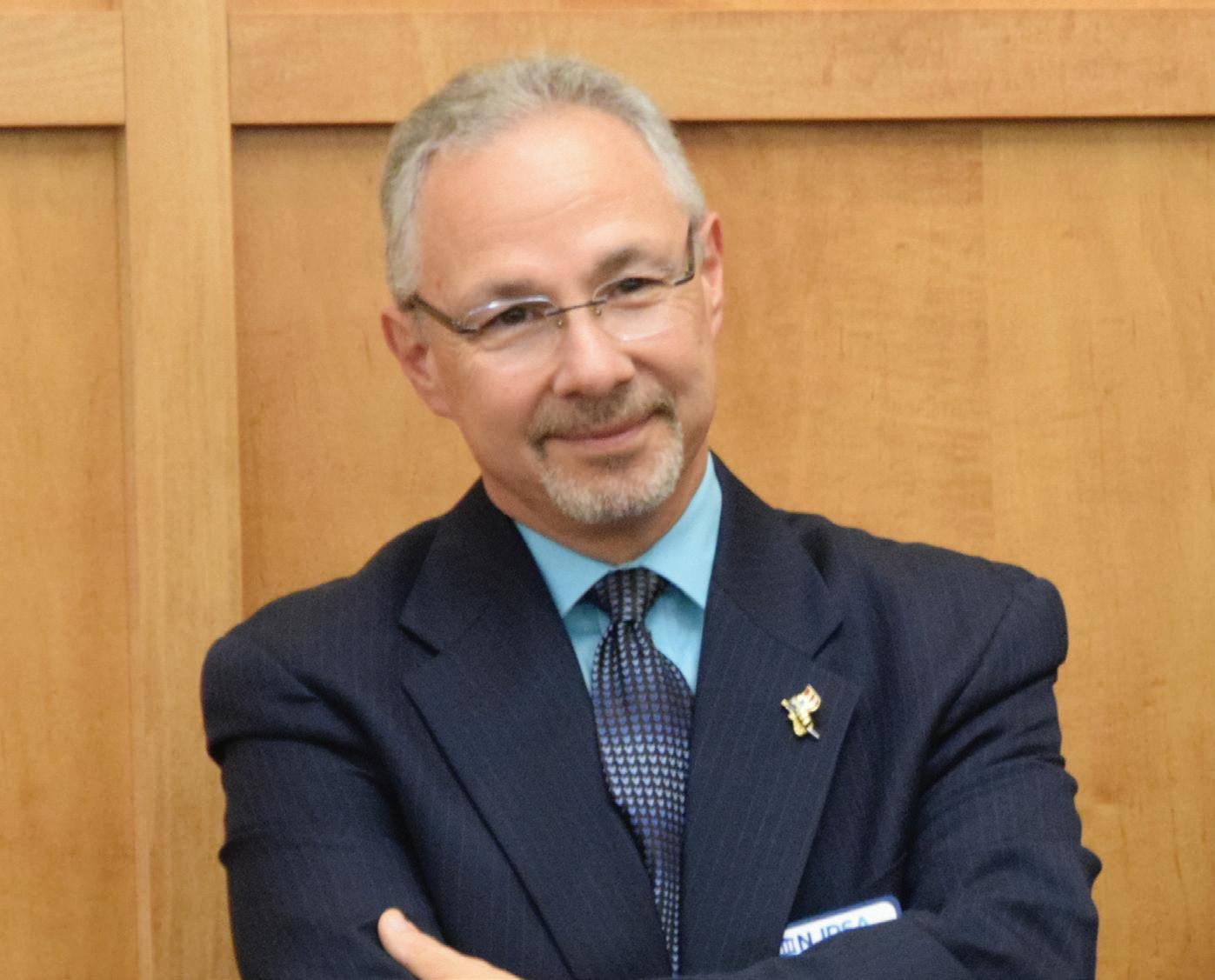
In 2020, the COVID-19 pandemic brought about many changes in the way that NJPSA provides membership services, including retirement. One bright spot of the pandemic has been the way Bob Murphy and his team are now able to meet with members and their spouses virtually. Members no longer need to drive to the NJPSA office if they can’t make the time, and in many cases the member and their spouse are in two different locations. Most recently, evening retirement consultations have been made available via Zoom, in order to be as convenient as we can for our members.
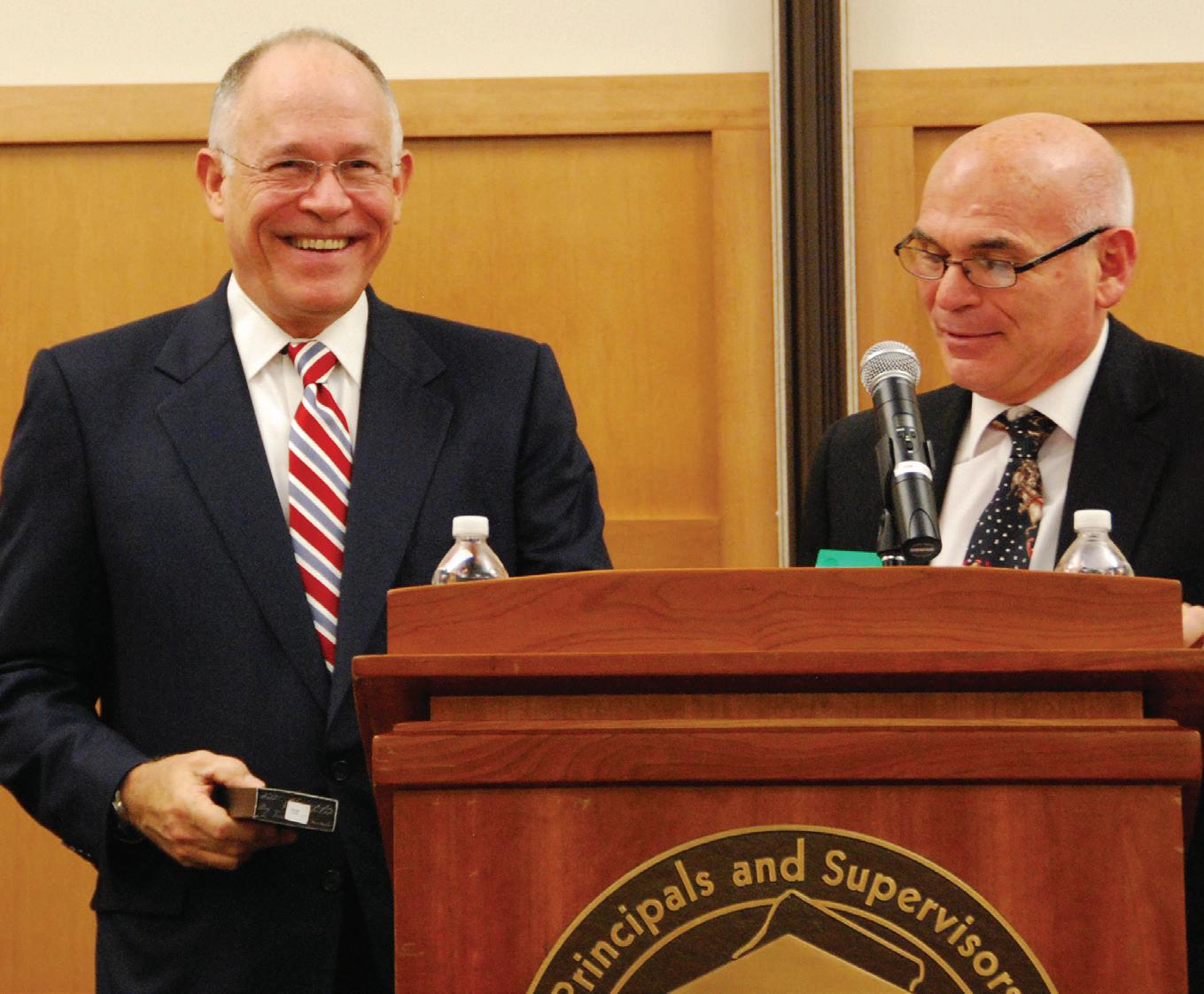
LEADERSHIP PROGRAMS Dedicated to School
Every year, hundreds of jobs become available in New Jersey school districts that require principal or supervisor certification. Many of the talented and skillful leaders who will take on these challenges are currently teachers, directors, or supervisors who have the experience, the desire, the drive, and the ability to be the next generation of educational leaders in our state. While they may have a master’s degree, they do not have a master’s in educational leadership that includes the required certification that they need under state law.
So, where can they go to get the principal and supervisor certification in as little as 12-18 months and not have to get a second master’s degree?
In 2002, Ellie Forster joined the FEA staff as Director of School Leadership Programs and created NJEXCEL (New Jersey Expedited Certification for Educational Leadership), an innovative, non-traditional principal certification program to address the crisis of a shortage of certified principals.
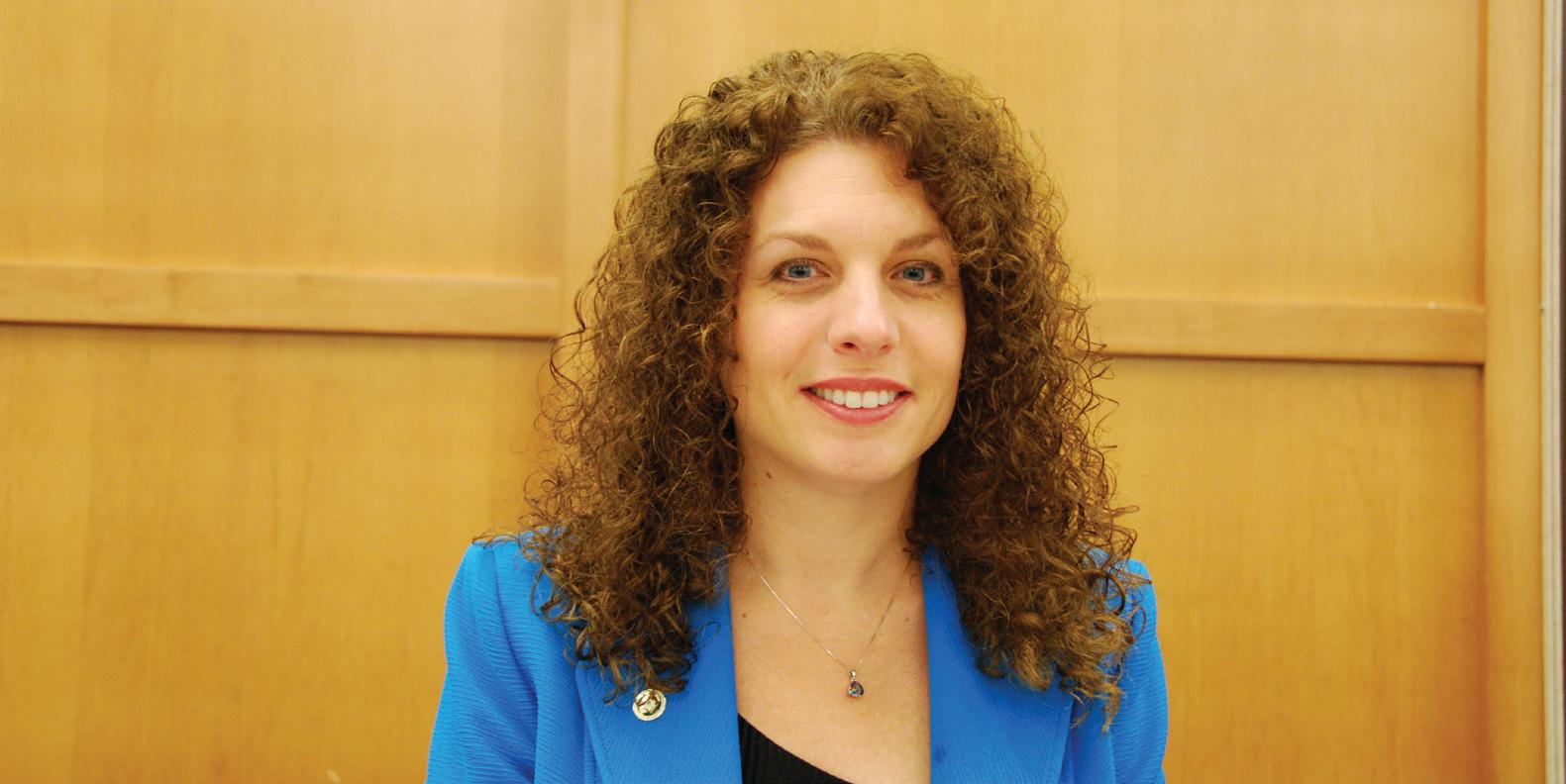
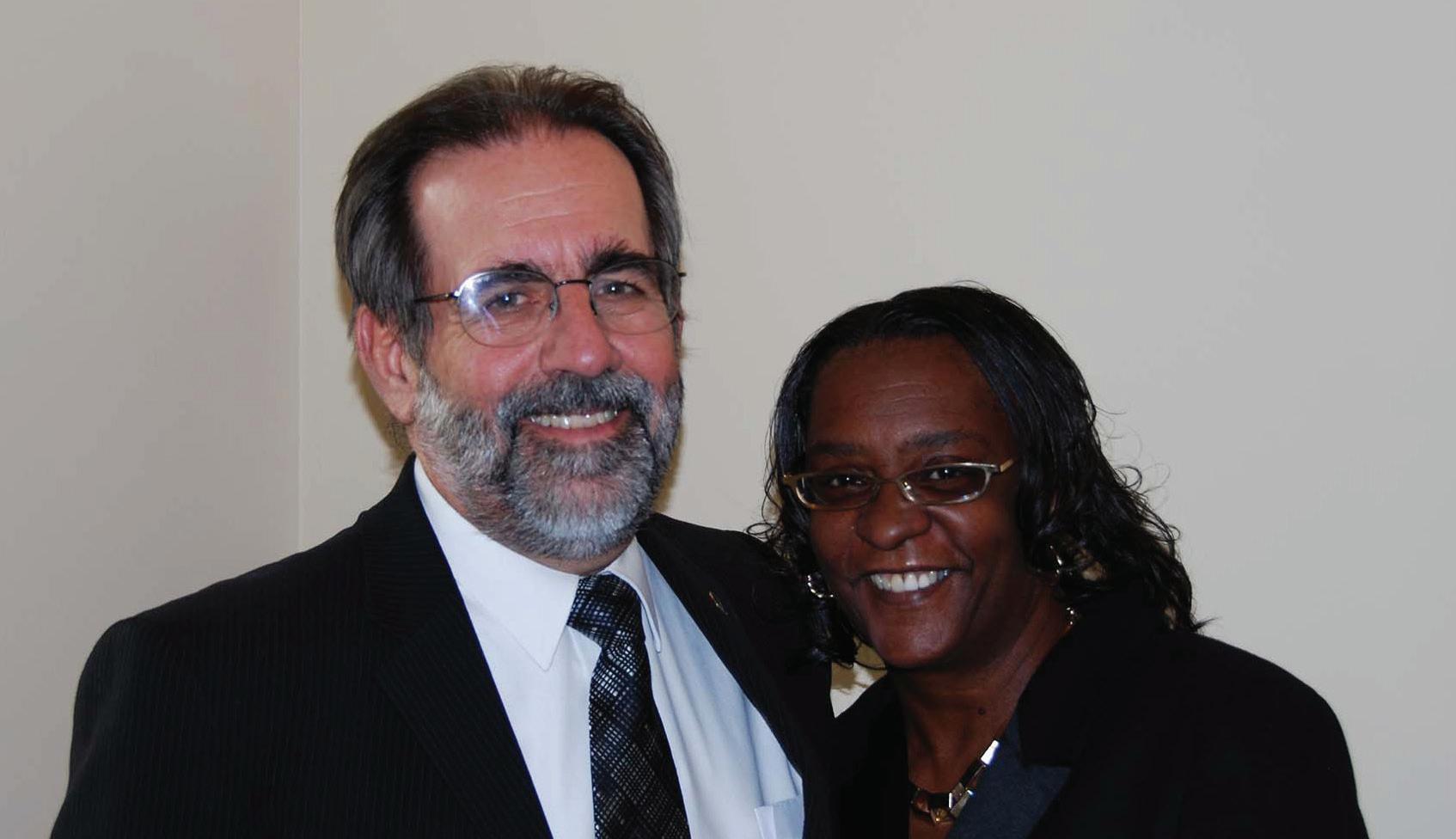
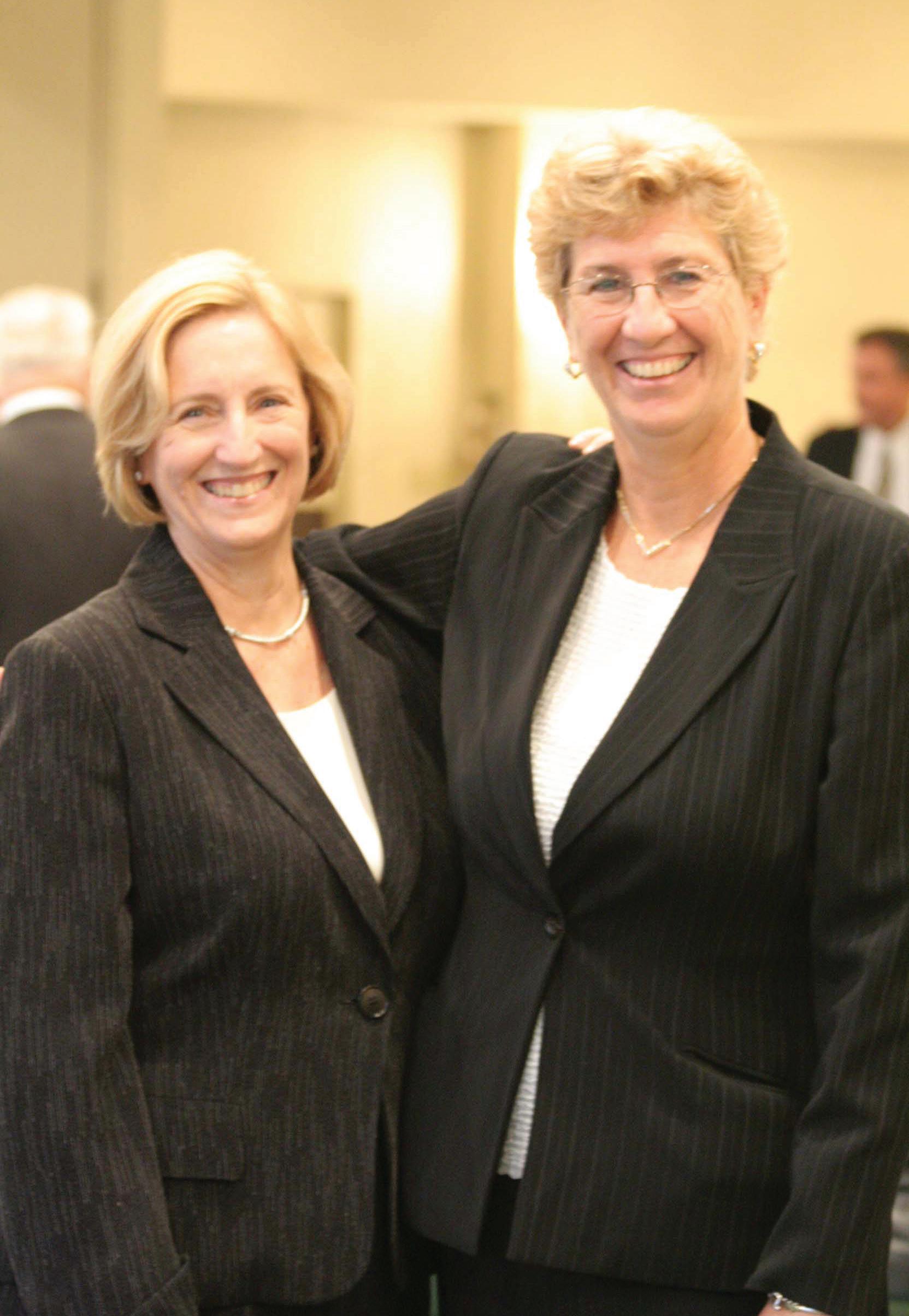
While there were many principal positions available, many educators did not want to go back to a traditional program at a college or university to pursue principal certification.
NJEXCEL was thus conceived and developed to provide a comprehensive, thorough, and applicable program that candidates could complete in an expedited manner and earn their certification in 12 to 18 months, while receiving practical knowledge and experience. Today, the program offers five unique models, taught in regional cohorts, and leads to certification for supervisor, principal, school administrator, director of school counseling services, and teacher leader.
In August 2002, the initial proposal was submitted to NJDOE for NJEXCEL to be approved as a provider for candidates with master’s degrees, supervisor certification, and supervisory experience. This approval was granted in October 2002, and in January 2003, the first cohort began with 41 candidates in what is now Model 1.
In April 2003, NJEXCEL submitted a proposal to NJDOE to expand its program to extend eligibility to teachers and educational specialists with appropriate master’s degrees and at least 10 years of public school teaching experience who are certified supervisors but not currently holding supervisory positions and are not certified as supervisors. This proposal, and its subsequent approval, opened the door for Models 1, 2, and 3.
Frank Palatucci, who served as FEA’s director of School Leadership Programs from 2011 to 2018, was effusive in his praise of the work Ellie Forster did in creating NJEXCEL. “What Ellie put together in 2003, and I don’t say this without thinking twice, is a work of genius, putting together a cohort model. These people work through the program together as partners, so when they land a job, they have this network of people they know,” Palatucci said.
“The one quality that Ellie had was vision. It’s not until you begin to peel back the onion of what she did and try to figure it out and look at it and all of a sudden have that epiphany that, ‘Wow, there it is. There’s the connection.’ It’s amazing.”
Another great advantage to NJEXCEL is that the instructors are not theory-based professors teaching antiquated methods. Classes are taught by today’s school and district leaders who are dealing with the same issues the candidates will see in their schools and districts. They give real life advice about community engagement, what to do in the classroom, how to talk to students and parents, and how to solve issues.
NJEXCEL candidates also tackle an action research project. They identify a problem in their schools, collect data, identify possible solutions, and then actually plan for what these solutions might be. A recent survey revealed that 80 percent of the projects that were completed through NJEXCEL are currently in place being used in a district.
Since its inception in 2003, more than 2,200 candidates have successfully completed the program and more than 1,000 current New Jersey administrators are NJEXCEL alumni.
A separate NJEXCEL model, model 4, is a one-year program that leads to School Administrator Certification, for those who seek the certification to be a superintendent. In fact, many NJEXCEL alumni from models 1, 2, and 3 come back to complete Model 4 in a future year. In most cases, if the candidate is a teacher, he or she will also earn the teacher leader endorsement through this program. Teachers who seek a teacher leader endorsement but do not have a master’s degree can do so through a similar but different NJDOEapproved FEA program called NJTLC, which began in 2020.
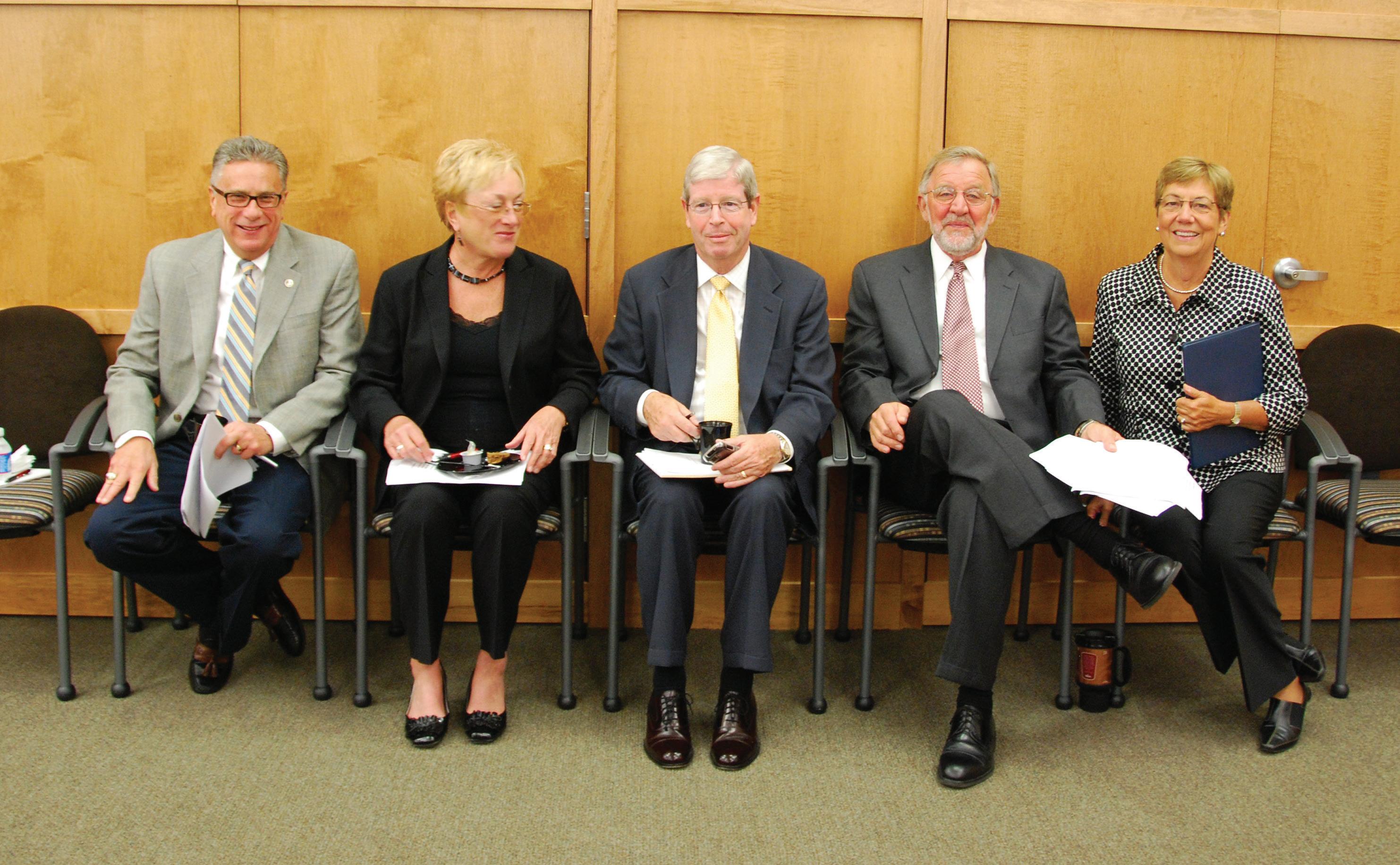
As students were graduating from NJEXCEL and starting their careers as administrators, some reported that poor mentoring was an issue that had to be addressed. Once again, Ellie Forster suggested that this would be a good opportunity for NJPSA and FEA to provide the mentoring across the state. In April 2003, FEA submitted a proposal to NJDOE to “Improve Induction and Retention of New School Leaders in New Jersey.” This proposal presented “a research-based case

for NJDOE approval of an intensive and continuing training program for mentors of new school leaders to address the need for a statewide mechanism that ensures compliance with state code requirements related to mentor training to improve the quality of the mentoring experience, and approval for a comprehensive and coherent support system that coordinates standards-based mentoring and continuing jobembedded leadership development of new school leaders. The intent of the proposal was to support state initiatives to improve retention, continuing professional development, and performance of new school leaders.”
In May 2005, after a limited pilot program, the state and the FEA signed a Memorandum of Understanding allowing the FEA to train all mentors and to implement the new process for standard principal certification for all new school leaders using the NJL2L model. Thus NJL2L replaced the state’s own induction program, which was thought to be ineffective. Since implementation in July 2005, 428 mentors have been trained through NJL2L and 1,328 new school leaders have participated in the program. Currently, 518 (39%) of these NJL2L participants are employed in high-need districts.
Fast facts about NJEXCEL and

In September 2003, FEA was awarded “The 3Rs for School Leadership: Recruit, Retain and Revitalize” SLP Grant. The proposed project was designed to improve student achievement in nine highneed LEAs in New Jersey by improving recruitment, preparation, retention, professional development, and school leadership practices of principals and assistant principals.
June 2004 Selection of NJEXCEL was Selected as a “Case Study Site” by “Learning Innovations at West Ed” for “Innovative Approaches to Alternative Recruitment and Preparation of Educational Leaders and Identifying and Learning from Successful Practices.”
In December 2004 NJEXCEL was selected by the US Department of Education “Office of Innovation and Improvement” for inclusion in its publication “Innovation Pathways to School Leadership” as one of six educational leadership programs that have an “unrelenting commitment to program rigor and quality; a clear vision of strong school leadership; a cohort structure that encourages candidates to support one another throughout their careers; and a culture of continuous improvement.
In April 2005-2008 The SLP Grant: “The 3Rs Project for School Leadership: Recruit, Retain and Revitalize” was renewed. The proposed project utilized a systemic approach to improving school leadership in four urban high-need LEAs in New Jersey through continued development, enhancement, expansion, evaluation and study, dissemination, and replication of The 3Rs for School Leadership Model – a seamless continuum of interrelated researchbased strategies and program models that are designed to systematically improve school leader recruitment and preparation, induction and retention, and continuing professional development.
November 2005 NJPSA Testimony before State Board of Education on “Professional Licensure and Standards.” Recommendations focused on expansion of administrative certification requirements and alternative and non-traditional programs.
Notable, as well, is the fact that the NJL2L program is selffunded, with no financial support from the state. FEA delivers the program without additional costs to the NJDOE. The fees paid by the residents include the mentor stipend of $1,500 and another $300 for program maintenance. The program fees are structured for the program to be self-sustaining, not profitgenerating.
The program requirements for face-to-face contact with a trained mentor, Peer Support Groups, and reflective practice guided by the Explorations have the potential to significantly support new school leaders during the critical first years on the job and have the potential to infuse the school leadership ranks in New Jersey with reflective, research-based practitioners. One of the notable impacts of NJL2L is its encouragement and development of reflective leadership practices. Through the Explorations, new school leaders make explicit connections between what they see in their schools and communities to the New Jersey Professional Standards for School Leaders. Another impact of the Leaders to Leaders program is the development of personal and professional networks through the Peer Support Groups, where new school leaders can make professional contacts and find others to rely upon.
May 2007 FEA Testimony before State Board of Education on “Professional Licensure and Standards” to strengthen the Code in both certification requirements and school leader preparation programs in the following areas: (1) include rigorous criteria and procedures for NJDOE review and approval of non-traditional leadership preparation programs; (2) state certifications in leadership areas are issued only upon completion of state-approved programs at the post-graduate levels; (3) all state-approves school leader certification programs require a minimum of a master’s degree for admission; (4) clarify the appropriate “recognized leadership and management fields” that would qualify individuals with a master’s degree for principal certification, and require that those who have no P-12 educational experience must complete a State-approved postgraduate program leading to principal certification.”
July 2007 Supplemental Funding Proposal for 2005 SLP Grant for “The 3Rs for School Leadership: Recruit, Retain, and Revitalize.” Funding would support an “External Evaluation and Impact Study” of the NJEXCEL and NJL2L Programs to determine the extent to which the 2005-2008 SLP Project met its goals and objectives to improve recruitment, preparation, certification, appointment and performance of highly qualified principals and assistant principals in high-need schools.
FEA Directors of School Leadership Programs
NJEXCEL, NJL2L, and NJTLC
2003 - 2010 - Ellie Forster
2010 - 2011 - Mary Reece
2011 - 2018 - Frank Palatucci
2018 - Present - Angelina Martino Finnegan
NJL2L
40 YEARS OF NJPSA PRESIDENTS

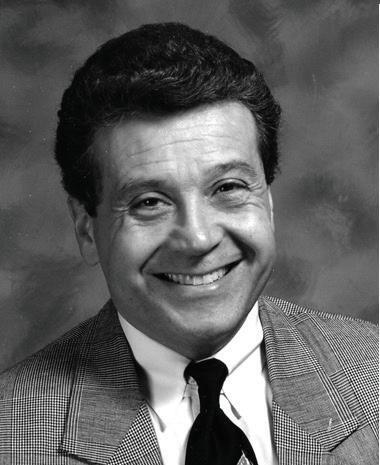
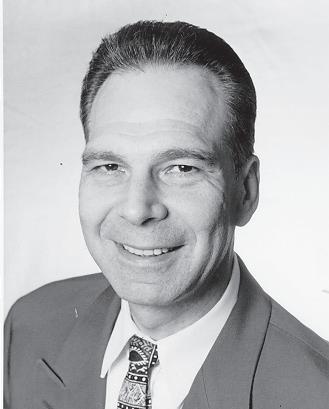
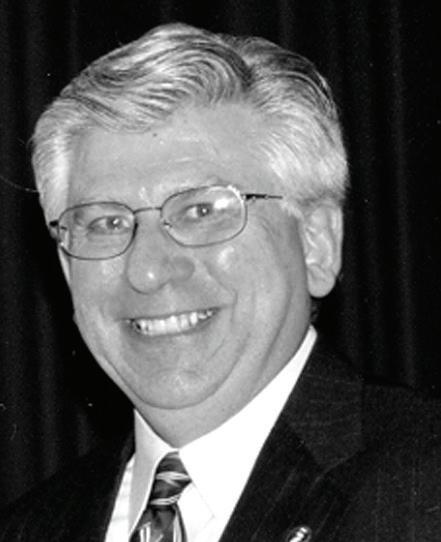
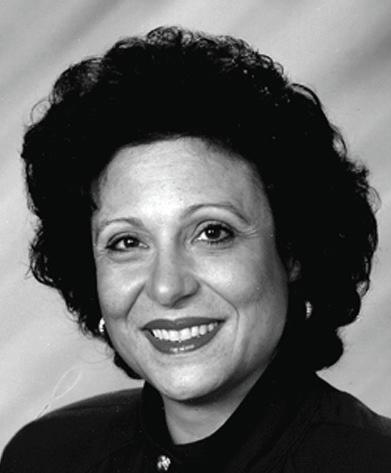
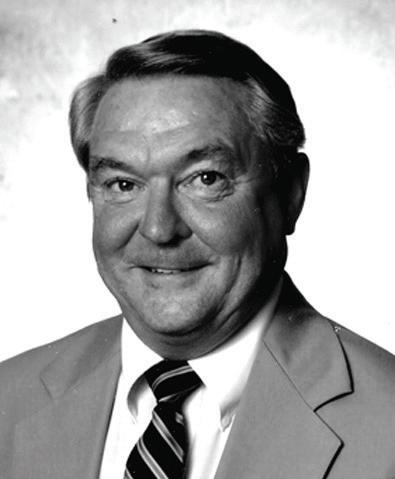


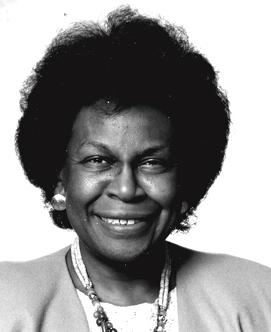
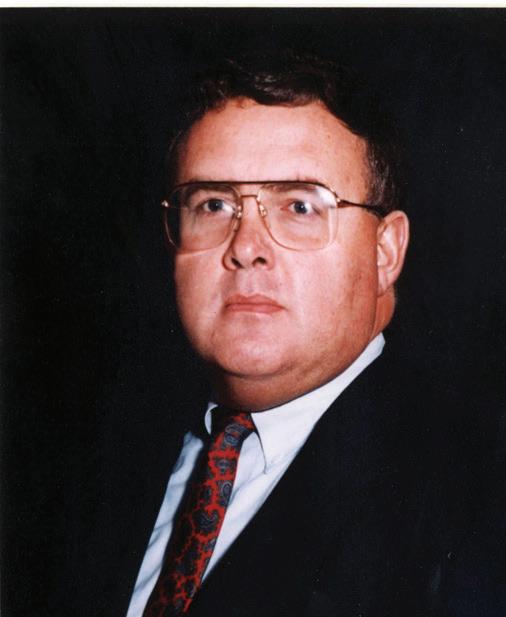
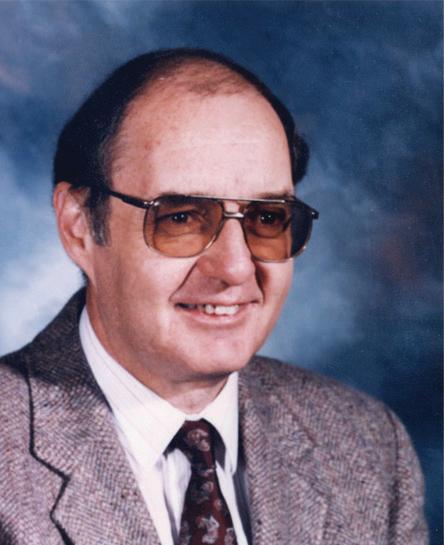
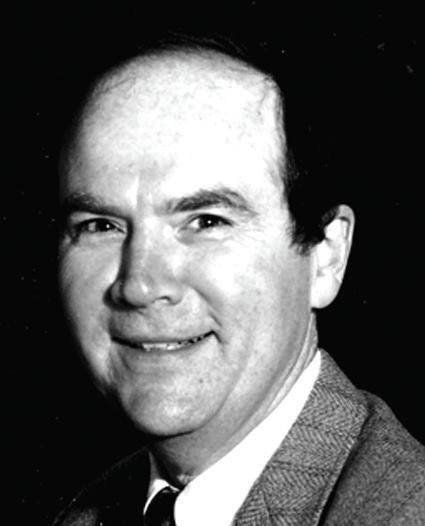

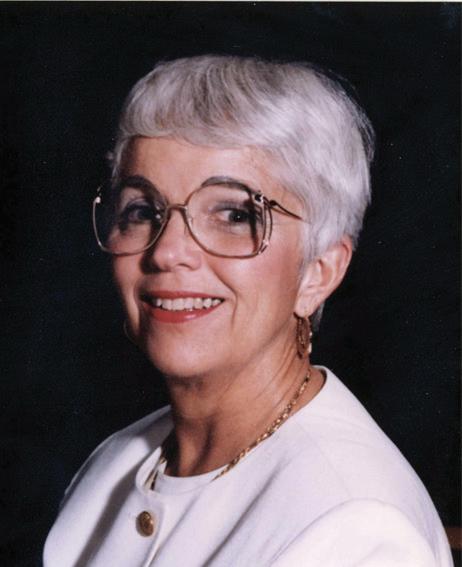
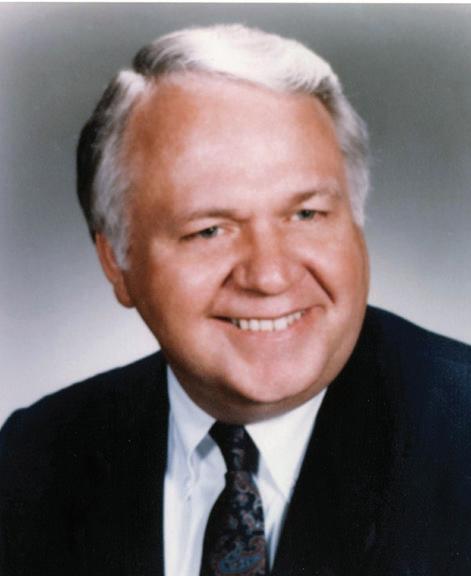
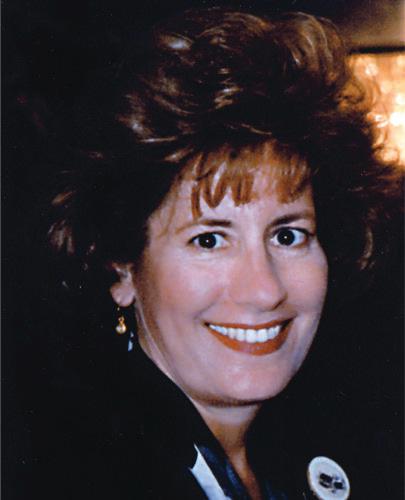
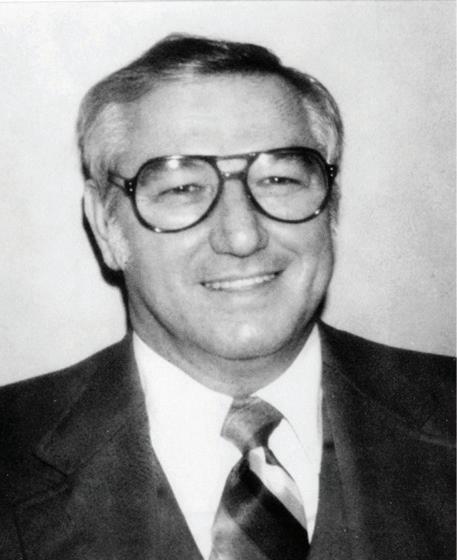
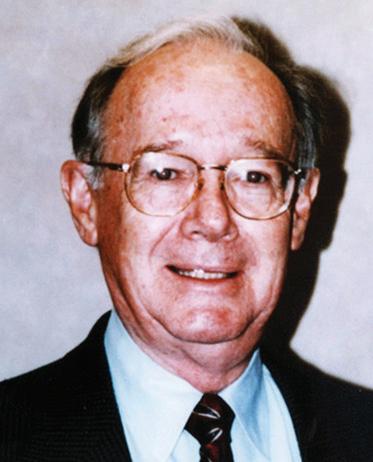
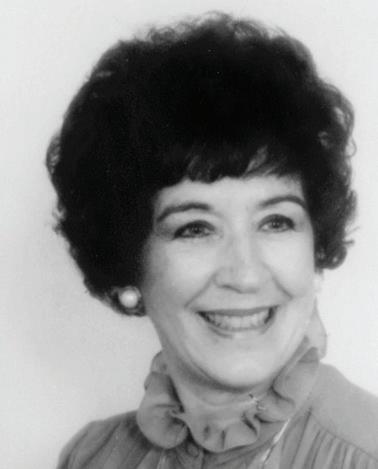
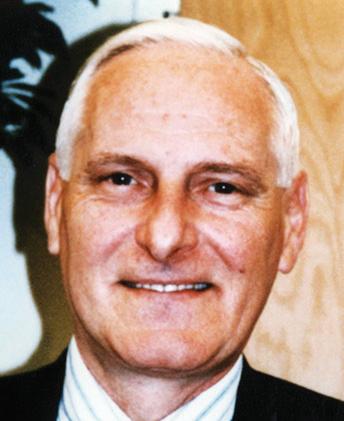
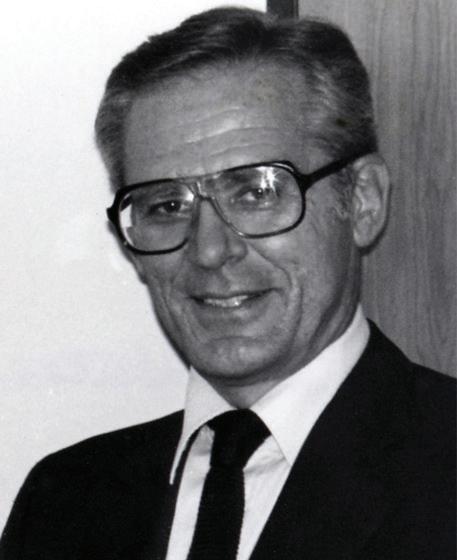 Ronald Watson 1981 - 1982
Carl Kumpf 1986 - 1987
Vi Thompson 1982 - 1983
Ed Watts 1983 - 1984
Russell Stanley 1984 - 1985
JoAnn Bartoletti 1985 - 1986
Harvey Casey 1987 - 1988
Arthur Ranges 1988 - 1989
Robert Petix, Ed.D. 1989 - 1990
Ted Arnold 1990 - 1991
Barbara Williams 1993 - 1994
James Sanders 1994 - 1995
Charles Stein 1995 - 1996
Thomas Niland 1996 - 1997
Michael A. Wanko, Ph.D. 2001 - 2002
Joseph A. Pizza 2002 - 2003
Dolores Szymanski, Ed.D. 1999 - 2000
Louis Della Barca 2000 - 2001
Ronald Watson 1981 - 1982
Carl Kumpf 1986 - 1987
Vi Thompson 1982 - 1983
Ed Watts 1983 - 1984
Russell Stanley 1984 - 1985
JoAnn Bartoletti 1985 - 1986
Harvey Casey 1987 - 1988
Arthur Ranges 1988 - 1989
Robert Petix, Ed.D. 1989 - 1990
Ted Arnold 1990 - 1991
Barbara Williams 1993 - 1994
James Sanders 1994 - 1995
Charles Stein 1995 - 1996
Thomas Niland 1996 - 1997
Michael A. Wanko, Ph.D. 2001 - 2002
Joseph A. Pizza 2002 - 2003
Dolores Szymanski, Ed.D. 1999 - 2000
Louis Della Barca 2000 - 2001
“The single biggest way to impact an organization is to focus on leadership development. There is almost no limit to the potential of an organization that recruits good people, raises them up as leaders, and continually develops them.”
John Maxwell
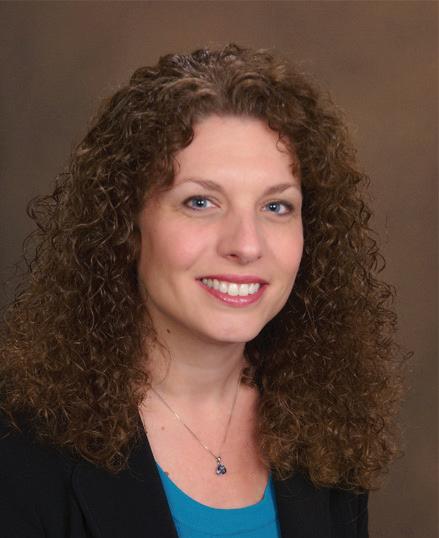
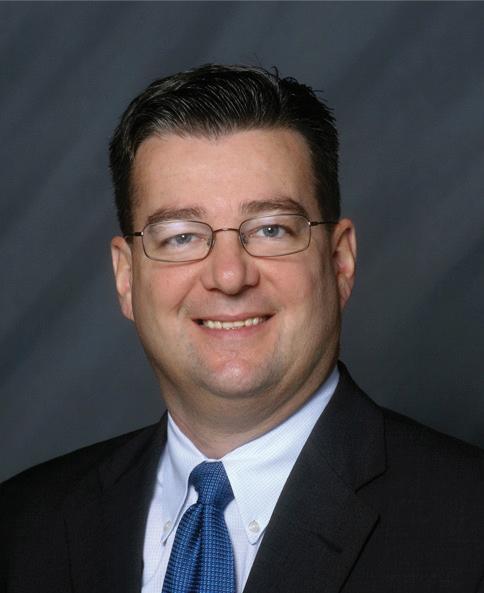
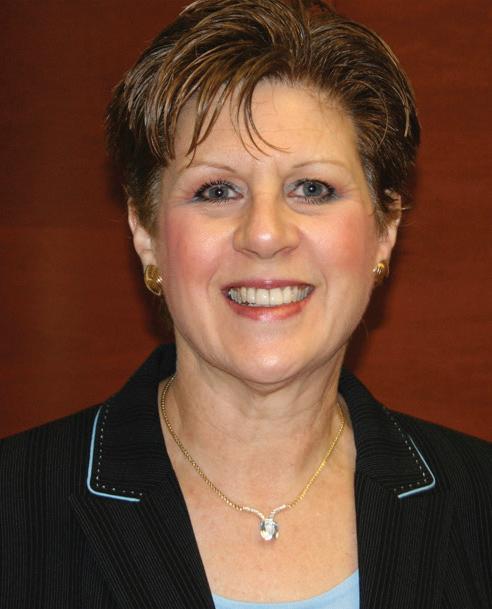
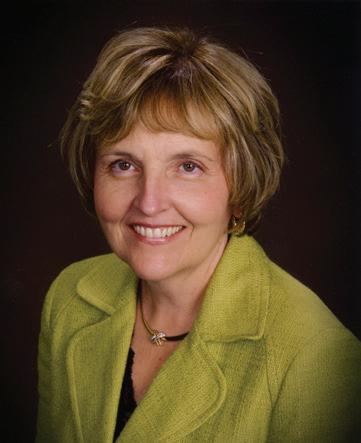
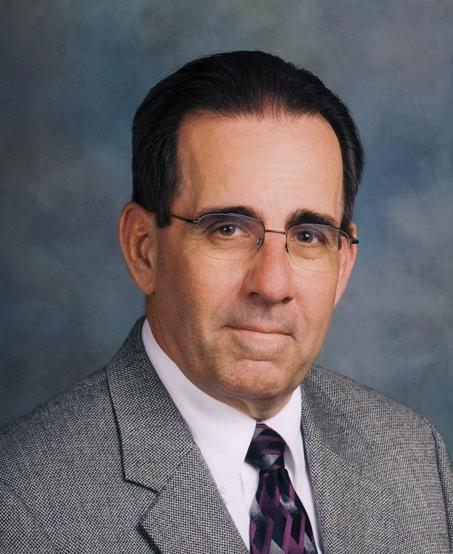

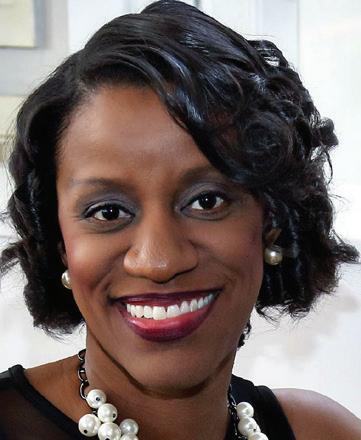
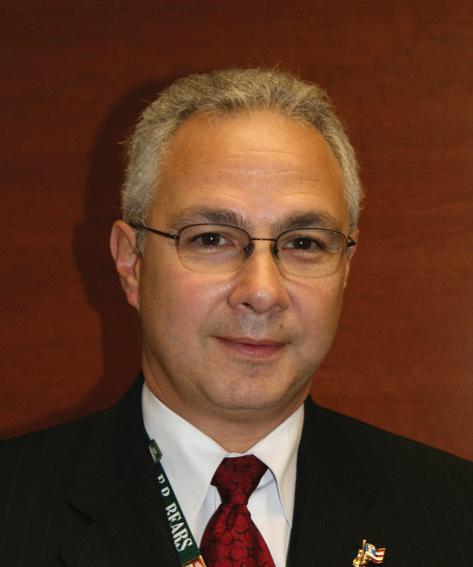
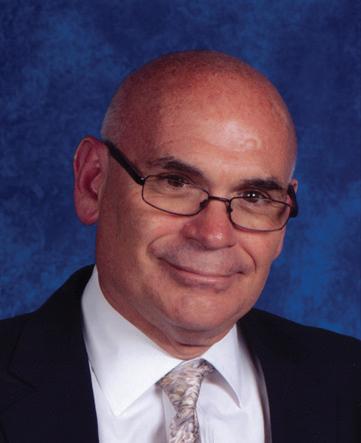
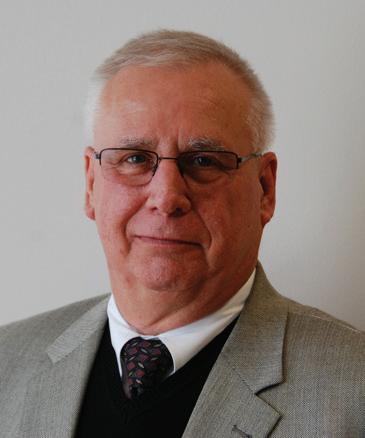
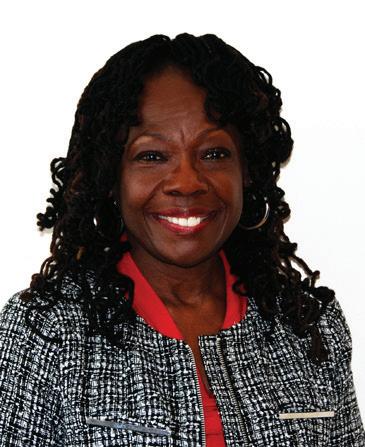
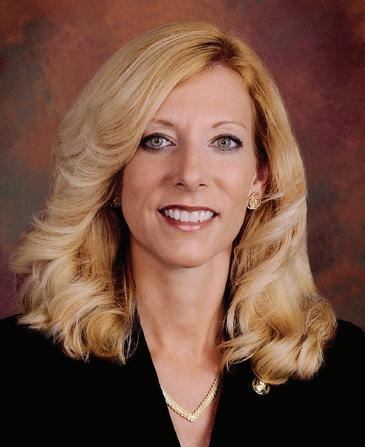
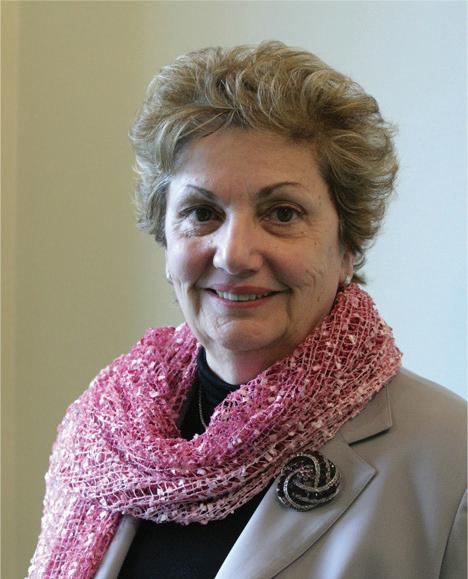 Angelina M. Finnegan 2010 - 2011
Timothy O’Halloran 2005 - 2006
Maria Corso 2006 - 2007
Patricia Wright 2008 - 2009
Frank Palatucci 2009 - 2010
Nicole Moore 2016 - 2017
Robert Murphy 2011 - 2012
Emil Carafa 2012 - 2013
John Hahola 2013 - 2014
Fidelia Sturdivant 2014 - 2015
Amy Stella, Ed.D. 2015 - 2016
Elizabeth Panella 2007 - 2008
Angelina M. Finnegan 2010 - 2011
Timothy O’Halloran 2005 - 2006
Maria Corso 2006 - 2007
Patricia Wright 2008 - 2009
Frank Palatucci 2009 - 2010
Nicole Moore 2016 - 2017
Robert Murphy 2011 - 2012
Emil Carafa 2012 - 2013
John Hahola 2013 - 2014
Fidelia Sturdivant 2014 - 2015
Amy Stella, Ed.D. 2015 - 2016
Elizabeth Panella 2007 - 2008
A Word of Thanks to the NJPSA Team Looking Back and Looking Forward

Even on its hardest days, education is a joyful field, replete with promise, hope, and the knowledge that potential is unlimited. Each child entrusted to us is a gift, and each moment of discovery brought to fruition by a caring educator lets that child’s heart beat with the words, “I can. I will. I must.”
In the four decades that have passed since the New Jersey Principals and Supervisors Association came to be as the PK-12 organization that exists today, the landscape of education has changed both subtly and drastically, most extremely from the impact of COVID-19. NJPSA has been at the center, helping school leaders navigate all of these changes with forethought and efficacy, and has served as a nexus point for the professional support needed to allow New Jersey’s principals, assistant and vice principals, supervisors, and directors to do their work confidently, bolstered by an association that truly understands and has lived the nuances
of educational leadership. From aspiring through retiring membership services to immediate legal support, from advocacy on legislation and administrative code to contract negotiations and field services, NJPSA has provided the services that allow educational leaders to do their best work with the fortitude that comes from knowing they are not alone.
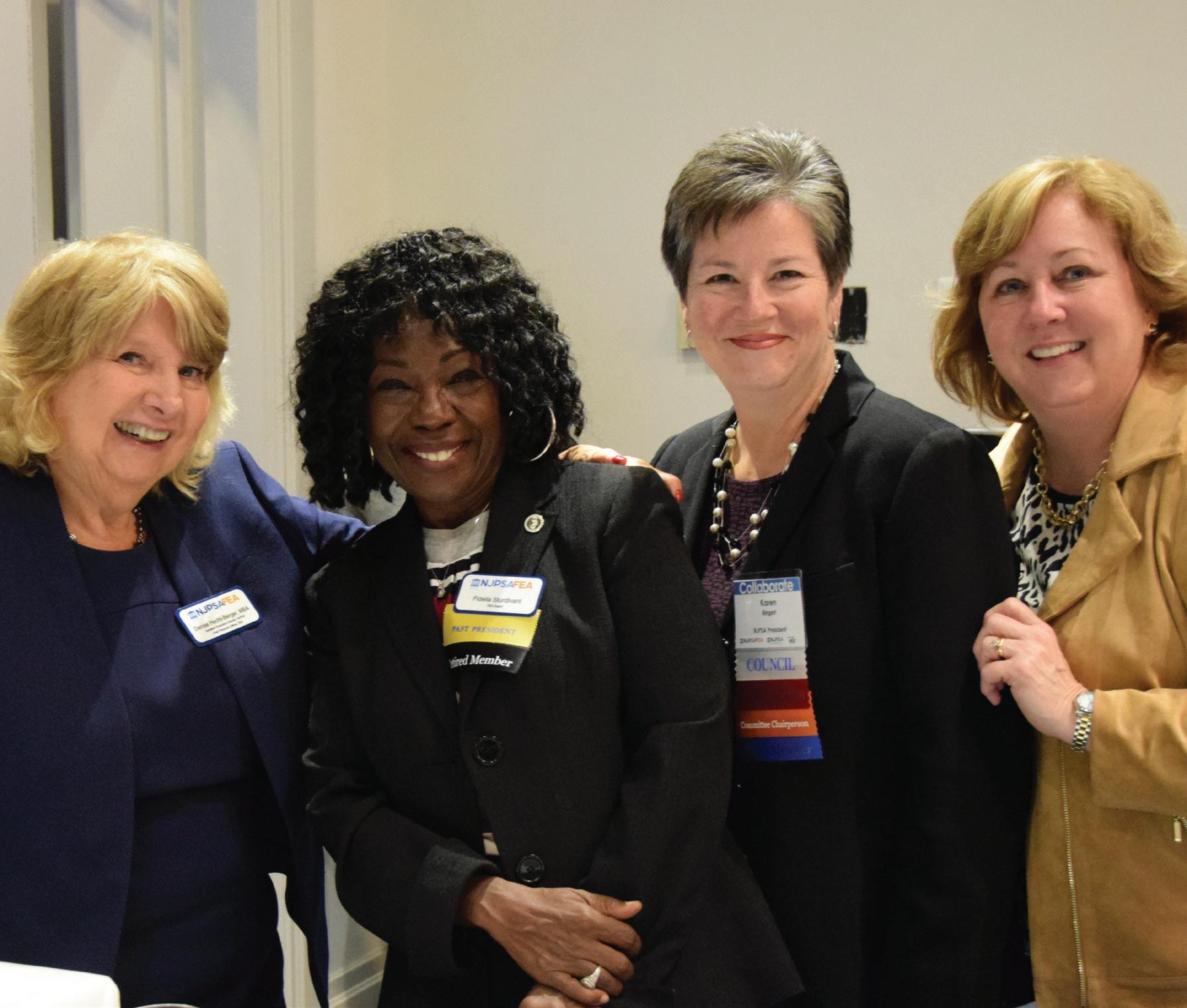
Through the Foundation for Educational Administration (FEA), NJPSA has been the premier provider of professional learning for educational leaders in the state, helping to shape the future of New Jersey education. With a deeply held belief in equity, access, and opportunity for all students and with the knowledge that professional learning must be deep, meaningful, and, most importantly, applicable in the real world of public schools, NJPSA/FEA has been the go-to resource for school leaders for legal training, pedagogical best practices, and surviving the unimaginable during an actual pandemic.
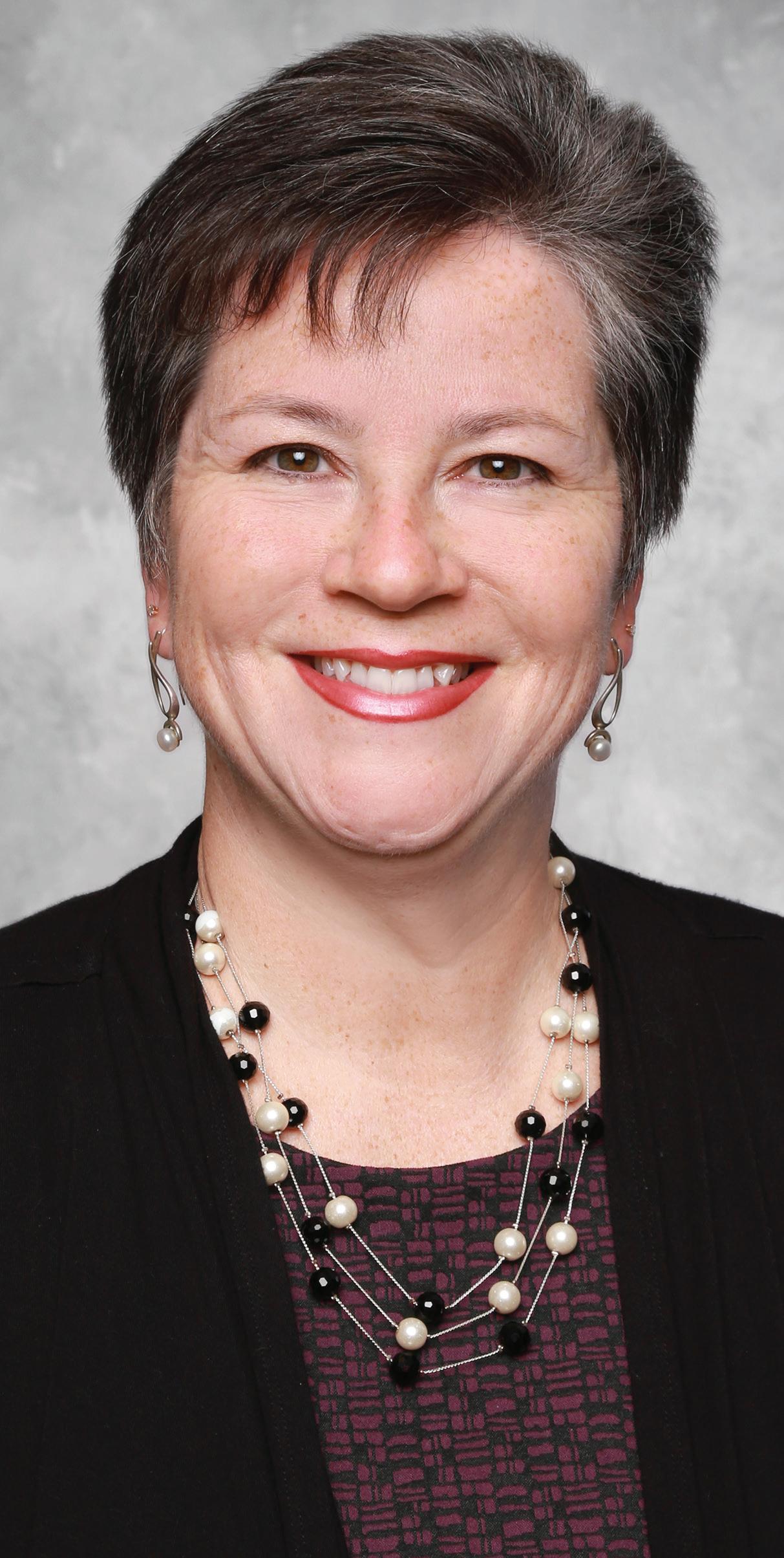
KAREN BINGERT
Executive Director 2021 to Present
As we celebrate and honor 40 years supporting the educational leaders of New Jersey, we must thank our incredible staff, past and present, who is a small but incredibly mighty group, and our former executive directors, Henry Miller, JoAnn Bartoletti, and Patricia Wright, for their passion, innovation, and vision. Our Board of Directors and past presidents have added to their endless lists of priorities the time needed to guide and support the association, providing meaningful representation on current issues with an eye to what NJPSA can do next. Thank you to our members for entrusting us with their personal and professional well-being and for allowing us to serve as their trusted partners in the important and fulfilling world of education.

The New Jersey Principals and Supervisors Association, more than anything else, has been fortunate to serve tens of thousands of good people, kind and hardworking leaders, champions for their staff and community, and reflective and forward-thinking educators charged with creating the learning environments that guide New Jersey’s students from childhood to adulthood, ready for whatever the world has in store for them. With NJPSA, its incredible staff, and its dedication to always moving New Jersey education forward, we have spent 40 years helping our members understand their own goals, expand their own minds, and know that there is nothing more important than what they do in the service of children, hearing in the beating of their own hearts, “I can. I will. I must.”
Thank you to every NJPSA member who has served in this noble profession since our founding in 1981. Thank you for all you have done and continue to do for our students, staff, and communities. Thank you for keeping this phenomenal organization strong, vibrant, supportive, and growing. Thank you for letting the NJPSA heartbeat resonate throughout New Jersey… “We can. We will. We must.” And we will continue to do so. Here’s to the next 40 years!
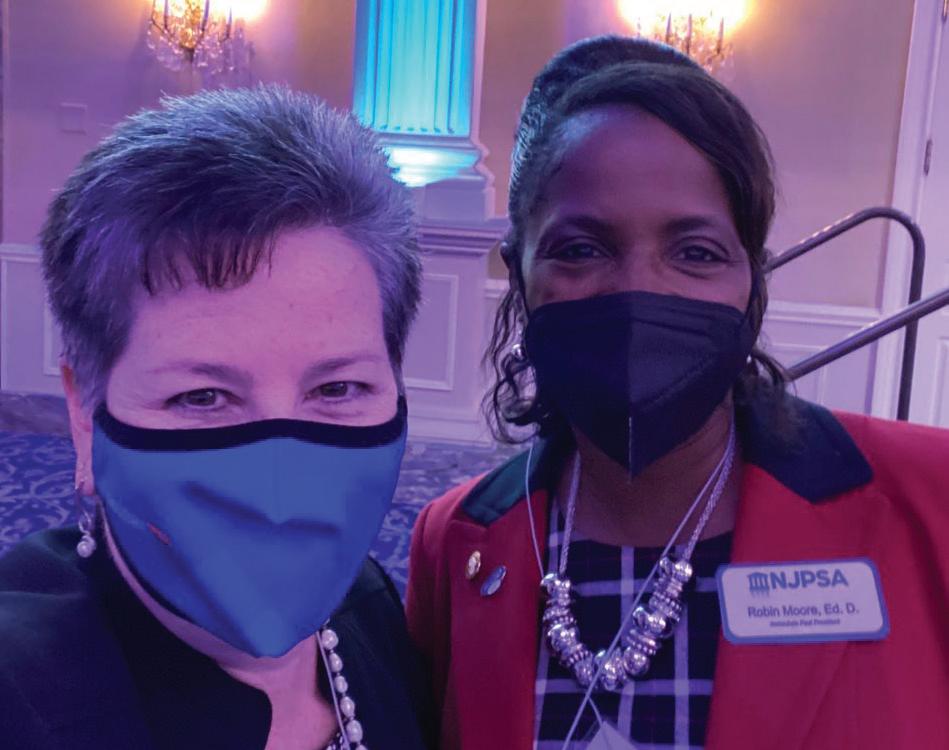 Karen A. Bingert
Karen A. Bingert
Thank you for letting the NJPSA heartbeat resonate throughout New Jersey . . .
“We can. We will. We must.”
Thank you to all NJPSA board and council members, staff, instructors, facilitators, mentors, coaches, volunteers, and especially our members and friends for 40 years of service and excellence!
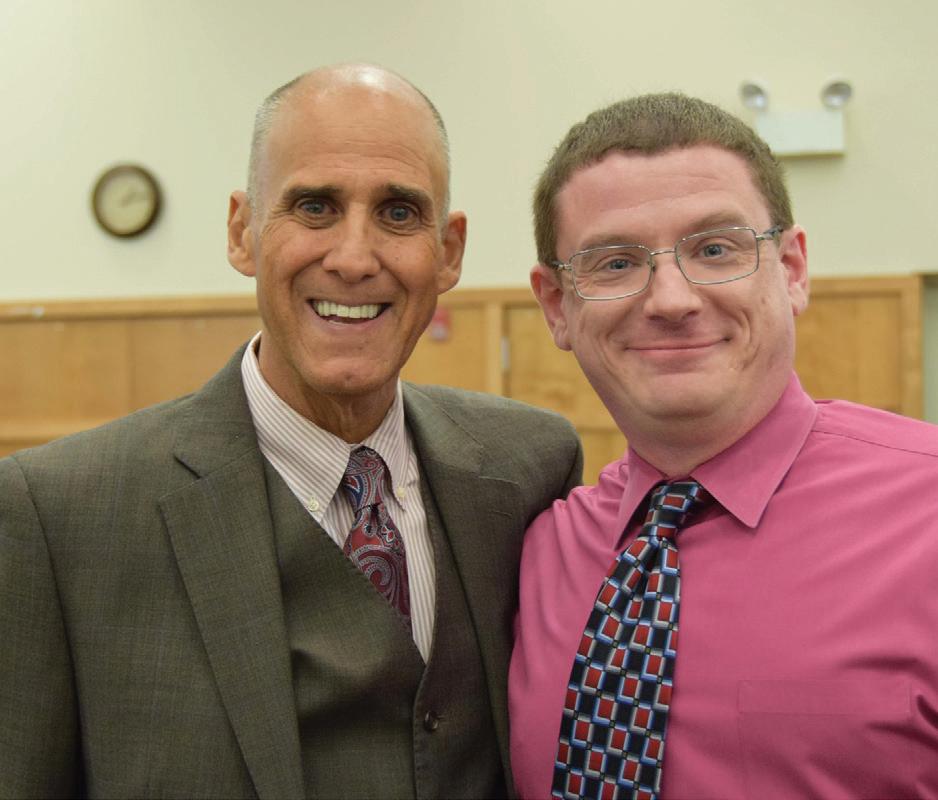


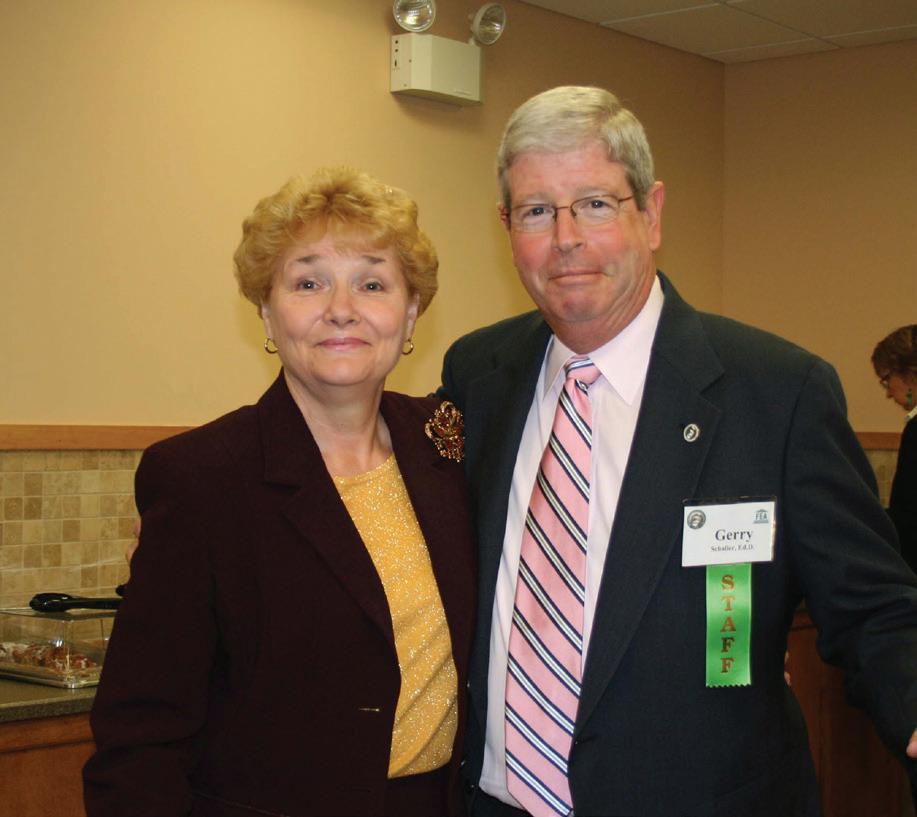
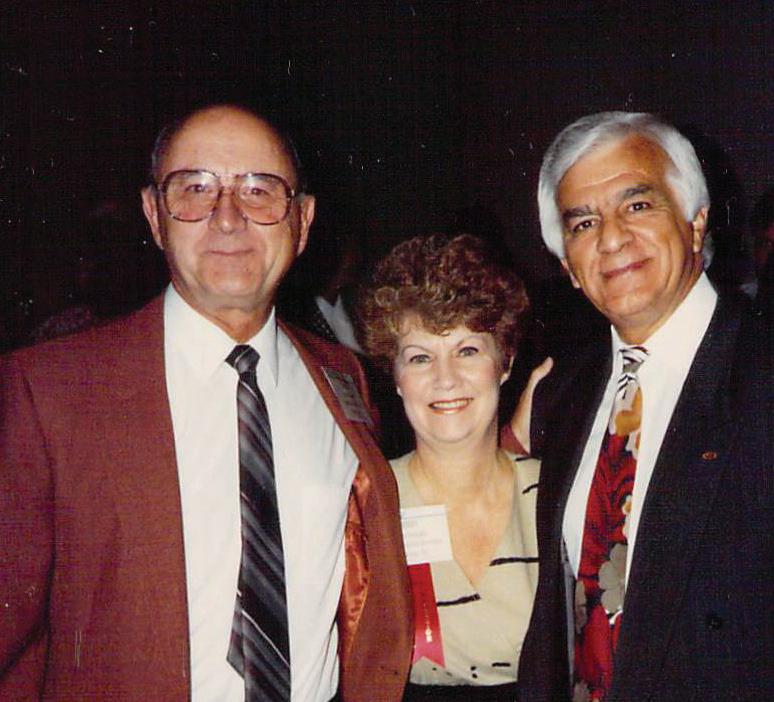
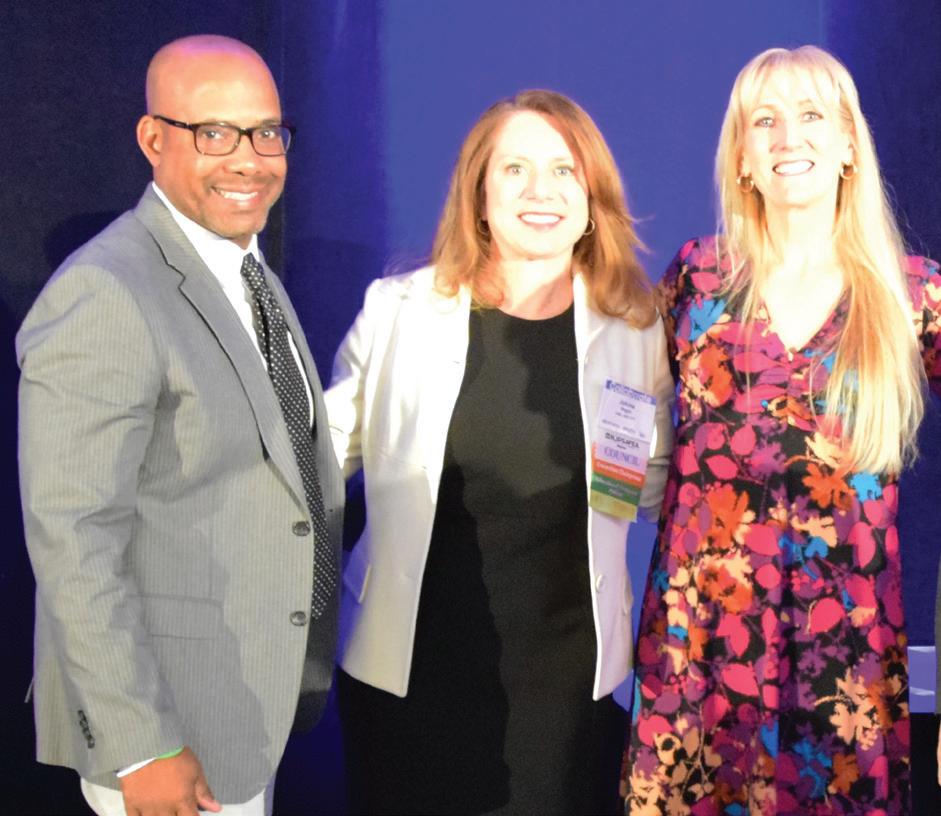
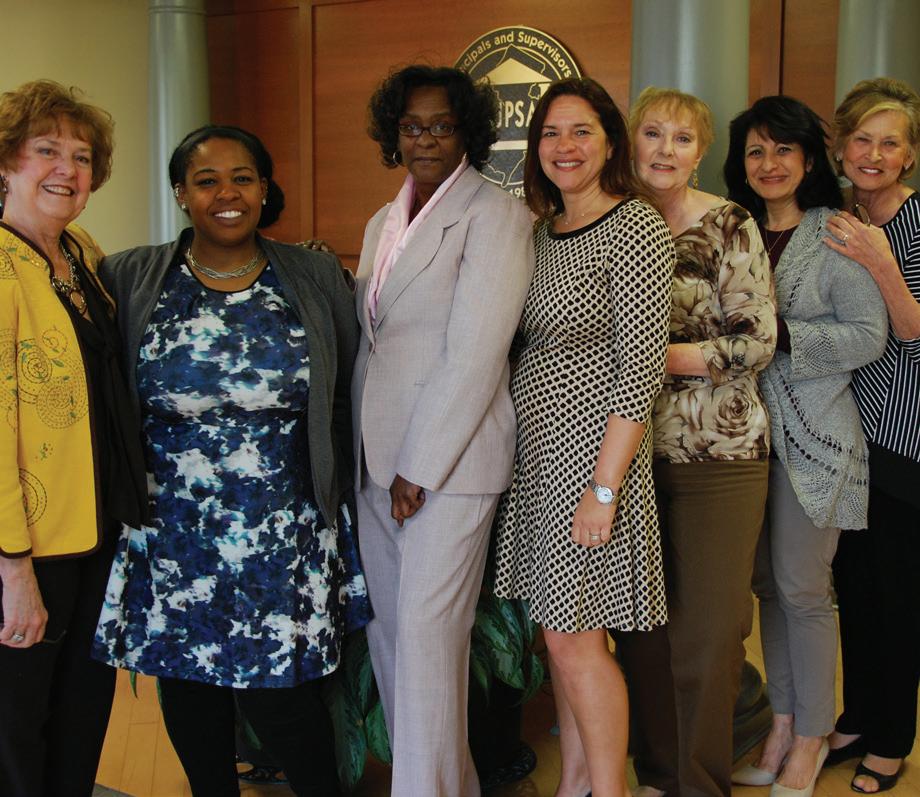
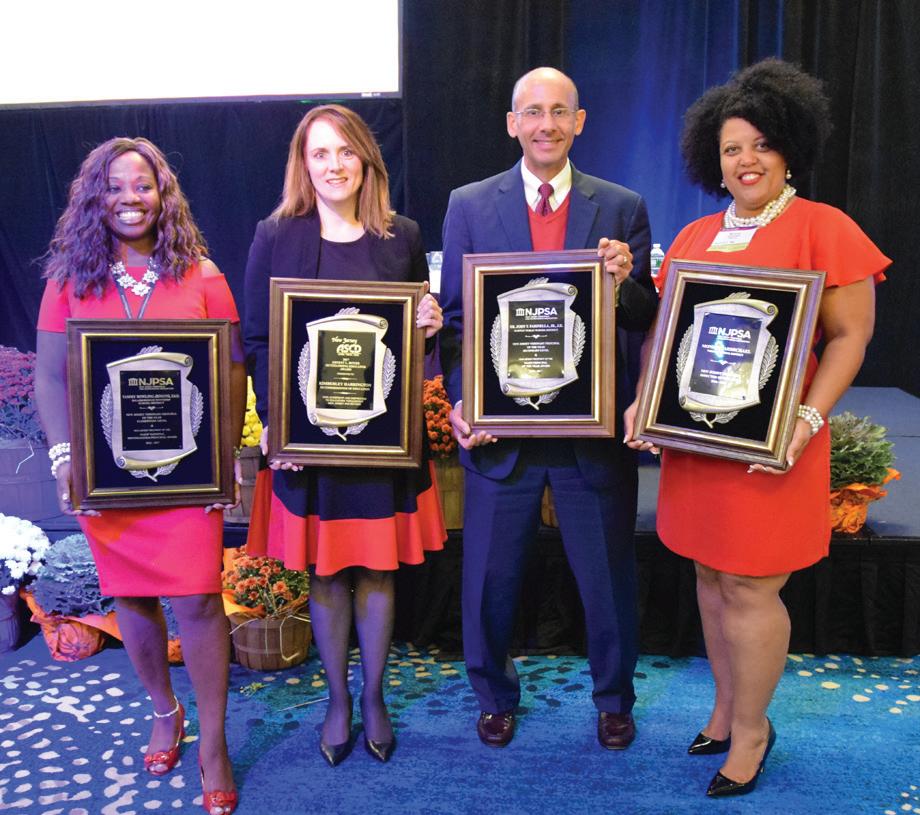
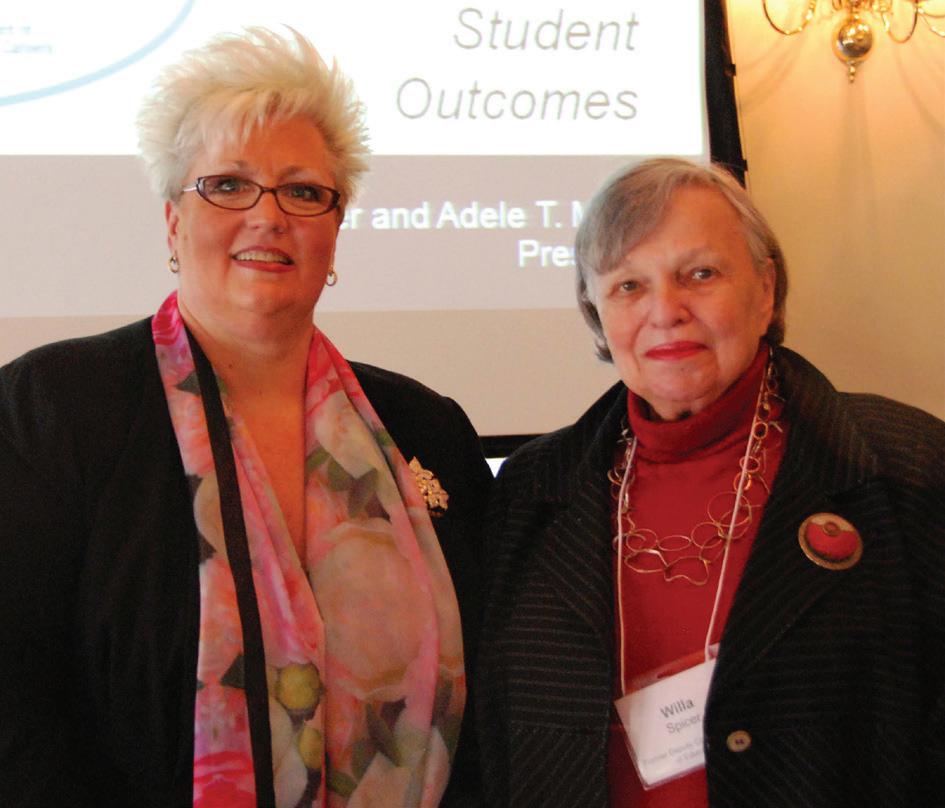
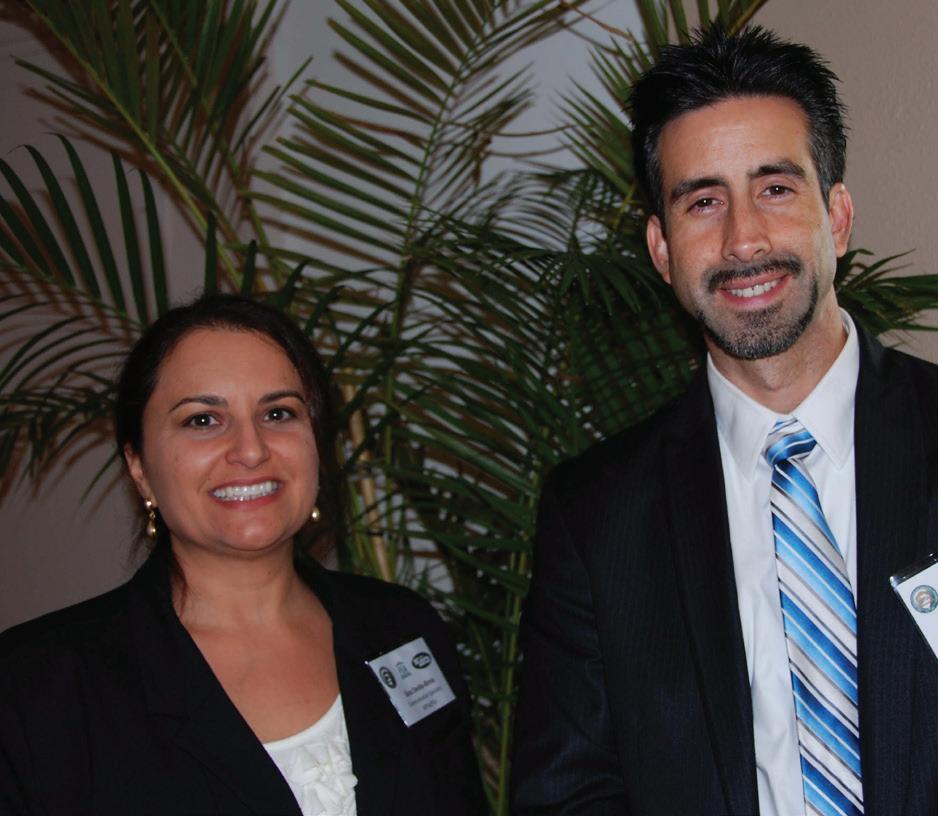
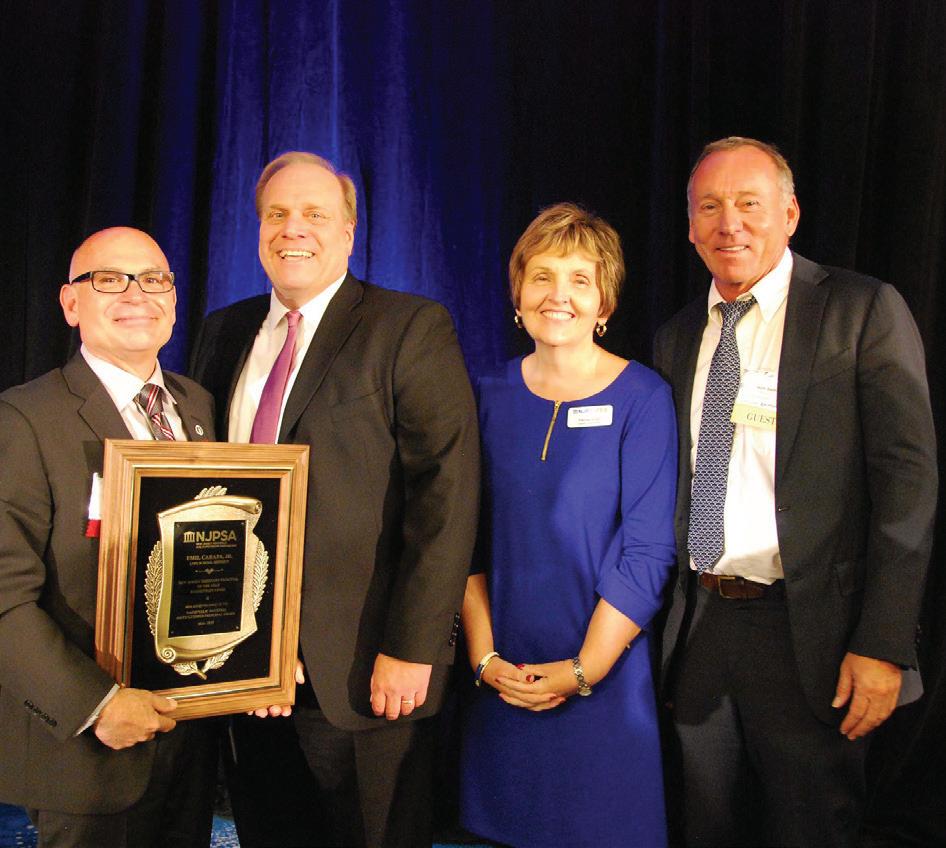
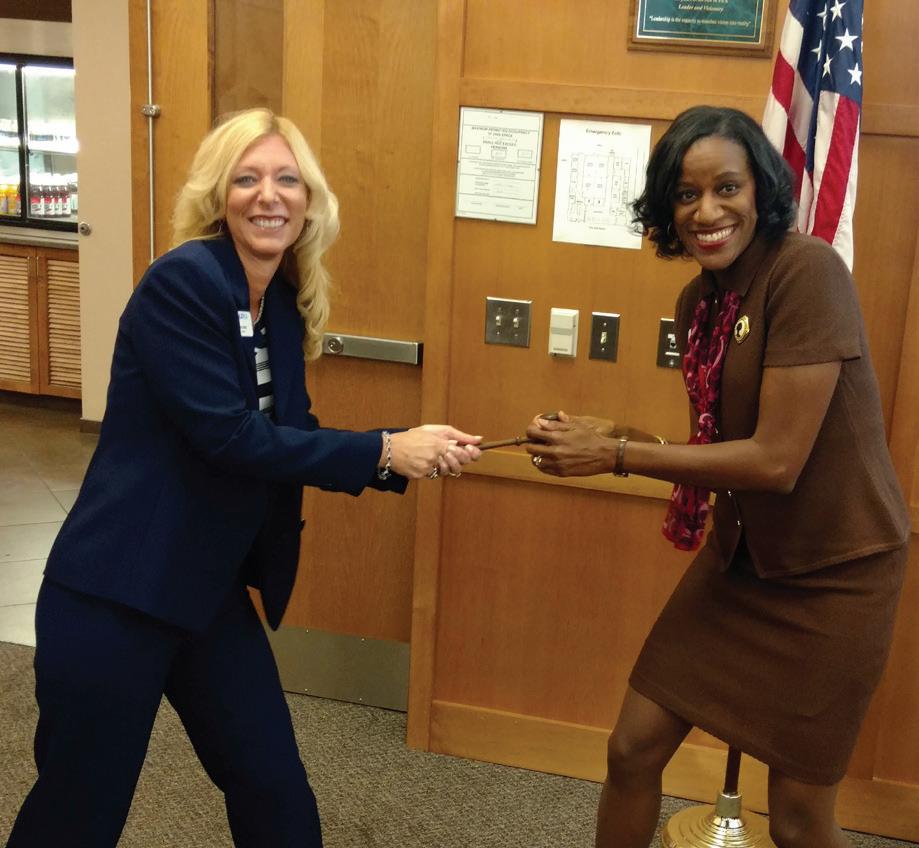
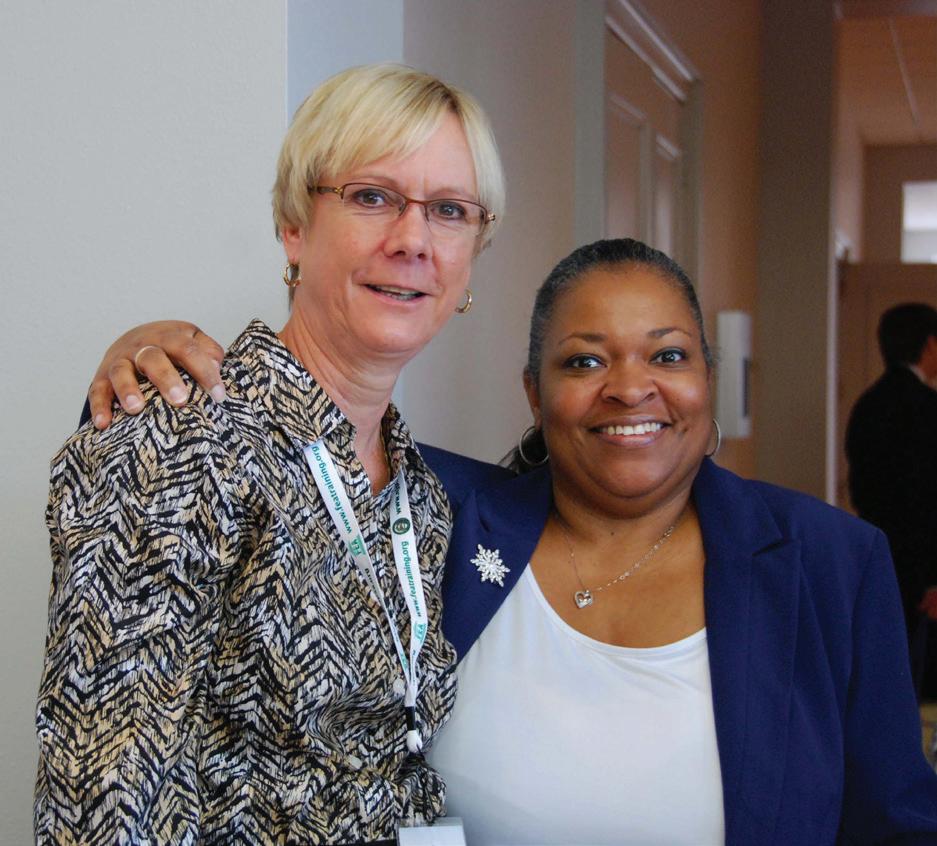






















































































































 Pat Wright NJPSA Executive Director 2012 - 2021
Pat Wright NJPSA Executive Director 2012 - 2021


















































































 Pat Wright retires, and Karen Bingert is named Executive Director of NJPSA. Rooms A,B,C,D of the FEA Conference Center are renamed The Pat Wright Center for Leadership and Learning.
Patricia Wright is named Executive Director of NJPSA.
Bob Murphy joins NJPSA as Director of Retirement Services, and now also serves as Assistant Executive Director.
NJDOE adopts Teacher Leader Endorsement Regulations.
Jay Doolan retires, and Donna McInerney is named CEO of FEA.
JoAnn Bartoletti retires from NJPSA
Pat Wright retires, and Karen Bingert is named Executive Director of NJPSA. Rooms A,B,C,D of the FEA Conference Center are renamed The Pat Wright Center for Leadership and Learning.
Patricia Wright is named Executive Director of NJPSA.
Bob Murphy joins NJPSA as Director of Retirement Services, and now also serves as Assistant Executive Director.
NJDOE adopts Teacher Leader Endorsement Regulations.
Jay Doolan retires, and Donna McInerney is named CEO of FEA.
JoAnn Bartoletti retires from NJPSA





































 Ronald Watson 1981 - 1982
Carl Kumpf 1986 - 1987
Vi Thompson 1982 - 1983
Ed Watts 1983 - 1984
Russell Stanley 1984 - 1985
JoAnn Bartoletti 1985 - 1986
Harvey Casey 1987 - 1988
Arthur Ranges 1988 - 1989
Robert Petix, Ed.D. 1989 - 1990
Ted Arnold 1990 - 1991
Barbara Williams 1993 - 1994
James Sanders 1994 - 1995
Charles Stein 1995 - 1996
Thomas Niland 1996 - 1997
Michael A. Wanko, Ph.D. 2001 - 2002
Joseph A. Pizza 2002 - 2003
Dolores Szymanski, Ed.D. 1999 - 2000
Louis Della Barca 2000 - 2001
Ronald Watson 1981 - 1982
Carl Kumpf 1986 - 1987
Vi Thompson 1982 - 1983
Ed Watts 1983 - 1984
Russell Stanley 1984 - 1985
JoAnn Bartoletti 1985 - 1986
Harvey Casey 1987 - 1988
Arthur Ranges 1988 - 1989
Robert Petix, Ed.D. 1989 - 1990
Ted Arnold 1990 - 1991
Barbara Williams 1993 - 1994
James Sanders 1994 - 1995
Charles Stein 1995 - 1996
Thomas Niland 1996 - 1997
Michael A. Wanko, Ph.D. 2001 - 2002
Joseph A. Pizza 2002 - 2003
Dolores Szymanski, Ed.D. 1999 - 2000
Louis Della Barca 2000 - 2001












 Angelina M. Finnegan 2010 - 2011
Timothy O’Halloran 2005 - 2006
Maria Corso 2006 - 2007
Patricia Wright 2008 - 2009
Frank Palatucci 2009 - 2010
Nicole Moore 2016 - 2017
Robert Murphy 2011 - 2012
Emil Carafa 2012 - 2013
John Hahola 2013 - 2014
Fidelia Sturdivant 2014 - 2015
Amy Stella, Ed.D. 2015 - 2016
Elizabeth Panella 2007 - 2008
Angelina M. Finnegan 2010 - 2011
Timothy O’Halloran 2005 - 2006
Maria Corso 2006 - 2007
Patricia Wright 2008 - 2009
Frank Palatucci 2009 - 2010
Nicole Moore 2016 - 2017
Robert Murphy 2011 - 2012
Emil Carafa 2012 - 2013
John Hahola 2013 - 2014
Fidelia Sturdivant 2014 - 2015
Amy Stella, Ed.D. 2015 - 2016
Elizabeth Panella 2007 - 2008



 Karen A. Bingert
Karen A. Bingert












